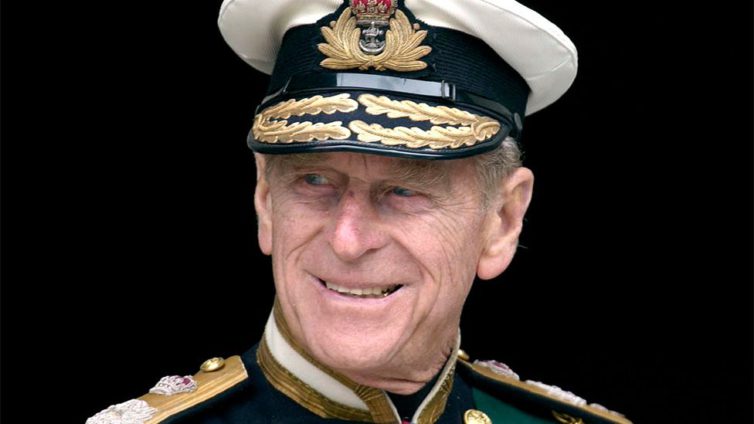HRH The Prince Philip, Duke of Edinburgh
As male consort to a female sovereign, Prince Philip had no constitutional position - but no-one was closer to the monarchy, or of greater importance to the monarch, than he was. He believed his job was, as he told his biographer, “to ensure the Queen can reign”.
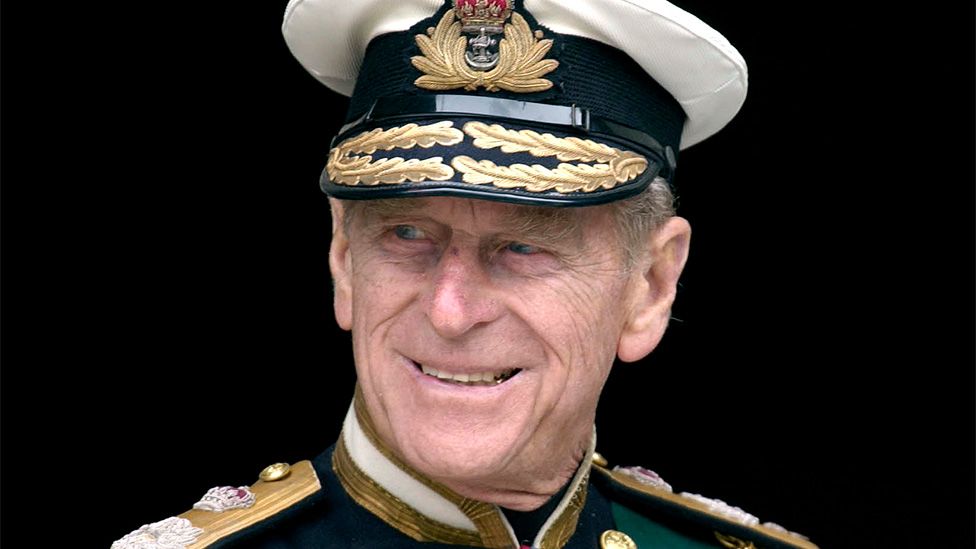
Stage, film and television
Our look back includes Helen McCrory, “one of the great actors of her generation”; Una Stubbs, memorable from Summer Holiday to Sherlock via Give Us A Clue; Johnny Briggs who played Mike Baldwin in Coronation Street; and John Challis, aka Boycie, from classic comedy Only Fools and Horses.
Helen McCrory
Peaky Blinders and Harry Potter actress
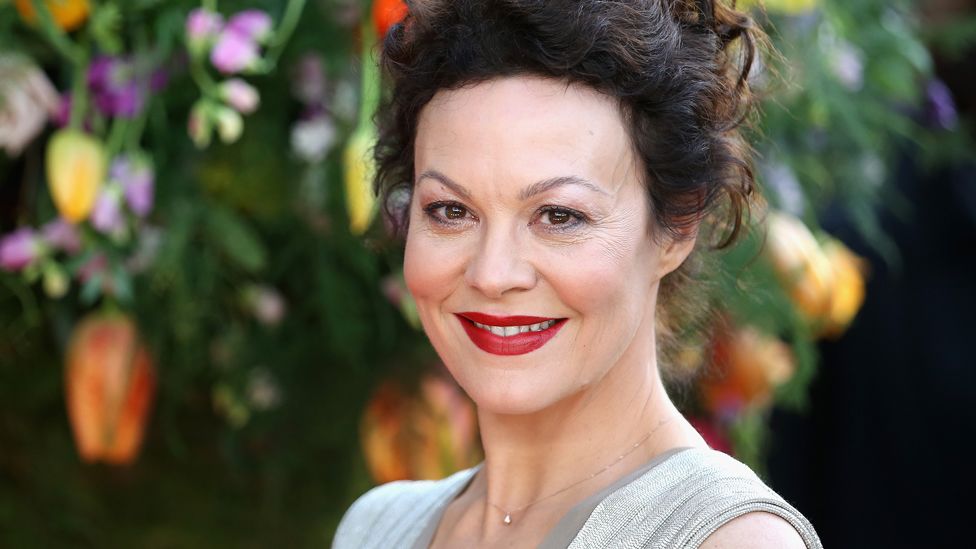
Known for her long and acclaimed career on stage, film and television, Helen McCrory was described by the National Theatre’s artistic director Rufus Norris as “unquestionably one of the great actors of her generation”. She played Aunt Polly in Peaky Blinders and Narcissa Malfoy in three Harry Potter films. Her husband, the actor Damian Lewis, paid tribute to her “fearlessness, wit, curiosity, talent and beauty”.
Una Stubbs
Till Death Us Do Part, Worzel Gummidge and Sherlock actress
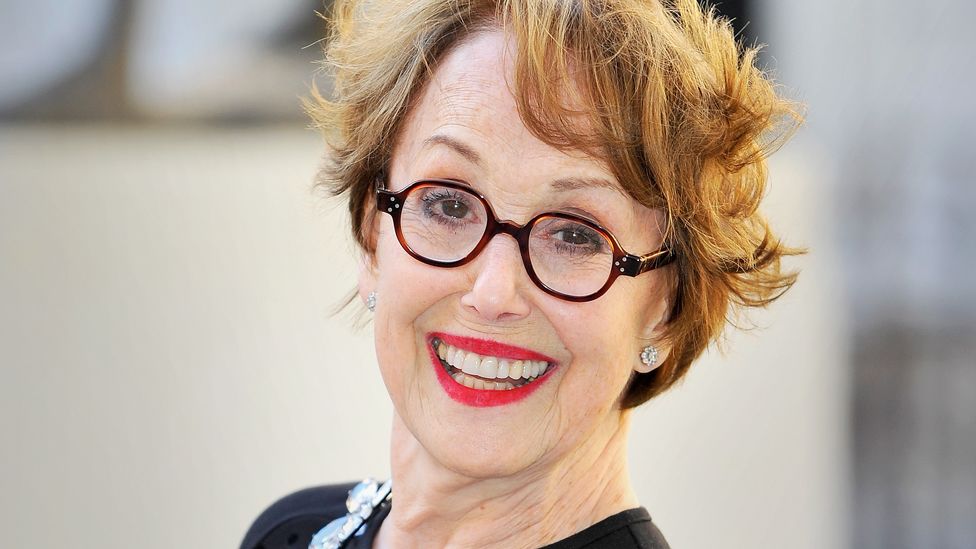
A much-loved team captain on ITVs long-running game show Give Us A Clue - opposite Lionel Blair, who also died earlier this year - Una Stubbs found fame in Cliff Richard’s 1963 film Summer Holiday. She went on to star in some of the best-loved shows on British TV.
Her last major role was in the BBC drama Sherlock as landlady Mrs Hudson. “Just about the kindest, nicest, funniest person you could meet,” wrote the show’s creator, Steven Moffat, in tribute. “I don’t know how anyone even starts summing up that career - Till Death Us Do Part, Fawlty Towers, the incomparable Aunt Sally in Worzel Gummidge... and, of course, the irreplaceable heart and soul of Sherlock.”
Nicola Pagett
Upstairs, Downstairs and A Bit of a Do actress
Nicola Pagett was best known for playing Elizabeth Bellamy, the rebellious daughter of Richard and Lady Marjorie, in 1970s TV series Upstairs, Downstairs. She landed the title role in the BBC’s 10-episode 1977 mini-series Anna Karenina. Performances in Harold Pinter plays, notably 1985’s Old Times, also defined her 30-year stage and screen career - as did starring alongside David Jason in 1989’s ITV comedy drama A Bit of a Do.
Charlotte Cornwell
Rock Follies actress
The TV and film actress was best known for her lead role - alongside Rula Lenska and Julie Covington - in the Bafta-winning 1970s ITV series Rock Follies. The show followed the fictional female rock band the Little Ladies. In addition to numerous screen appearances, Charlotte Cornwell was also a star of stage - including spells with the Royal Shakespeare Company and the National Theatre. Her half-brother was the spy author, John le Carré.
Sir Antony Sher
Award-winning stage and screen actor
Widely regarded as one of the country's finest contemporary classical actors, Sir Antony Sher had a long association with the Royal Shakespeare Company. Raised in South Africa, he had elocution classes in his early teens, which helped him overcome the shyness he had felt as a boy. He played many of the great Shakespearean roles, from King Lear to Shylock - but it was his portrayal of Richard III as a villainous hunchback on crutches which won him an Olivier Award in 1985.
Paul Ritter
Friday Night Dinner and Chernobyl actor
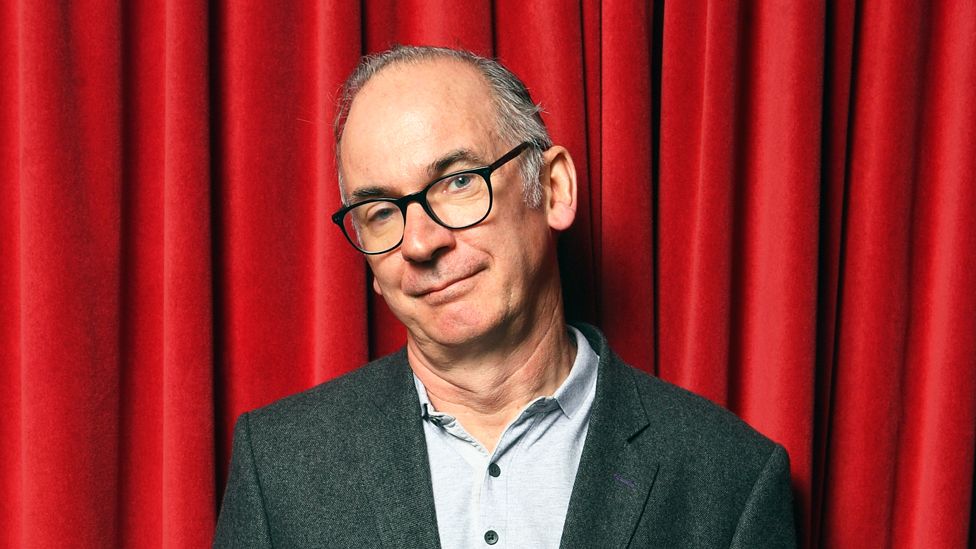
Played dad Martin Goodman in the popular Channel 4 comedy Friday Night Dinner. The show’s creator, Robert Popper, described him as “a deeply clever, funny, intelligent, kind man” who also had “the common touch”. A familiar face elsewhere on stage and screen, Paul Ritter also starred in Sky drama Chernobyl and played Eldred Worple in Harry Potter and the Half-Blood Prince. His other TV credits included Vera, Belgravia, Cold Feet and No Offence.
John Challis
Only Fools and Horses actor
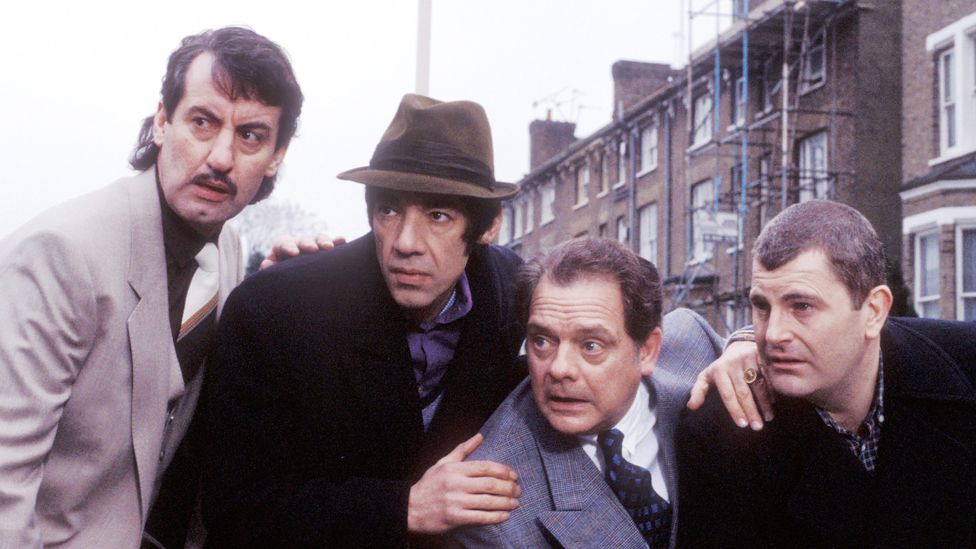
Played unscrupulous second-hand car dealer Terrance Aubrey Boyce - better known as Boycie - in BBC sitcom Only Fools and Horses. Co-star Sir David Jason described John Challis as “a wonderful actor” and “a gentleman in the true sense of the word”. Boycie was so popular with viewers that he and his long-suffering wife Marlene ended up in their own spin-off show - The Green Green Grass - when Only Fools and Horses ended its long run. More recently, John Challis played Monty Staines in the ITV show Benidorm.
Johnny Briggs
Coronation Street actor
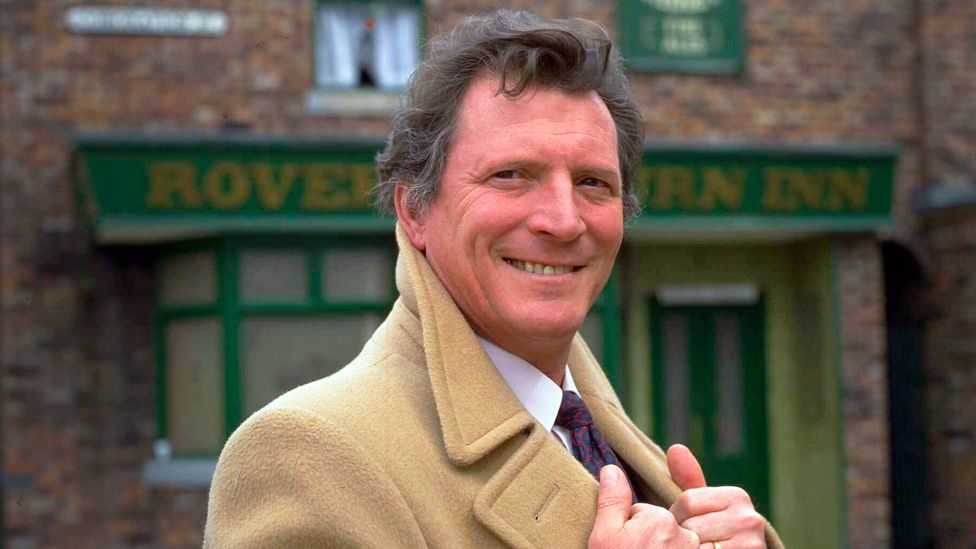
Johnny Briggs played Mike Baldwin in Coronation Street for 30 years. Baldwin’s affair with Deidre Barlow, played by Anne Kirkbride - and his feud with her husband Ken, played by William Roache - were long-running ratings hits for the show. “Mike Baldwin and Ken Barlow were arch enemies for many years, but as an actor, Johnny was impeccable, always good, and I was so fortunate to have worked with him for so many years,” said Roache in his tribute.
Mark Eden
Coronation Street actor
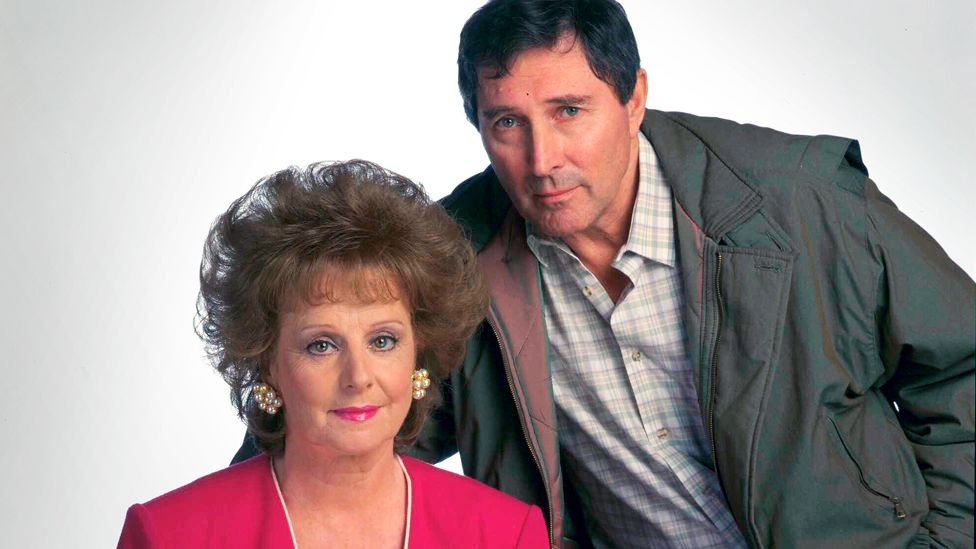
The biggest role of Mark Eden’s long career was playing one of Coronation Street’s most notorious villains, Alan Bradley - who came to a sticky end when he was hit by a Blackpool tram while chasing Rita Fairclough, played by Barbara Knox. “I loved this man so much,” wrote actress Sally Ann Matthews, who played his daughter Jenny, in tribute. “Thank you for being the most wonderful TV dad, teacher and friend.”
Gwyneth Guthrie
Take the High Road actress
Gwyneth Guthrie played Mrs Mack for 20 years in the long-running soap opera Take The High Road. The series - filmed on the banks of Loch Lomond - was made by Scottish Television and ran between 1980 and 2003. Her “wonderful comic timing and dramatic flair made her beloved across the UK,” said STV’s Managing Director of Broadcast Bobby Hain.
Robert Fyfe
Last of the Summer Wine actor
He was best known for playing Howard in the sitcom Last of the Summer Wine - Pearl’s henpecked husband, who was always trying to hide his passionate affair with Marina. Robert Fyfe joined the long-running BBC show in 1985 and remained until its final episode in 2010.
Trevor Peacock
Vicar of Dibley actor
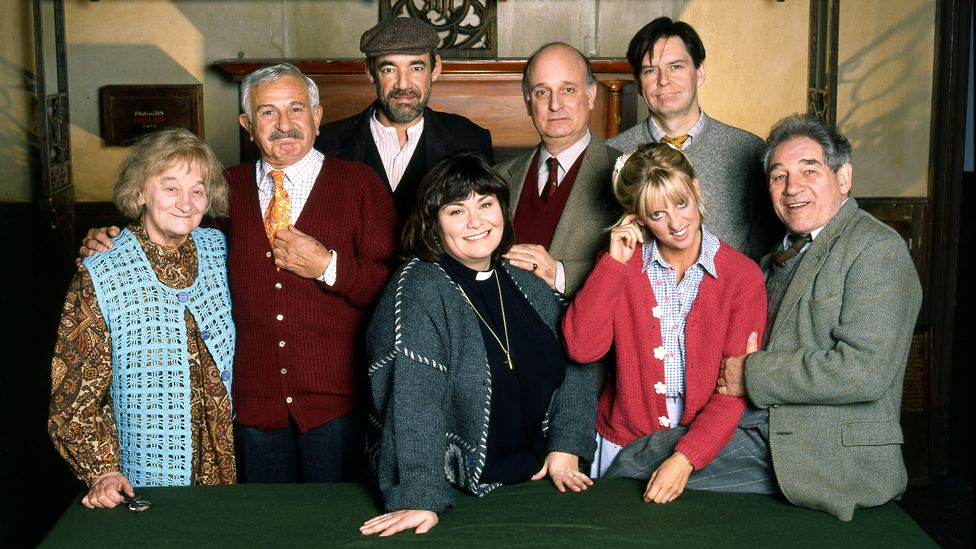
He played the lovable but bumbling Jim Trott in the BBC comedy alongside its main star Dawn French. Parish council member Jim won viewers’ hearts with his catchphrase of “no no no no…”. Trevor Peacock was also an accomplished Shakespearean actor and a successful musician and songwriter - writing a number of pop hits performed by Herman’s Hermits, Adam Faith and Billy Fury.
Ben Roberts
The Bill actor
He had an extensive career in theatre, TV and film but was best known for playing Ch Insp Derek Conway in The Bill from 1987 to 2002. The ITV series depicted life in a fictional police station - Sun Hill - in south London. Ben Roberts went on to appear in the 2011 film version of Jane Eyre and Tim Burton’s 2016 fantasy Miss Peregrine’s Home for Peculiar Children.
Bernard Holley
Z-Cars and Doctor Who actor
For a time in the late 1960s and early 70s Bernard Holley was a household name - appearing in 277 episodes of police drama Z-Cars as PC Bill Newcombe. He also played two separate roles in Doctor Who, in 1967’s The Tomb Of The Cybermen episode and The Claws Of Axos in 1971. Holley appeared in numerous other TV shows, and was also a storyteller on the BBC children’s series Jackanory.
Ronald Pickup
Best Exotic Marigold Hotel and The Crown actor
Ronald Pickup’s career break came in 1964 with a role as a physician in Doctor Who episode The Tyrant Of France. He went on to work extensively in theatre, film and TV - from telling stories on children’s programme Jackanory to playing the Archbishop of Canterbury in The Crown in 2016. In the Marigold Hotel films in 2011 and 2015, he played the role of Norman Cousins.
Dilip Kumar
Legendary Indian actor
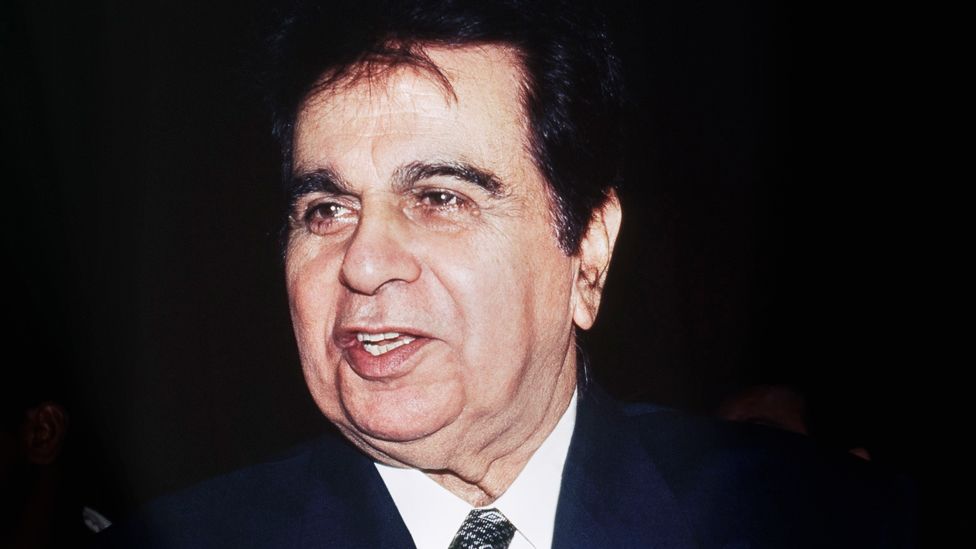
One of India’s earliest and most famous film stars, Dilip Kumar was “arguably the best actor Indian cinema has produced”, wrote Lord Meghnad Desai, eminent economist and Kumar’s biographer.
He performed in more than 65 films over nearly five decades. Some of the productions - Mela, Naya Daur, Ganga Jumna, Devdas and Mughal-e-Azam - were super-hits and won him legions of fans.
Jean-Paul Belmondo
French film great
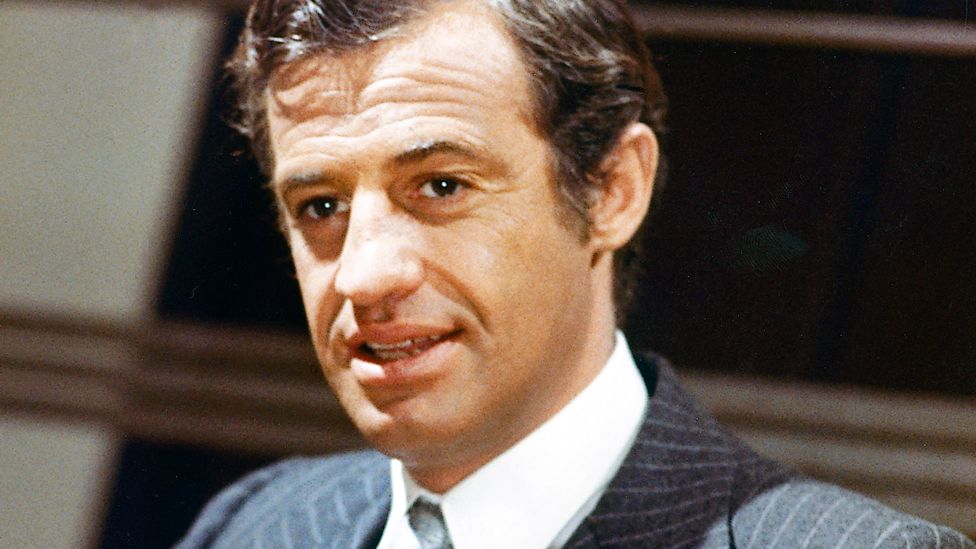
Jean-Paul Belmondo’s laconic style and roguish smile captured the imagination of French 1960s youth. He was the cool rebel of the new wave of cinema typified in Jean-Luc Godard’s 1960 film classic, À Bout de Souffle. He went on to become a highly bankable commercial actor, as at home in comedy as in drama. Cinema audiences at home and abroad were drawn to his charm and seeming disregard for whatever absurdities were taking place on screen. Empire magazine named him one of the 100 Sexiest Stars in film history.
Sally Ann Howes
Chitty Chitty Bang Bang star
Sally Ann Howes first appeared on screen aged 12, and enjoyed a career that spanned six decades. She shone as Eliza Doolittle in My Fair Lady on New York’s Broadway in 1958. Five years later she was nominated for a Tony Award for best lead actress in a musical for her work in Brigadoon. On screen, she was best known for playing the role of Truly Scrumptious - the daughter of a confectionery magnate - in the 1968 musical film Chitty Chitty Bang Bang, opposite Dick Van Dyke.
Christopher Plummer
Star of The Sound of Music
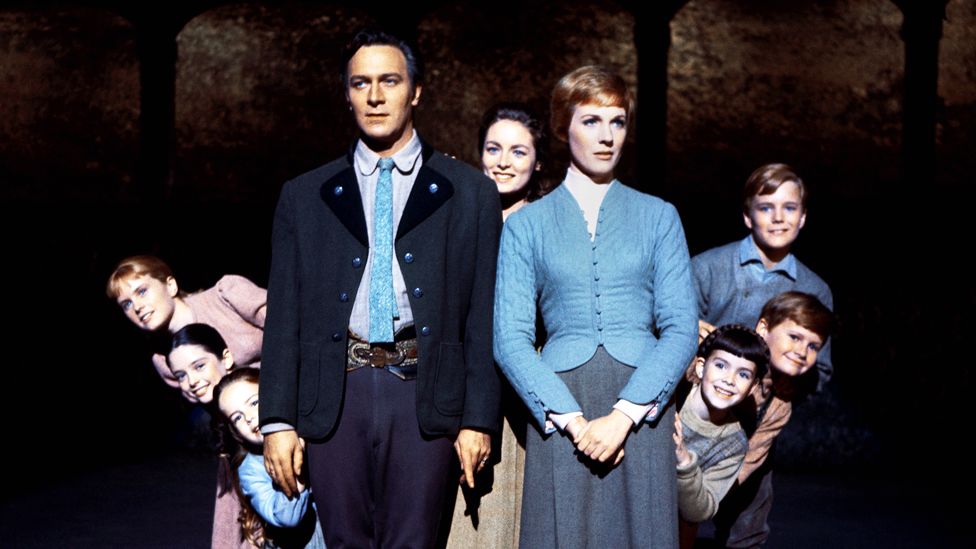
Canadian actor Christopher Plummer was best known for his role as Captain Von Trapp in The Sound of Music. His co-star Dame Julie Andrews said the world had lost a consummate actor and she had lost a cherished friend. In 2012, he won an Oscar for the film Beginners - and was also nominated for The Last Station in 2010 and All the Money in the World in 2018. The Academy of Motion Pictures Arts and Sciences - which awards the Oscars - said he had “beguiled audiences across generations”.
Michael K Williams
The Wire star
Michael K Williams was best known for his complex portrayal of Omar Little, a gay, shotgun-toting robber of drug dealers, which helped cement The Wire’s game-changing depiction of life in the projects of Baltimore. Creator of the HBO series, David Simon, described Williams as “a fine man and a rare talent”. He was also known for playing gangster Albert “Chalky” White in the Prohibition period TV series Boardwalk Empire. Other TV credits included Lovecraft Country, The Night Of, Bessie and When They See Us.
Cicely Tyson
Pioneering Hollywood actress
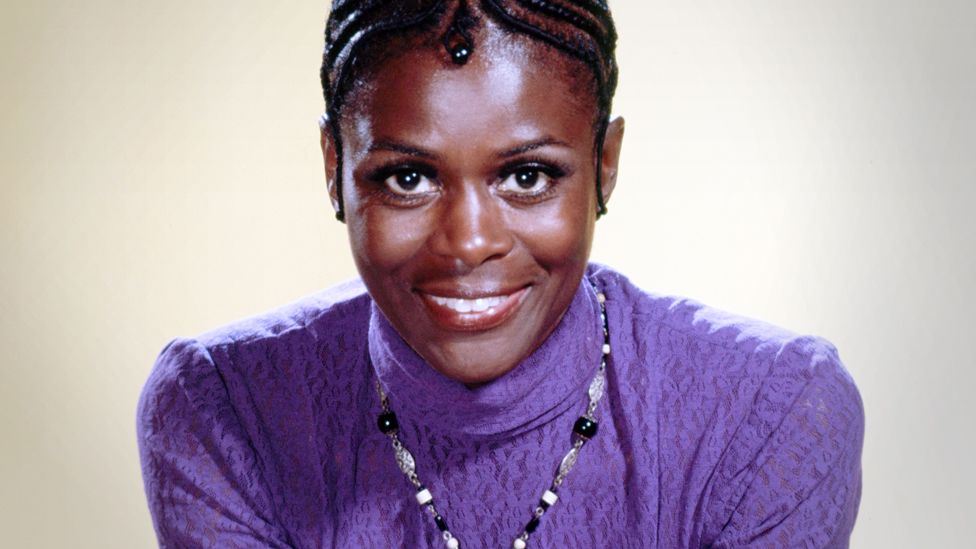
The former fashion model became known for portraying strong African-American characters in a career that spanned seven decades. Cicely Tyson won two Emmys for her 1974 performance in the civil rights-era film The Autobiography of Miss Jane Pittman. She also became the first black woman to take on a main role, in the TV drama East Side/West Side in the 1960s.
Tyson turned down stereotypical roles for black women, agreeing only to play characters who were strong, positive and realistic. Paying tribute, former US first lady Michelle Obama said: “I smile knowing how many people she inspired, just like me, to walk a little taller, speak a little more freely, and live a little bit more like God intended.”
George Segal
Who’s Afraid of Virginia Woolf? actor
George Segal was Oscar-nominated for his 1966 performance alongside Elizabeth Taylor and Richard Burton in the celebrated adaptation of Edward Albee’s dark comedy-drama. He went on to play comic roles in shows like The Goldbergs and Just Shoot Me.
The actor, who developed a penchant for playing warm, everyman characters, was honoured with a star on the Hollywood Walk Of Fame in 2017. “I always try to find the humour and the irony in whatever character I am playing because I think of myself as a comedic actor,” Segal told filmtalk.org in 2016. “So that makes drama a lot more fun for me by not taking it so seriously.”
Ed Asner
Lou Grant and Up actor
Ed Asner was best known for playing fictional TV newsman Lou Grant - first introduced in 1970 as Mary Richards’ boss in the sitcom The Mary Tyler Moore Show. The character later got his own spin-off show from 1977 to 1982 - in which he became the irascible editor of the fictional Los Angeles Tribune. The role helped earn Asner seven Emmy awards across his career, a record for a male performer. In 2009, he became known to a new generation of audiences by playing elderly widower Carl Fredricksen in the animated Pixar film Up.
Olympia Dukakis
Moonstruck and Steel Magnolias star
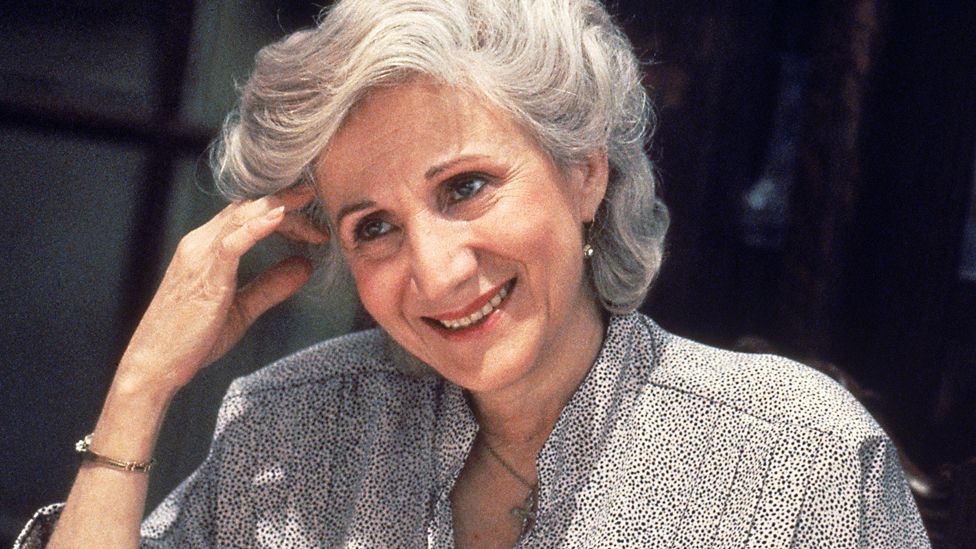
Olympia Dukakis had a long and distinguished career in theatre, both as a performer and as a director - but in her 50s she starred in a series of hit film comedies, including an Oscar-winning turn as Cher’s mother in Moonstruck. That run - in the late 1980s - also included roles in Steel Magnolias, Working Girl and Look Who’s Talking. Other key roles were as a secondary school head teacher in 1995’s Mr Holland’s Opus and as a transgender landlady in the TV adaptation of Armistead Maupin’s Tales of the City.
Jessica Walter
Arrested Development star
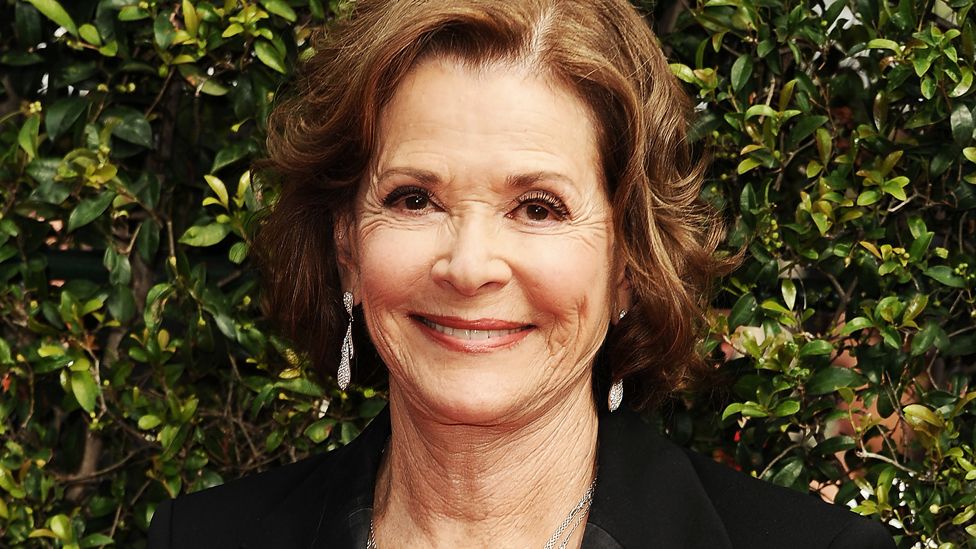
Jessica Walter was an award-winning US actress whose career spanned seven decades. She won an Emmy in the 1970s for her work on police drama Amy Prentiss - but was best known for playing the icy, sharp-tongued matriarch Lucille Bluth in the 2000s TV comedy Arrested Development. Director Ron Howard - the show’s narrator and producer - paid tribute to Walter, a “brilliant, funny, intelligent and strong” star who had delivered a “lifetime of laughs”.
Ned Beatty
Deliverance, Superman and Toy Story 3 actor
A prolific performer known for his stocky build, Ned Beatty was once nicknamed “the busiest actor in Hollywood”. He made his screen debut in 1972’s Deliverance, in which his character is brutally assaulted during a canoeing expedition. In 1978’s Superman he was seen as Lex Luthor’s bumbling assistant Otis, a character who returned in 1980’s Superman II. He also starred in Network, All the President’s Men and was heard as menacing teddy bear Lotso in Toy Story 3.
Norman Lloyd
Hitchcock and St Elsewhere actor
Born in New Jersey in 1914, Norman Lloyd began his career on stage and was a member of Orson Welles’ famed Mercury Theatre company in the 1930s. One of his earliest films was Alfred Hitchcock’s 1942 thriller Saboteur. Hitchcock cast him again in his 1945 film Spellbound and subsequently hired him to direct and produce episodes of his Alfred Hitchcock Presents TV series. In the 1989 film Dead Poets Society, he played stern headmaster Mr Nolan and - for six seasons - played Dr Daniel Auschlander in the TV drama St Elsewhere.
Charles Grodin
Beethoven and The Heartbreak Kid actor
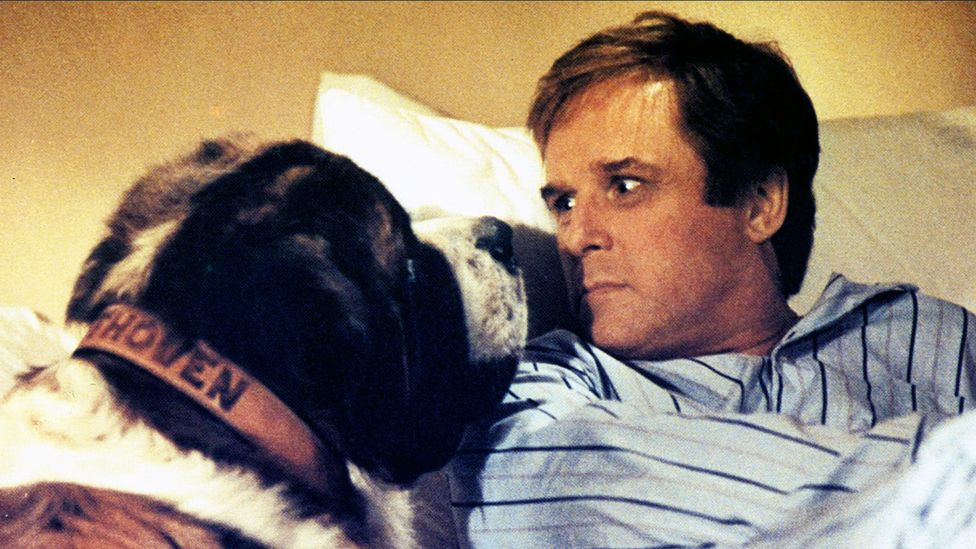
“One of the funniest people I ever met,” is how comedian Steve Martin paid tribute to the actor - who was also a familiar face on prime-time US talk shows. Charles Grodin was known for his comic roles in films such as Midnight Run and Beethoven - in which he played a short-tempered dad bedevilled by a slobbering, accident-prone St Bernard dog. In 1988, he won best actor at the 1988 Valladolid International Film Festival for his role in Midnight Run - an action-comedy with Robert De Niro.
James Michael Tyler
Friends actor
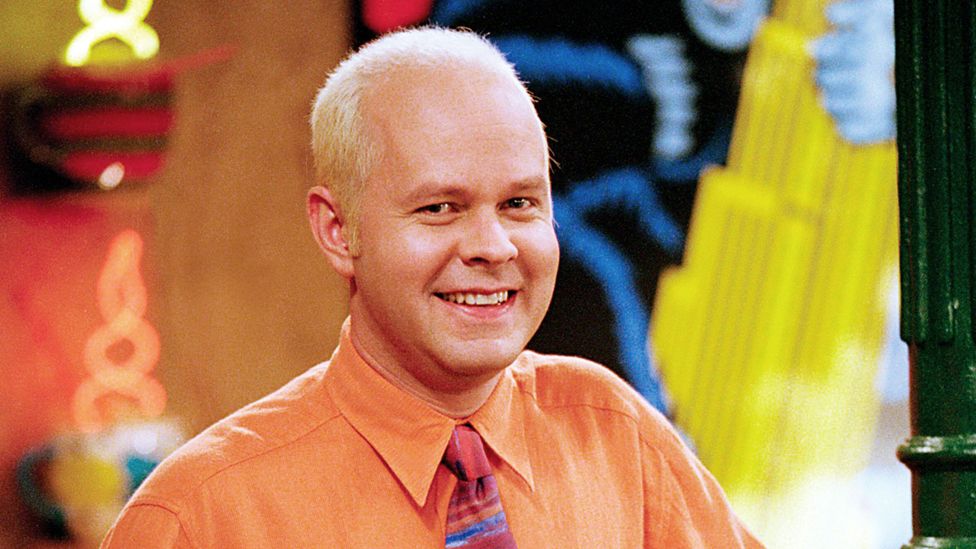
James Michael Tyler starred as Gunther in the hugely-successful US sitcom Friends, appearing in almost 150 episodes of the series which ran from 1994 to 2004. Tyler’s much-loved character worked in the show’s coffee house - Central Perk - and had a crush on Jennifer Aniston’s character Rachel. “Thank you for the laughter you brought to the show and to all of our lives. You will be so missed,” said Aniston in tribute.
Willie Garson
Sex and the City actor
He appeared in the popular HBO series Sex and the City with its four female leads, as Stanford Blatch, talent agent and friend of Carrie Bradshaw, played by Sarah Jessica Parker. Born William Garson Paszamant in New Jersey in 1964, he took on small roles in several 1980s and 90s TV series - including Cheers, Family Ties, LA Law, The X-Files and Friends. His film credits include Groundhog Day, There’s Something About Mary and Fever Pitch - the 2005 US adaptation of Nick Hornby’s football-based novel.
Dustin Diamond
Saved by the Bell star
Dustin Diamond played Samuel “Screech” Powers in the popular US sitcom Saved by the Bell, about a group of high-school friends and their headmaster. It ran for four seasons from 1989 to 1993 and was a global hit.
Suzzanne Douglas
Parent ’Hood actress
She played Jerri Peterson in US sitcom The Parent ’Hood, which ran from 1995 to 1999 and followed the ups and downs of a middle-class black family in Harlem, New York. Suzzanne Douglas also appeared in Netflix’s When They See Us, as well as The Good Wife and NYPD Blue. In the 2015 biopic Whitney, she portrayed Cissy - the mother of singer Whitney Houston.
Yaphet Kotto
James Bond villain and Alien actor
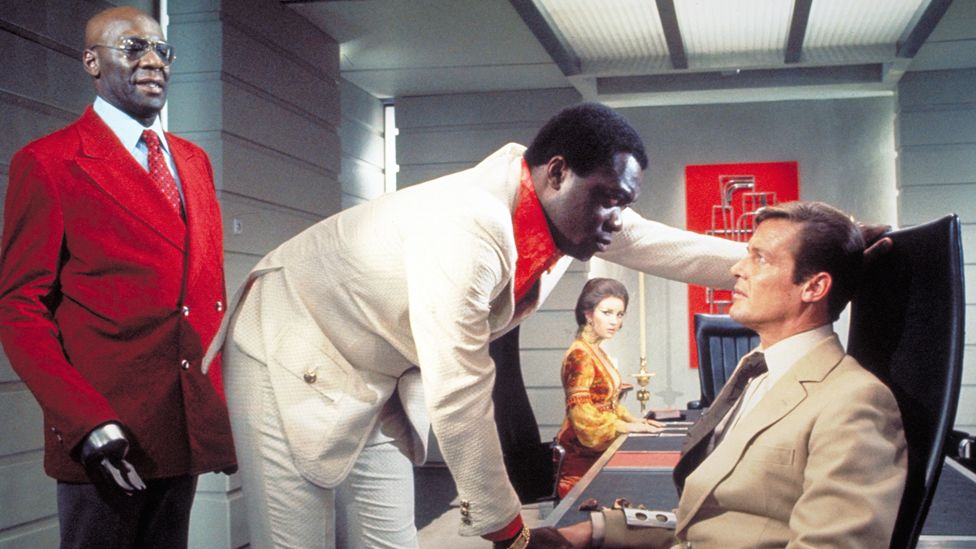
Born in New York to a Cameroonian immigrant father and a US Army nurse, Yaphet Kotto made his professional theatre debut at the age of 19 in Othello - and later performed on Broadway in The Great White Hope. He won plaudits for his role as the first black Bond villain Dr Kananga - an evil Caribbean diplomat whose alter ego was a New York drug lord - in Live and Let Die, starring Sir Roger Moore.
In Ridley Scott’s Alien, he took the role of the space ship’s engineer Dennis Parker. His extensive list of film and TV credits also includes US TV police drama Homicide: Life on the Street and the 1980s action movies The Running Man and Midnight Run.
Tanya Roberts
Bond actress and Charlie’s Angel
Tanya Roberts appeared with Sir Roger Moore in his final Bond film, 1985’s A View To A Kill, playing geologist Stacey Sutton. She also starred in the final series of Charlie’s Angels on TV in 1980 - joining Jaclyn Smith and Cheryl Ladd as third “Angel” Julie. She went on to play Midge Pinciotti in more than 80 episodes of sitcom That ’70s Show between 1998 and 2004.
Marion Ramsey
Police Academy and Broadway star
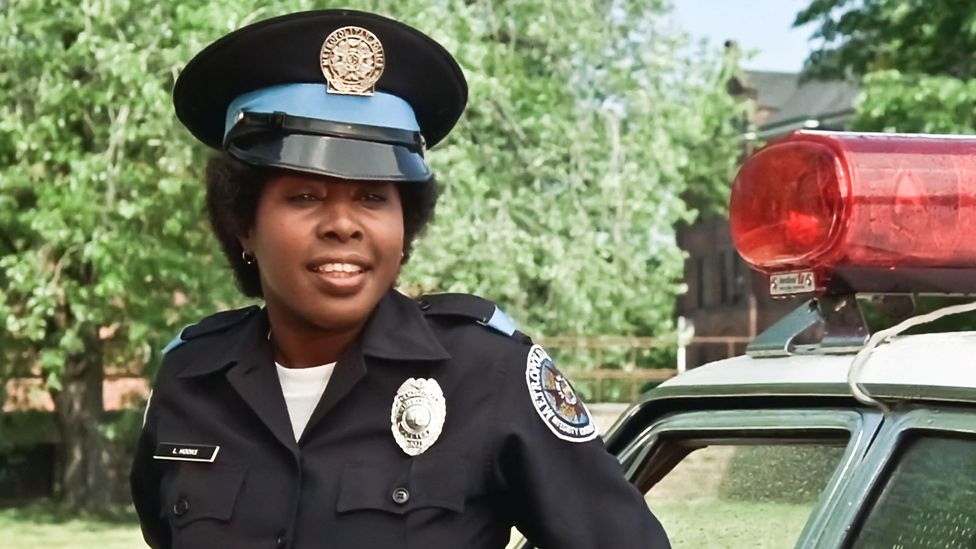
Marion Ramsey had an illustrious career on Broadway, starring in the 1978 production Eubie! - a musical about celebrated jazz pianist Eubie Blake. She also appeared in the original production of Hello, Dolly! She starred in six of the Police Academy films in the 1980s and 90s - and was adored by fans for her portrayal of the squeaky-voiced Officer Laverne Hooks.
Roger Michell
Notting Hill director
Roger Michell worked as an assistant director at London’s Royal Court Theatre before going on to become resident director at the Royal Shakespeare Company. His 1995 BBC film adaptation of Jane Austen’s Persuasion won a Bafta for best single drama - and he soon caught the eye of producer Richard Curtis, who asked him to direct Notting Hill.
The romantic comedy, starring Hugh Grant and Julia Roberts, became one of the highest-grossing British films of all time. “I am surprised and delighted that 20 years on people are still talking about it and celebrating it,” he said in an interview in 2020.
Richard Donner
Superman and Goonies director
Richard Donner started in US television in the early 1960s, on series including The Twilight Zone and spy thriller The Man From Uncle - but it wasn’t until the mid-1970s that he made his mark on Hollywood. His work on 1978’s Superman, starring Christopher Reeve, is often regarded as the first modern superhero film.
In 1985, Donner directed and produced comedy cult classic The Goonies, which tells the story of a group of children hunting for a hidden treasure. “Being in his circle was akin to hanging out with your favourite coach, smartest professor, fiercest motivator, most endearing friend, staunchest ally, and - of course - the greatest Goonie of all,” said director Steven Spielberg in tribute.
Halyna Hutchins
Cinematographer
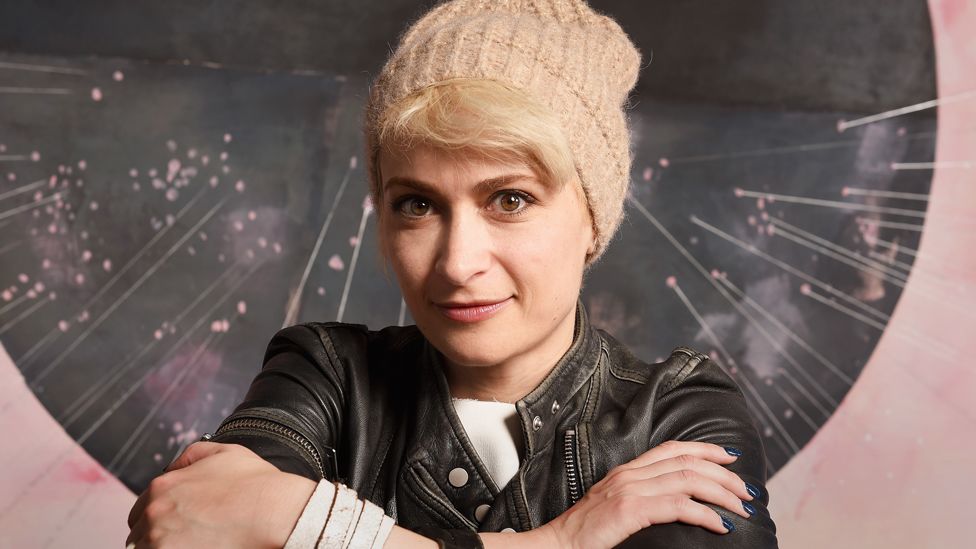
Born in Ukraine in 1979, Halyna Hutchins grew up on a Soviet military base in the Arctic Circle. After working on documentaries in the UK, she moved to Los Angeles and began working her way up in Hollywood. American Cinematographer magazine named her one of its rising stars in 2019. Hutchins died after being shot on the set of the film, Rust, where she had been working as director of photography.
Melvin Van Peebles
‘Godfather of black cinema’
“Damn, we have lost another giant!” mourned Oscar-winner Spike Lee in his tribute to the pioneering US filmmaker. In 1967, Melvin Van Peebles’ first feature-length film - The Story of a Three-Day Pass - featured a black US soldier demoted for fraternising with a white girl in France. He went on to make the 1970 comedy Watermelon Man - about a white, racist 60s-era insurance salesman who wakes up to find he is black.
A year later, Sweet Sweetback’s Baadasssss Song told the story of a black street hustler on the run from the police. At the time, Van Peebles said all films up until then had been told through the eyes of the Anglo-Saxon majority.
Celebrity, comedy and entertainment
Our look back includes comedian Sean Lock, 8 Out of 10 Cats’ team captain; Big Brother’s Nikki Grahame, “the funniest, most bubbly, sweetest girl”; and comedians Jackie Mason, Tom O’Connor and Cornwall’s very own Jethro.
Lionel Blair
Veteran TV presenter and dancer
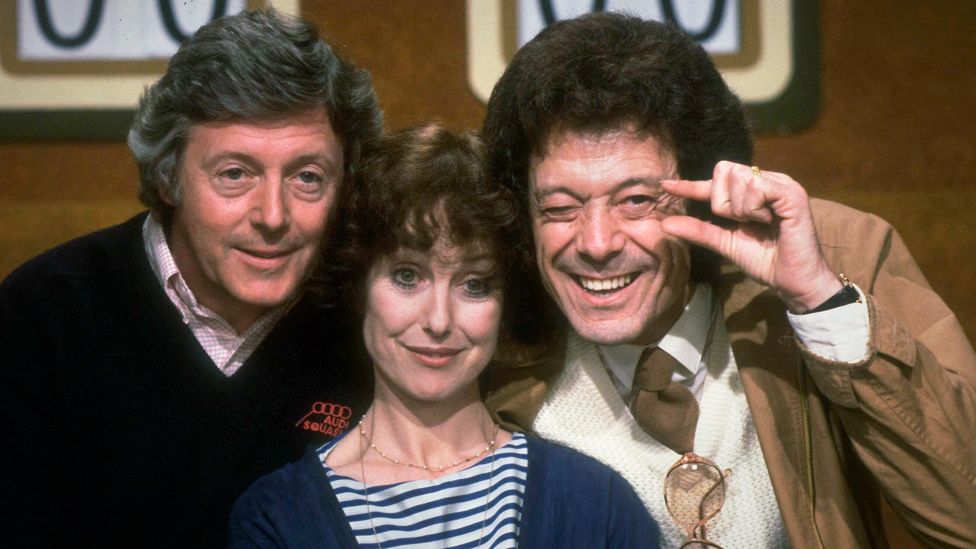
Lionel Blair became a household name as team captain opposite Una Stubbs, who also died earlier this year, on ITV’s long-running game show Give Us A Clue - but his stage and screen career spanned eight decades. Born in Canada in 1928, he moved to the UK as a young boy and began performing in air raid shelters in World War Two. It was his self-taught dancing skills - inspired by watching Fred Astaire and Ginger Rogers at the cinema - that Blair became best-known for, through his long career. In 1961, he took part in a comedic dance-off against Sammy Davis Jr at the Royal Variety Performance - which he later called the highlight of his entire career.
Sean Lock
Comedian and 8 Out of 10 Cats captain
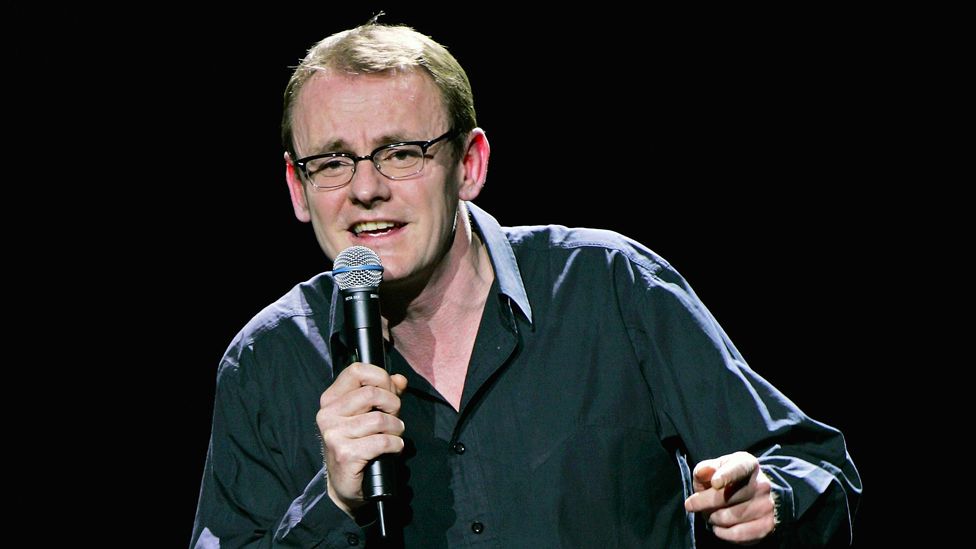
A comedy panel show favourite, Sean Lock was a team captain on the Channel 4 series 8 Out of 10 Cats, hosted by Jimmy Carr. He also appeared on QI, The Last Leg, Have I Got News for You and The Big Fat Quiz of the Year. Lock was named best live comic at the British Comedy Awards in 2000 and also wrote and starred in the popular BBC sitcom 15 Storeys High. There was an outpouring of messages from fellow comedians when his death was announced - with close friend Lee Mack describing him as “a true original, both in comedy and life”.
Tom O’Connor
Comedian
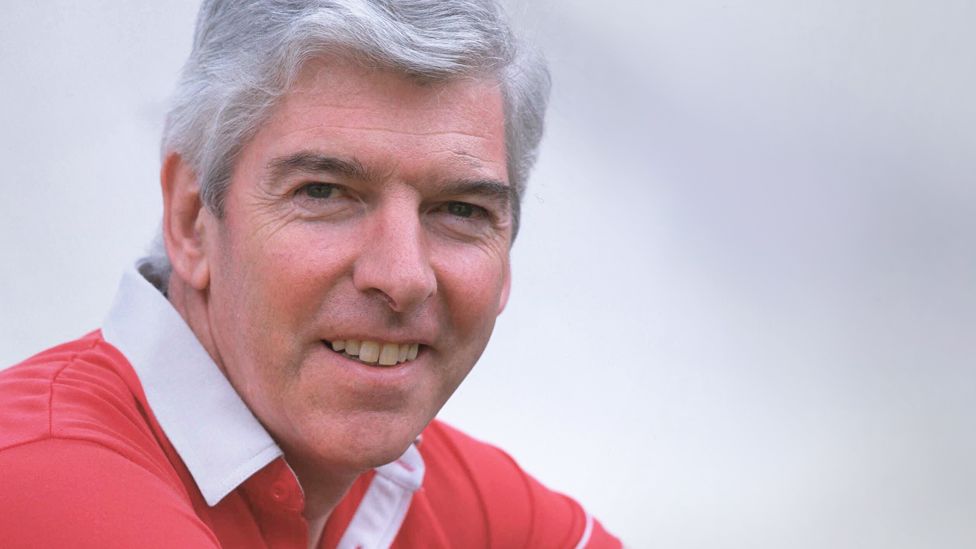
Tom O’Connor grew up in Merseyside and was first a schoolteacher before becoming a singer and stand-up comedian - with a twinkle in his eye. He appeared on the ITV show The Comedians in the early 1970s, but hit the big time after winning talent show Opportunity Knocks. He went on to host popular TV shows including Name That Tune, Crosswits and the Tom O’Connor Show.
Jethro
Cornish comedian
Jethro, real name Geoffrey Rowe, stopped touring in 2020 after more than 50 years on the road. Born in St Buryan in Cornwall, his popularity grew in the 1980s - leading to his first national appearance on the Des O’Connor show in 1990. In a tribute on Twitter, Dawn French - who has made Cornwall her home - described Jethro as a “gloriously un-pc” comedian who had provided some of her “most helpless with laughter moments”.
Jackie Mason
Rabbi turned comedian and actor
Born Yacob Maza in Wisconsin, Jackie Mason and his brothers before him were all ordained as rabbis - like his father, grandfather, great-grandfather and great-great-grandfather. In an interview with the Chicago Tribune, he said a lot of non-Jewish people would come to hear his sermons because he told so many jokes. He switched to show business in the 1950s and became well known for his social commentary, talk show appearances and one-man shows on Broadway. He won numerous awards in his career, including a Tony Award and an Emmy for voicing Krusty the Clown’s father on The Simpsons.
Mort Sahl
Comedian and satirist
Mort Sahl skewered US presidents from Dwight Eisenhower to Donald Trump. He won legions of fans for his biting political commentary and has been credited as the inspiration for modern stand-up comedy. Known for his trademark sweater and loafers - at a time when performers often wore tuxedos - Sahl would come on stage carrying a newspaper with notes for his act written on it. He favoured story-telling rather than lounge-style stand-up punchlines. He hosted the first-ever Grammy Awards in 1959 and co-hosted the Academy Awards that same year.
Siegfried Fischbacher
Half of magic duo Siegfried and Roy
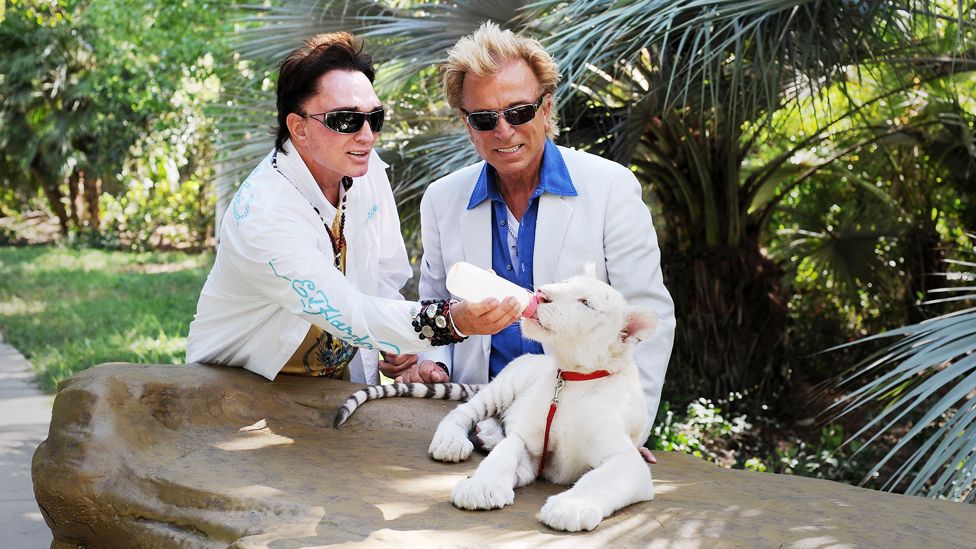
Among the biggest names in the world of magic, Siegfried Fischbacher and Roy Horn were known for working with lions and tigers. They teamed up in their native Germany, but shot to worldwide fame after launching their Las Vegas shows in the 1960s. Their unique brand of magic and artistry consistently attracted sell-out crowds. They performed an estimated 5,000 shows for 10 million fans in the US city after 1990, when they began performing at the Mirage Hotel and Casino. Roy Horn died in 2020.
Freddy Marks
One third of singing trio Rod, Jane and Freddy
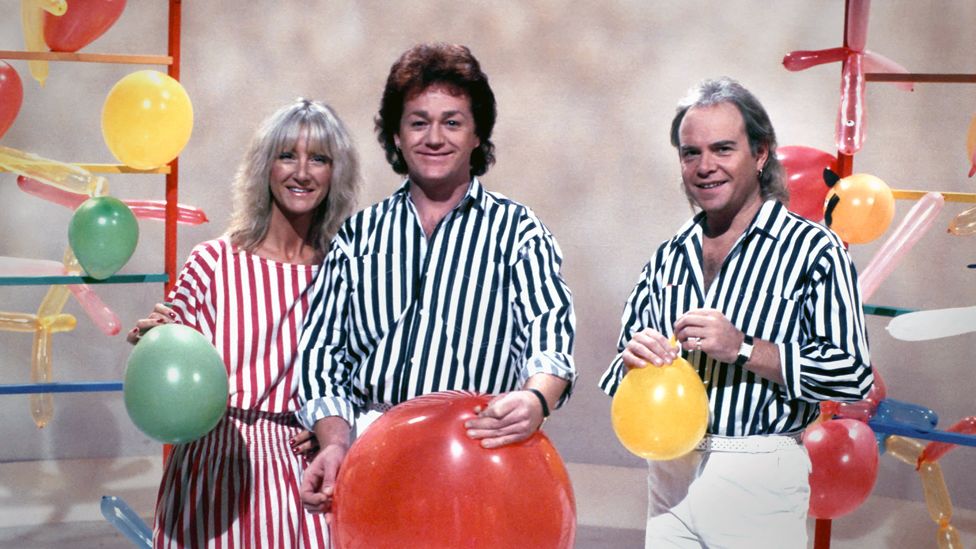
Rod Burton, Jane Tucker and Freddy Marks were childhood favourites for those growing up in the 1970s, 80s and 90s - performing catchy songs for Geoffrey, Bungle, Zippy and George on the Thames TV show Rainbow. The trio later had their own spin-off show which ran for a decade. Freddy ended up marrying Jane in 2016.
Nikki Grahame
Big Brother star
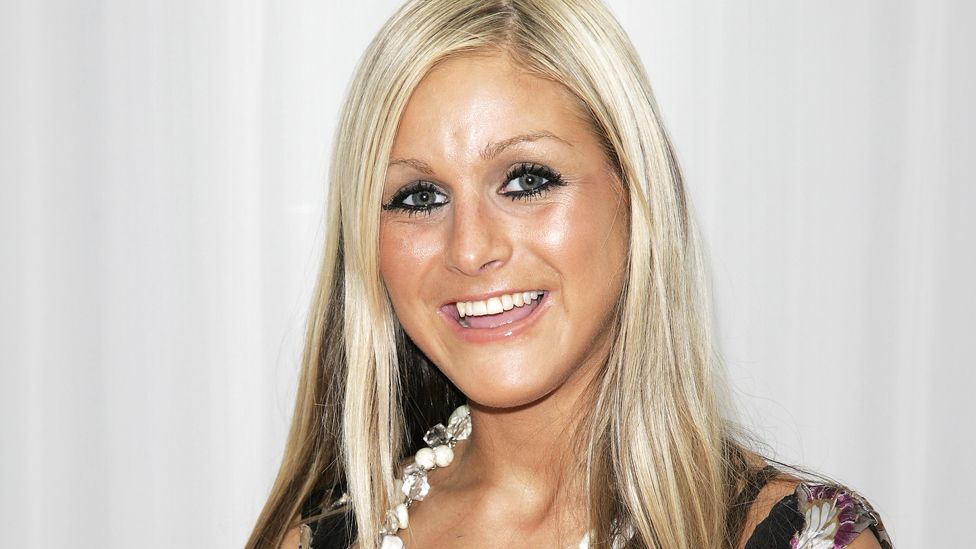
Nikki Grahame took part in the UK’s seventh series of Big Brother in 2006 and became hugely popular with viewers. She was known for complaining and her tantrums, particularly in the Diary Room. She went on to star in her own reality TV series called Princess Nikki. Former Big Brother presenter Davina McCall led the tributes, tweeting that Grahame was “the funniest, most bubbly, sweetest girl”.
Mick Norcross
Towie star and businessman
Mick Norcross first appeared in the ITV reality show The Only Way Is Essex in 2011 in his position as owner of Sugar Hut - a Brentwood nightclub often attended by the cast. He left the show two years later, stating that the venue’s prominent place in Towie had damaged its brand. Fellow Towie stars past and present - including Gemma Collins and Mark Wright - paid tribute.
Pete McGarry
Gogglebox regular
Pete McGarry initially joined the Channel 4 programme for its second series in 2013 along with his wife Linda and her son George Gilbey. The couple returned to the show for the seventh series in 2016 and continued to appear as series regulars up to 2020. They combined their TV appearances with their roles as foster parents - having cared for 100 children over the past 20 years.
Mary Cook
Gogglebox regular
One half of a cheeky Bristolian pair - she would appear with friend Marina Wingrove - on the Channel 4 show. The women often left viewers in hysterics with their racy comments, quick repartee and attempts to make sense of the modern world. A statement issued by Channel 4 and producers Studio Lambert on behalf of her family said: “Beloved mother, grandmother, great-grandmother and dear friend to many... [Mary and Marina] became instant fan favourites.”
Andrew Michael
Gogglebox regular
Andrew Michael was one of the show’s original cast members in 2013, along with his wife Carolyne and two of his children Louis and Alex. The family, from Brighton, disappeared from the series for a time when Michael - the son of immigrant parents from Cyprus - stood as the Ukip candidate for Hastings and Rye at the 2015 general election. He finished in third place.
Gerry Cottle
Circus owner
At 15 years of age, Gerry Cottle ditched his O-levels and left his family in Surrey to join the circus - after having been beguiled by a performance in Earl’s Court, London, when he was eight. From the 1970s he toured with his Gerry Cottle Circus and also presented the Moscow State Circus and Chinese State Circus in the UK. After retiring in 2003, he bought the Somerset tourist attraction Wookey Hole.
Music
Our look back includes Mary Wilson, trailblazing singer with Motown’s most successful group; reggae legend Bunny Wailer; Broadway’s supreme lyricist Stephen Sondheim; and Girls Aloud superstar, Sarah Harding.
Charlie Watts
Rolling Stones’ drummer
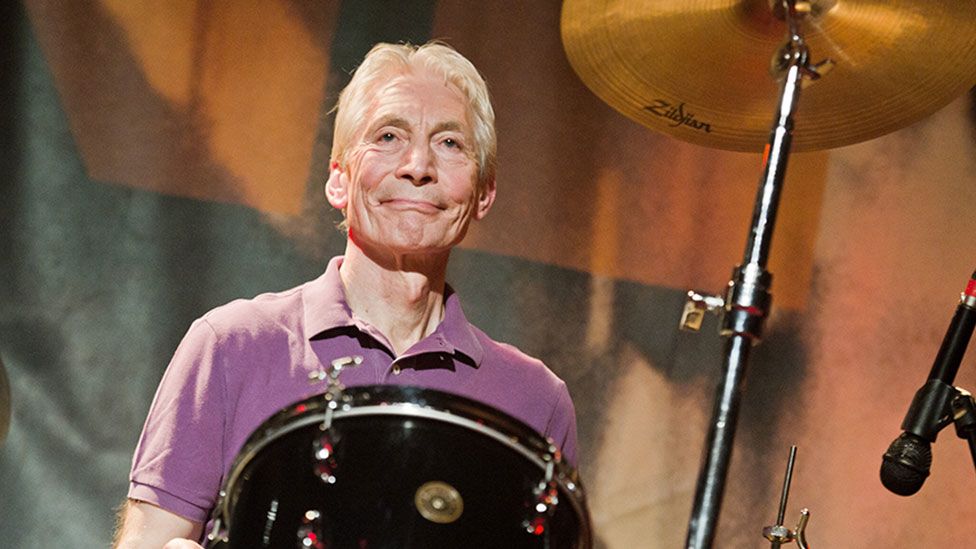
Charlie Watts was the subtle, stoic heartbeat of The Rolling Stones for almost 60 years. He joined Mick Jagger, Keith Richards and Brian Jones in their group in early 1963 - and helped them become, with The Beatles, one of the bands who took rock ‘n’ roll to the masses in the 60s. A jazz aficionado, Watts deliberately avoided the limelight and rarely gave interviews. He famously described life with the Stones as five years of playing, 20 years of hanging around.
Gerry Marsden
Gerry and the Pacemakers frontman and Liverpool FC anthem singer
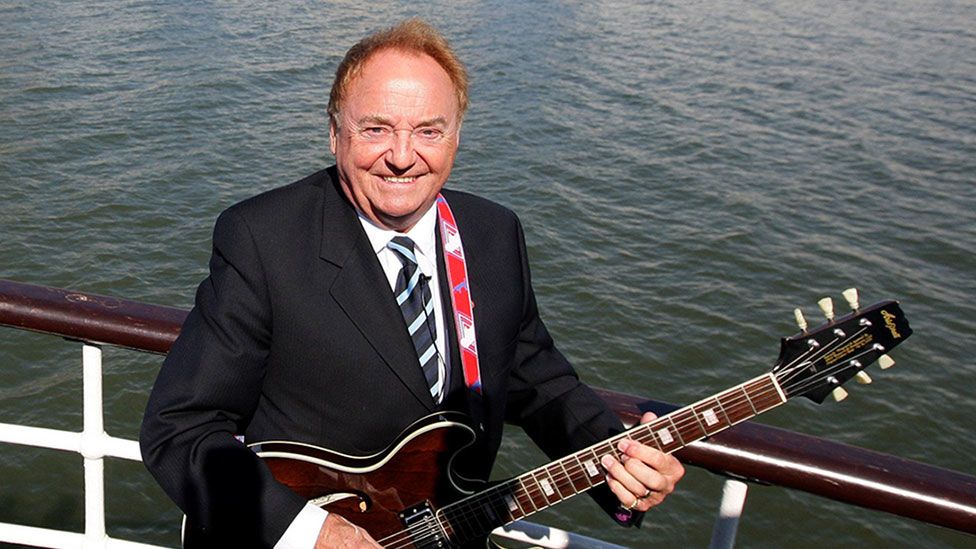
Gerry and the Pacemakers worked the same Liverpool club circuit as The Beatles in the 1960s and were signed by the Fab Four’s manager Brian Epstein. He gave Gerry Marsden’s group their debut single - How Do You Do It. Gerry and the Pacemakers’ other big hits included Ferry Cross The Mersey, I Like It and You’ll Never Walk Alone - a terrace anthem for Liverpool FC.
Mary Wilson
Supremes co-founder and singer
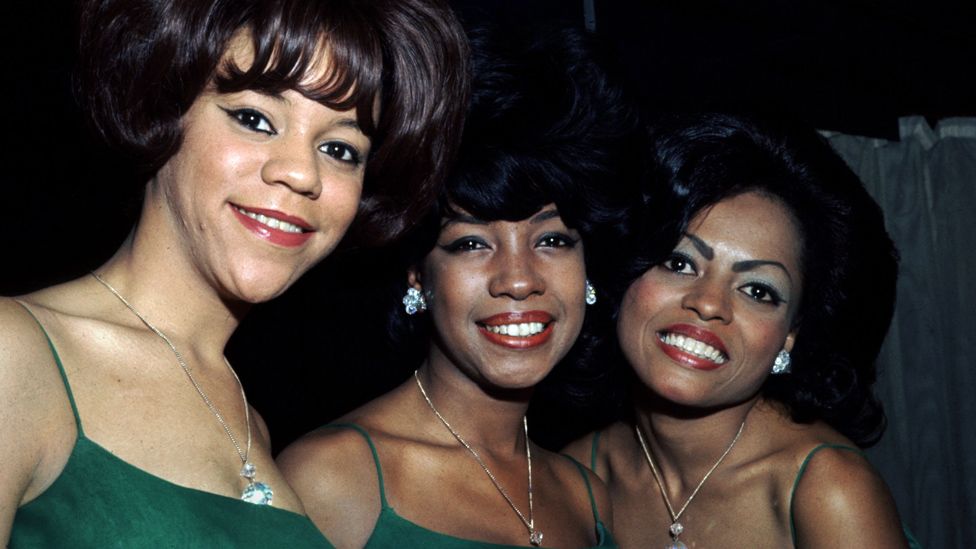
Known for hits such as Baby Love and You Can’t Hurry Love, the Supremes were Motown’s most successful act of the 1960s - scoring 12 number one singles in the US. Mary Wilson was an original member of the group, finding success alongside Diana Ross and Florence Ballard. “The Supremes opened doors for themselves, the other Motown acts, and many, many others,” said Motown Records’ founder, Berry Gordy, in tribute. “[Mary] was a trailblazer, a diva and will be deeply missed.”
Nanci Griffith
Grammy-winning folk and country singer-songwriter
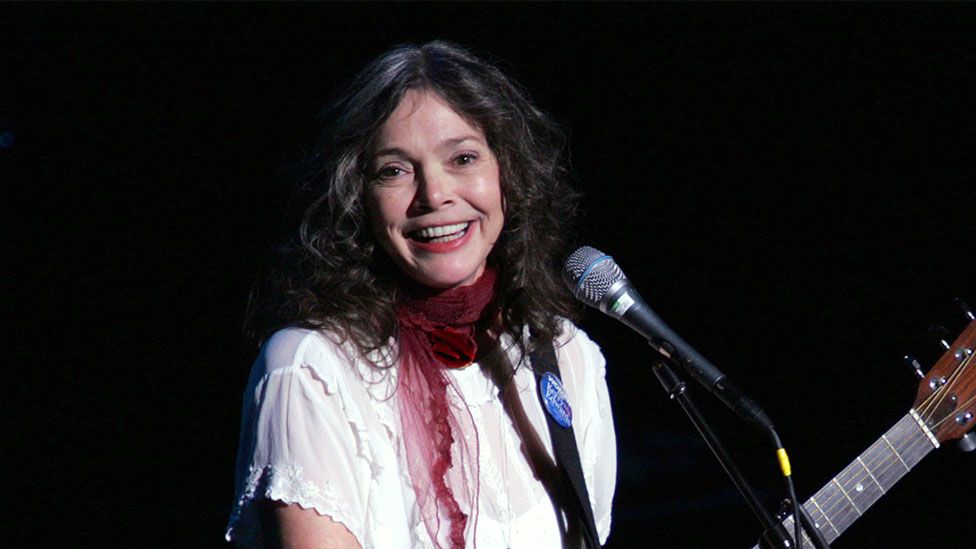
Nanci Griffith began performing and releasing folk music while working as a nursery teacher in Texas in the 1970s. She moved to Nashville in 1985, where she landed her first major record deal. She described her style of music as “folkabilly” - and some of her best-known performances include Love at the Five and Dime and Outbound Plane. Griffith also found country success with her recording of Julie Gold’s From a Distance, years before Bette Midler’s version became a major hit.
Sarah Harding
Girls Aloud star
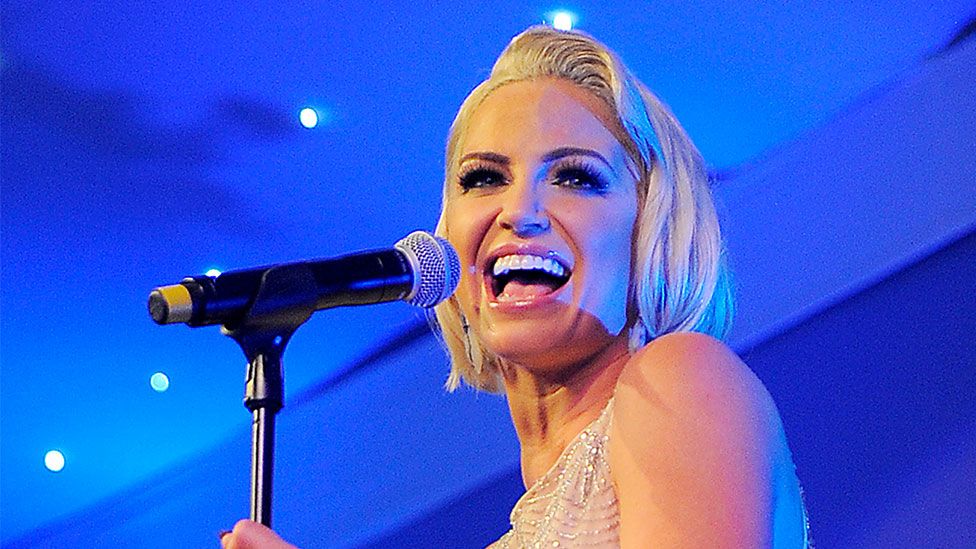
Sarah Harding was Girls Aloud’s rock and roll star. “I’ve got a t-shirt that says ‘Well-behaved women don’t make history’. Funny how the stylist gave that to me…” she wrote in the group’s official book Dreams That Glitter, in 2009. Harding shot to fame in 2002 as a contestant on ITV’s Popstars: The Rivals - a talent show which aimed to find new boy and girl bands. She took the final spot in the group which became Girls Aloud - alongside Nicola Roberts, Nadine Coyle, Kimberley Walsh and Cheryl Cole.
Don Everly
Half of US rock ‘n’ roll duo The Everly Brothers
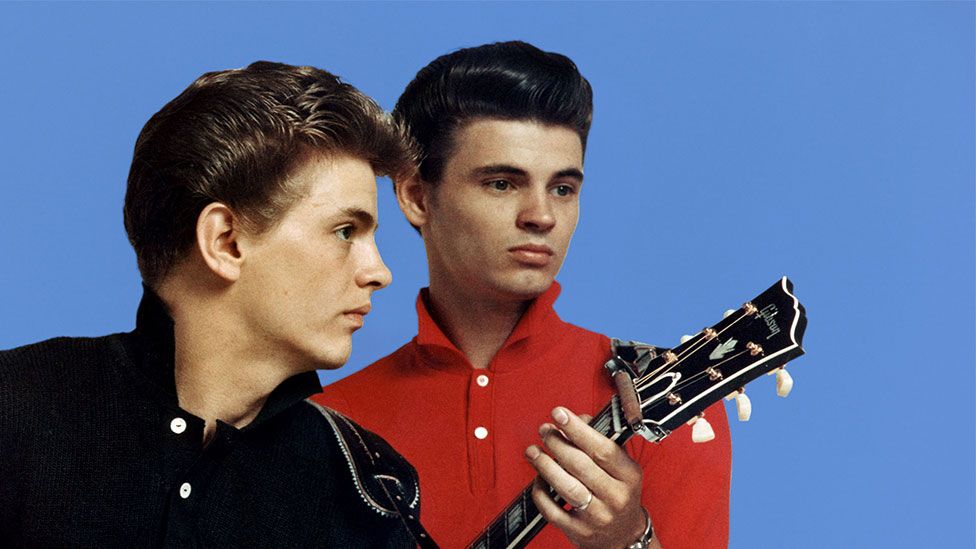
Described by Rolling Stone magazine as “the most important vocal duo in rock”, Don Everly and his brother, Phil, had hits worldwide in the late 1950s and early 1960s - including Bye Bye Love, Cathy’s Clown and All I Have To Do Is Dream. They were known for their close harmonies, and influenced groups like The Beatles and Simon and Garfunkel. The pair had an onstage breakup in 1973 that led to a decade-long estrangement - but their relationship survived. Phil Everly died in 2014.
Les McKeown
Bay City Rollers frontman
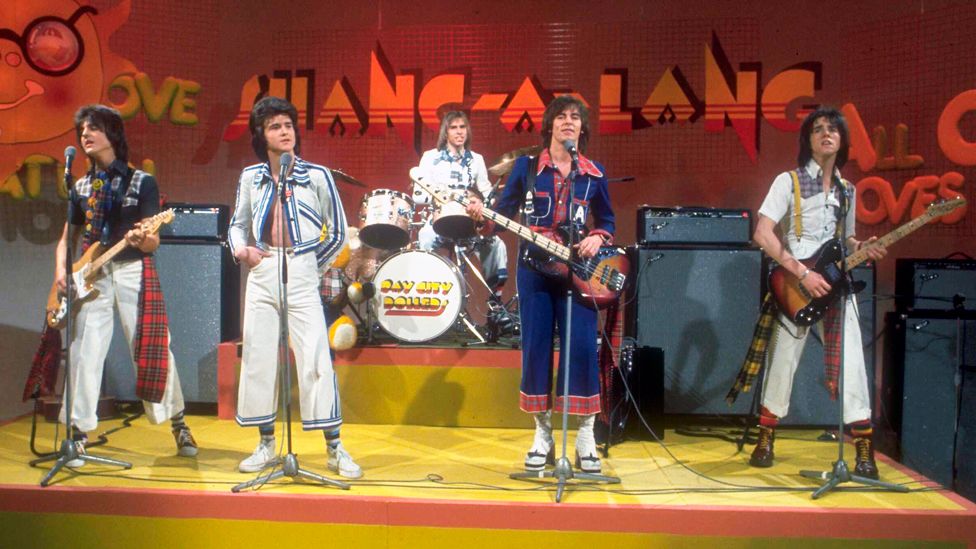
At the height of their success in the mid-1970s, the Bay City Rollers were the biggest music sensation Scotland had ever seen. Their brand of bubblegum pop won fans across the world - with hits like Bye Bye Baby, Shang-a-Lang and Give a Little Love. Les McKeown, who was with the Rollers for five years, said the band’s first tartan trousers were inspired by a picture on a birthday card, and were made by his father - a tailor.
Paddy Moloney
Chieftains founder
The Chieftains put Irish music “on the map”, according to the Rolling Stones’ Keith Richards. Paddy Moloney - a piper, tin whistle player and composer - was the charismatic performer at the heart of the traditional music group, which he founded in 1962. He helped bring the melodies out of Ireland’s pubs and backrooms - and shared them with a global audience. Taoiseach (Irish prime minister) Micheál Martin thanked Moloney for his “massive contribution to the life of our nation”.
Alan Lancaster
Status Quo bassist
“Alan was an integral part of the sound and the enormous success of Status Quo during the 60s and 70s,” said lead singer Francis Rossi in his tribute. He and Lancaster began performing together in the early 1960s under a number of different band names, before Status Quo was chosen. Lancaster’s tenure in the group lasted until 1985 - a time in which he saw them notch up dozens of UK hit singles - including the 1974 number one, Down Down.
Michael Nesmith
Musician and Monkees star
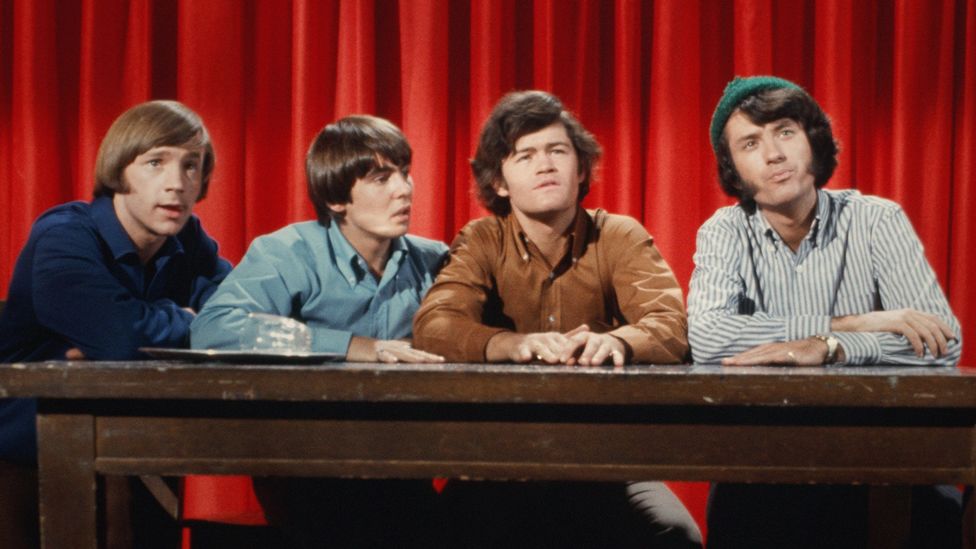
The Monkees - a 1960s boy band with their own TV sitcom - enjoyed hits like Daydream Believer, Last Train to Clarksville and I’m A Believer. Initially, they performed songs written for them - but went on to take full control of their music. “We were kids with our own taste in music and were happier performing songs we liked - and/or wrote - than songs that were handed to us,” Mike Nesmith told Rolling Stone in 2012.\
Dusty Hill
ZZ Top bassist
Known for his bushy beard and sunglasses, Dusty Hill played with the US blues rock band ZZ Top for more than 50 years. Paying tribute, bandmates Billy Gibbons and Frank Beard said they, along with legions of ZZ Top fans around the world, would miss his steadfast presence, good nature and enduring commitment. The trio released 15 studio and four live albums - with hit singles including Gimme All Your Lovin’ and Viva Las Vegas.
Hilton Valentine
Animals’ guitarist
North Shields-born Hilton Valentine created one of the most famous opening riffs in 1960s pop music - with the band’s version of blues standard The House of The Rising Sun. It topped the UK and US charts in 1964. The Animals also scored six other UK top 10 hits including Don’t Let Me Be Misunderstood and We Gotta Get Out of This Place. The group’s record label - ABKCO Music - described Valentine as a “pioneering guitar player influencing the sound of rock and roll for decades to come”.
Ronnie Tutt
Elvis Presley’s drummer
Ronnie Tutt backed Elvis Presley from 1969 until the star’s death eight years later. Presley would introduce him to crowds and let him perform drum solos for minutes on end. Tutt also worked with Billy Joel, Neil Diamond and Jerry Garcia. His work can be heard on Joel’s Piano Man, Elvis Costello’s King of America and the Gram Parsons albums GP and Grievous Angel.
Graeme Edge
Moody Blues drummer
Moody Blues frontman Justin Hayward paid tribute to Edge, saying that he’d been a “poet as well as a drummer” - and that his sound and personality had been present in everything the band did together. “Thankfully, that will live on,” he said. The Birmingham-based rock band is perhaps best known for its classic hit Nights in White Satin.
Barry Ryan
‘Eloise’ singer
Barry Ryan shot to fame in the 1960s - as a duo alongside his identical twin brother Paul. The pair had several hits - including Don’t Bring Me Your Heartaches, I Love Her and Have Pity on the Boy - but Top 10 success eluded them. Paul withdrew from the limelight, but ended up writing Barry’s biggest solo hit - the soulful and dramatic Eloise - which was a number one smash hit in more than 10 countries.
Steve Bronski
Bronski Beat co-founder and keyboard player
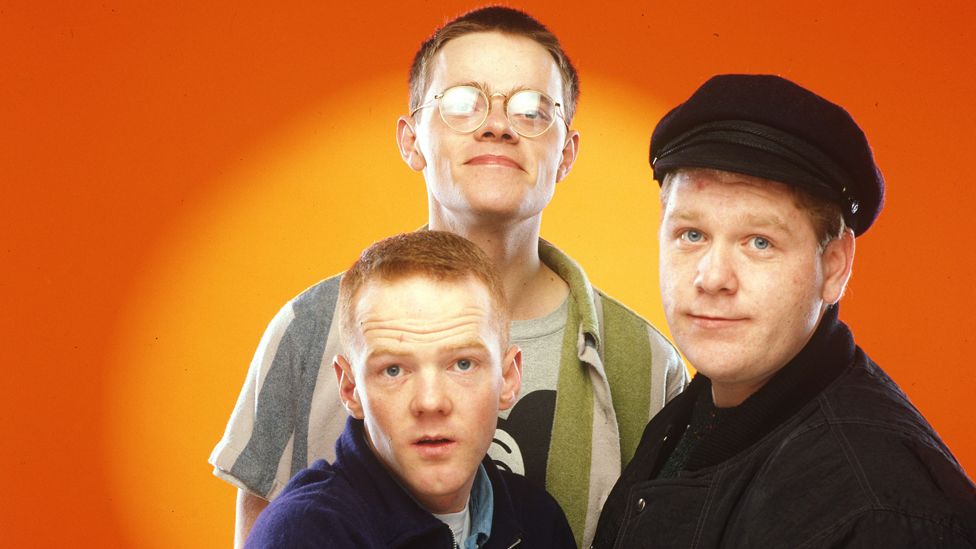
Born Steve Forrest, he formed the pop group in 1983 with singer Jimmy Somerville and fellow-musician Larry Steinbachek. Their debut single Smalltown Boy - telling the story of a young, gay man - was a synth-pop classic, reaching number three in the UK charts. The hard-hitting video showed Somerville being chased by a homophobic gang and then thrown out by his parents - before getting on the train to start a new life with Bronski and Steinbachek.
Nick Kamen
Model and singer
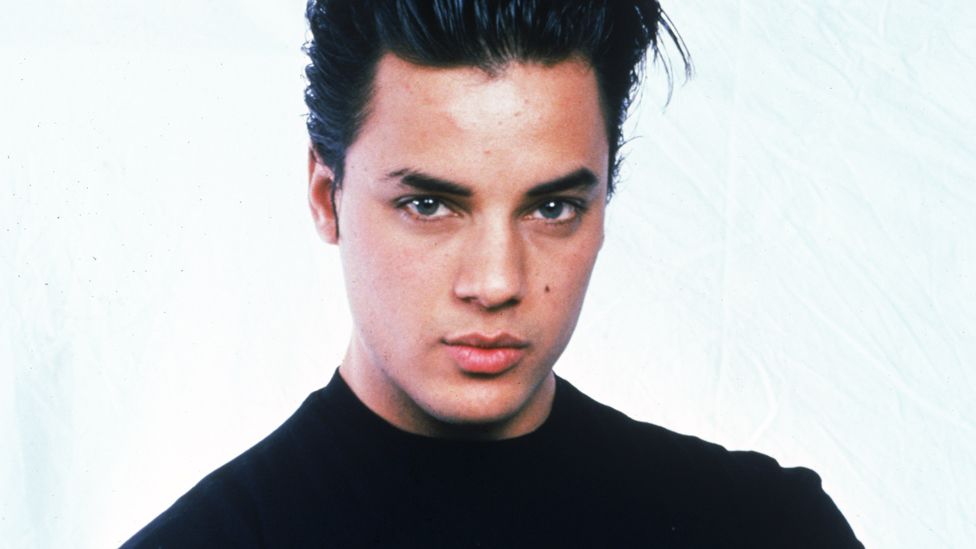
The Essex-born star became a sex symbol after appearing in a 1985 Levi’s jeans advert set in a launderette. In the commercial - as Marvin Gaye’s I Heard It Through The Grapevine played - he stripped down to his boxer shorts while several women looked on. Nick Kamen’s music career in the UK peaked the following year with the top five hit Each Time You Break My Heart. Kamen’s friend Boy George described him as “the most beautiful and sweetest man”.
María Mendiola
Yes Sir, I Can Boogie singer
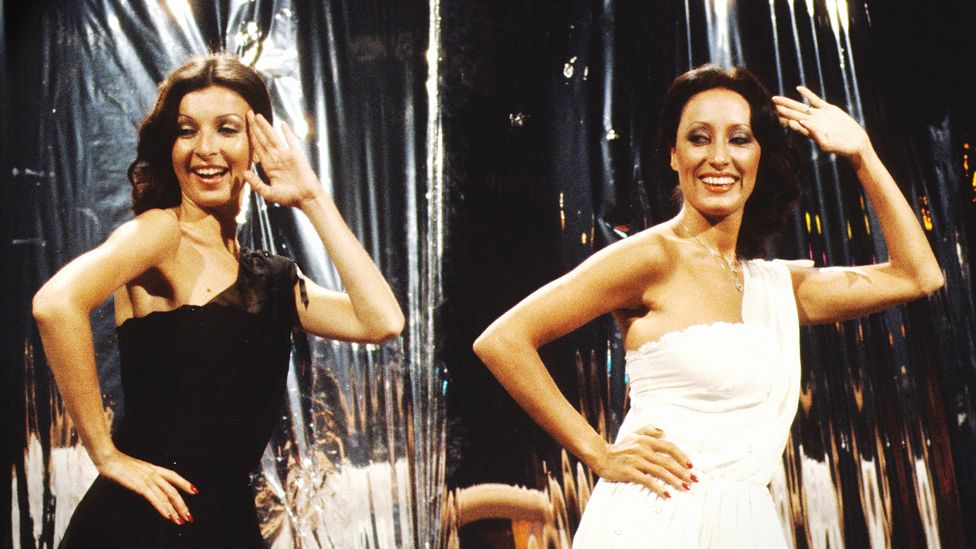
A record label executive talent-spotted María Mendiola and fellow-singer Mayte Mateos on the Spanish island of Fuerteventura in 1977 - when they were both flamenco dancers entertaining tourists. The pair became the singing duo Baccara and their first single - Yes Sir, I Can Boogie - topped the charts in 10 European countries. Their follow-up single, Sorry I’m a Lady, gave the duo another top 10 UK hit.
Sarah Dash
Lady Marmalade singer
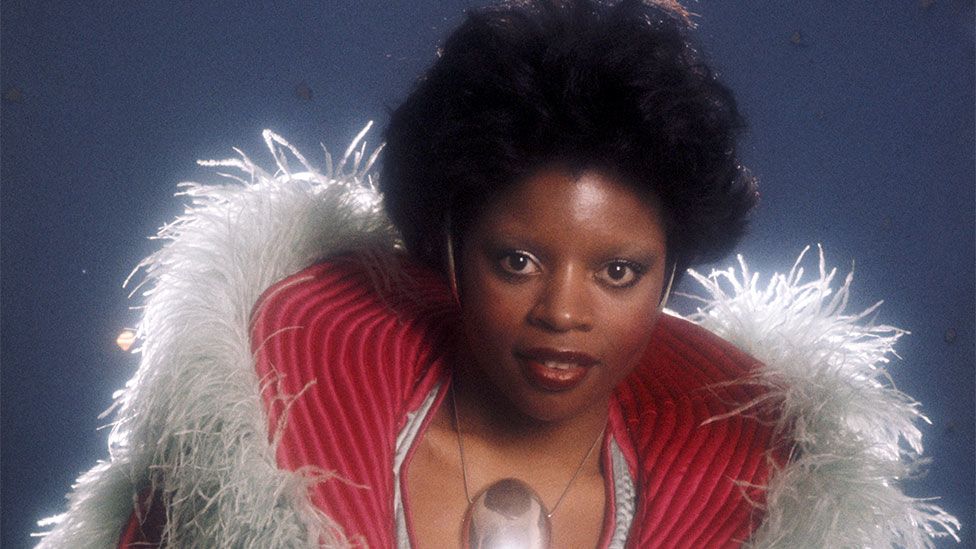
Sarah Dash was a co-founder of trailblazing US group Labelle - which had a huge hit with Lady Marmalade in 1975. The track went to number one on the US Billboard chart in 1975 - although it only reached number 17 in the UK. Labelle became known for their fusion of rock, R&B and funk - and their lavish stage outfits. Lady Marmalade found a new audience when it was re-recorded by Christine Aguilera, Pink, Lil’ Kim and Mya for the soundtrack of Baz Luhrmann’s 2001 film Moulin Rouge.
Lee ‘Scratch’ Perry
‘True legend’ of reggae
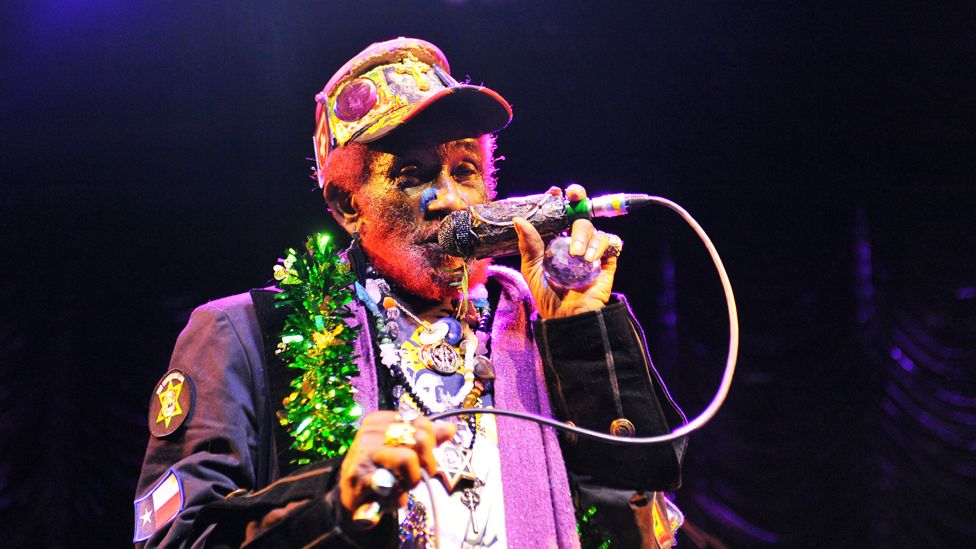
Described by Rolling Stone Keith Richards as “the Salvador Dali of music”, Lee Perry is known for his pioneering experiments in dub - which revolutionised not only reggae, but also hip hop, dance and other genres. The Jamaican singer and music producer started his career in the 1950s as an assistant at a reggae music label, before moving up to become a recording artist. Over the next seven decades he worked with many music greats - including Bob Marley and the Beastie Boys. He won a Grammy in 2002.
Astro
UB40 member
Terence Wilson, better known by his stage name Astro, performed in the reggae pop band for more than 30 years. He joined shortly after it was formed in 1979 - but left in 2013 to perform with breakaway group UB40 featuring Ali Campbell and Astro. The original UB40 lineup found success in the 1980s with hits including Red Red Wine, Don’t Break My Heart and Rat in Mi Kitchen.
Brian Travers
UB40 saxophonist and co-songwriter
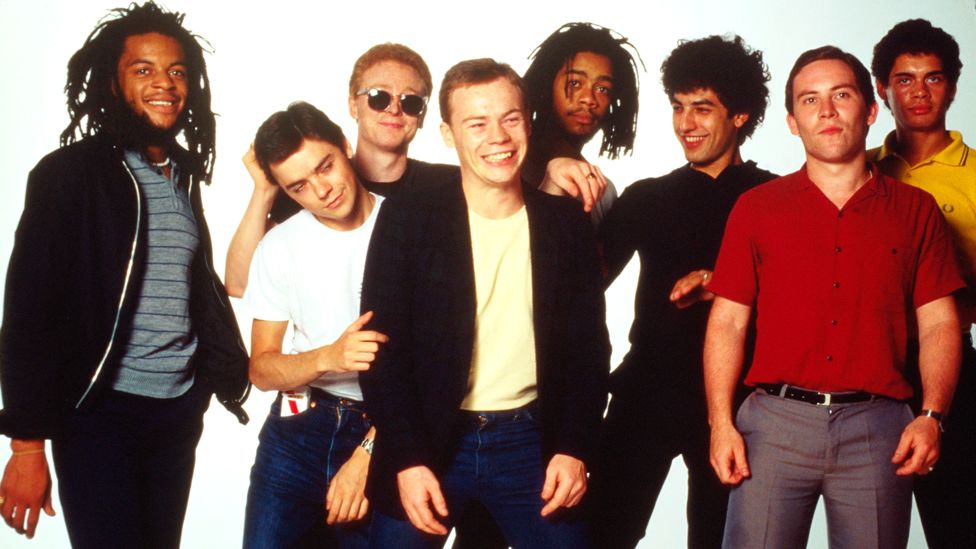
Brian Travers founded the chart-topping reggae-pop band UB40 with a group of friends in Birmingham in the late 1970s. The lack of jobs in the city inspired them to adopt the name of the official Unemployment Benefit form 40 - used at the time by people signing on the dole. UB40 scored success in 1980 with Food For Thought, before having a long string of other hits including One in Ten and I Got You Babe.
Andrea Martin
En Vogue and Blu Cantrell co-songwriter
Andrea Martin co-wrote En Vogue’s Don’t Let Go (Love) which made number two in the US and number five in the UK. She also co-wrote two UK number ones in the early 2000s - with Tomcraft’s Loneliness and Blu Cantrell’s Breathe featuring Sean Paul. She also worked on SWV’s You’re the One and Angie Stone’s Wish I Didn’t Miss You - before collaborating with Leona Lewis and Alexandra Burke.
Bunny Wailer
Reggae legend
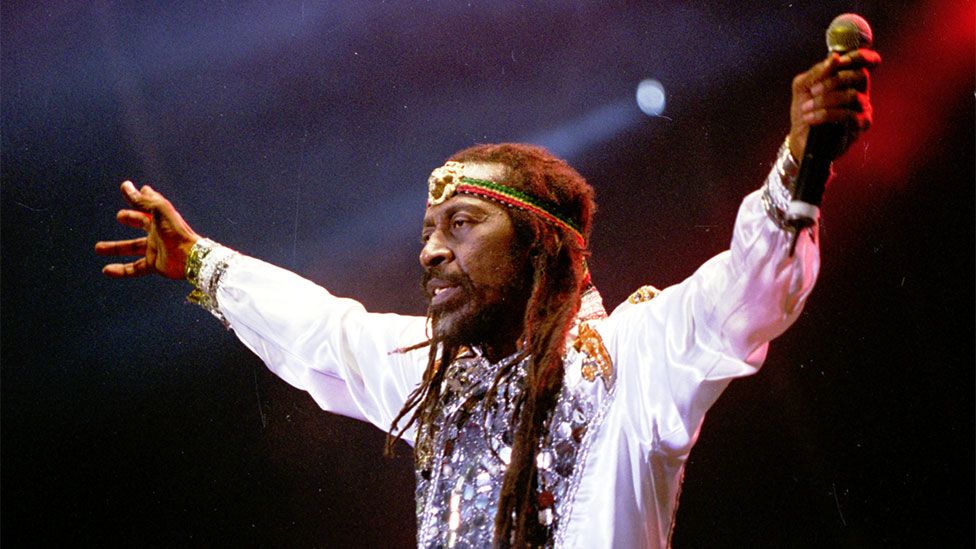
One of reggae’s most important voices, the Jamaican musician was a founding member of The Wailers alongside his childhood friend, Bob Marley. Together, they achieved international fame with reggae classics like Simmer Down and Stir It Up. Wailer left to go solo in 1974. Bunny Wailer won Grammys for three reggae albums in the 1990s - each of them preserving and extending the musical legacy of Marley and the Wailers.
Dennis Thomas
Kool & The Gang founding member
Described as the “cool cat” in the group, Dennis Thomas was Kool & The Gang’s sax player, flautist, percussionist - as well as master of ceremonies at shows. The band started in 1964 - but success peaked in the 1970s and 80s with hits such as Celebration, Joanna and Get Down On It. Their music also featured in several films including Pulp Fiction and Saturday Night Fever, for which they received a Grammy.
DMX
Record-breaking rapper
The secret to DMX’s musical power was his singular ability to be commercial while keeping his hardcore credibility intact. Intensity and theatricality were his trademarks, from his imposing muscular and tattooed physique to the gruffness of his delivery. DMX was one of the US’s most successful stars of the late 1990s and 2000s. He made music history by becoming the first artist to see his first five albums go to number one in the Billboard charts, selling 14 million copies in the US.
Carlos Marin
Il Divo singer
The male quartet - Il Divo - was brought together by Simon Cowell in 2003 and achieved three UK number one albums. Carlos Marin was born in Germany, but moved to Spain at the age of 12 and was a baritone in the classical group, performing alongside tenors Urs Buhler and David Miller, and pop singer Sebastien Izambard.
Stephen Sondheim
Musical theatre icon
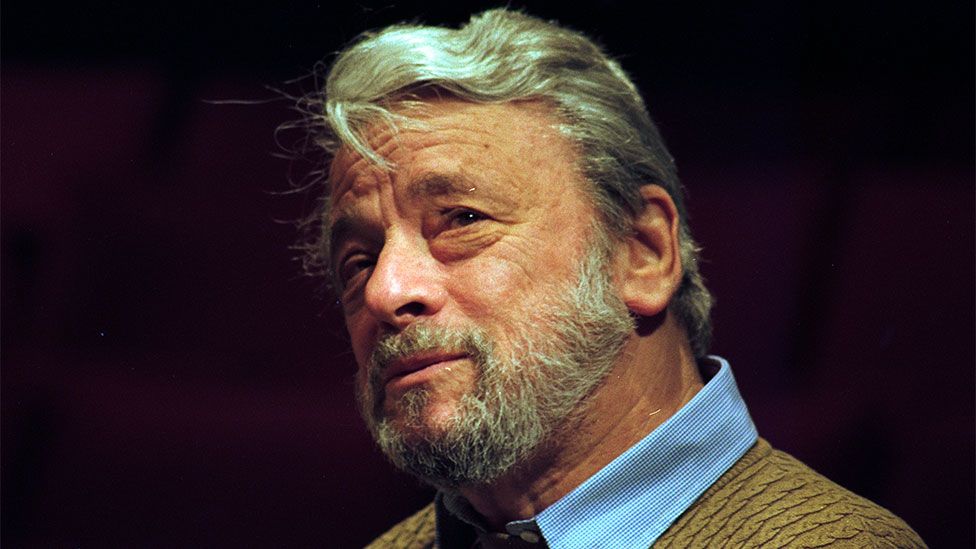
The New-York born composer Stephen Sondheim was a titan of musical theatre. His big break came through an invitation to pen lyrics for West Side Story - Leonard Bernstein’s contemporary retelling of Shakespeare’s Romeo and Juliet. It opened on Broadway in 1957 and ran for more than 700 performances. A 1961 film version won 10 Oscars. Sondheim wrote the scores of some of Broadway’s best-known shows including Company, Follies and A Little Night Music. He won eight Grammy awards, nine Tony awards and one Academy Award.
Chris Barber
Jazz band leader
One of the leading figures in British and European jazz, Chris Barber formed his first band after World War Two in London, while studying trombone and double-bass at the Guildhall School of Music. The Chris Barber Band’s biggest hit was 1959’s Petite Fleur, which sold more than 2.5 million copies and propelled the band to the international stage.
Chick Corea
Jazz innovator
The US musician Chick Corea is the fourth most-nominated artist in Grammys history - with 65 nods and 23 wins. The Recording Academy, which hosts the Grammys, paid tribute to “undisputedly one of the most incredible jazz innovators of all time”. His career spanned more than five decades and he played with Miles Davis in the late 1960s - including on his acclaimed jazz-rock double album Bitches Brew. Corea’s own group, Return to Forever, was at the forefront of the jazz-fusion movement.
Leslie Bricusse
Prolific film hit lyricist
In a career that spanned 60 years, Leslie Bricusse wrote the words for many of cinema’s biggest and most memorable hits. He wrote the lyrics to Shirley Bassey’s Bond classic Goldfinger, with long-time collaborator Antony Newley. He was also behind Doctor Dolittle’s Talk to the Animals - plus Candyman and Pure Imagination from the 1971 film Willy Wonka and the Chocolate Factory. Composer Andrew Lloyd Webber described him as “the most underestimated British songwriter of all time”.
Jim Steinman
Bat Out Of Hell and Total Eclipse Of The Heart composer
Known for his bombastic, operatic compositions, Jim Steinman hit the big time in 1977 with the Meat Loaf album Bat Out Of Hell. Styled as a rock opera, it contained hits like You Took The Words Right Out Of My Mouth and Two Out Of Three Ain’t Bad as well as the title track. More than 50 million copies sold around the world. Steinman also wrote the Cher/Meat Loaf duet Dead Ringer For Love and Bonnie Tyler’s Holding Out For A Hero. Tyler - who scored a UK number one with Steinman’s Total Eclipse of the Heart - said the world was “a better place for his life and his work and a worse one for his passing”.
Alan Hawkshaw
Grange Hill and Countdown composer
Alan Hawkshaw wrote the music for more than 35 films and “countless” television programmes - according to his website - including the theme tunes for Grange Hill, Countdown and Channel 4 News. In the 1960s, he was in rock ‘n’ roll group Emile Ford & The Checkmates, which toured with the Rolling Stones. He went on to join the Shadows in the 1970s and also worked as Olivia Newton-John’s musical director, arranger and pianist.
Sophie
‘Visionary’ music producer
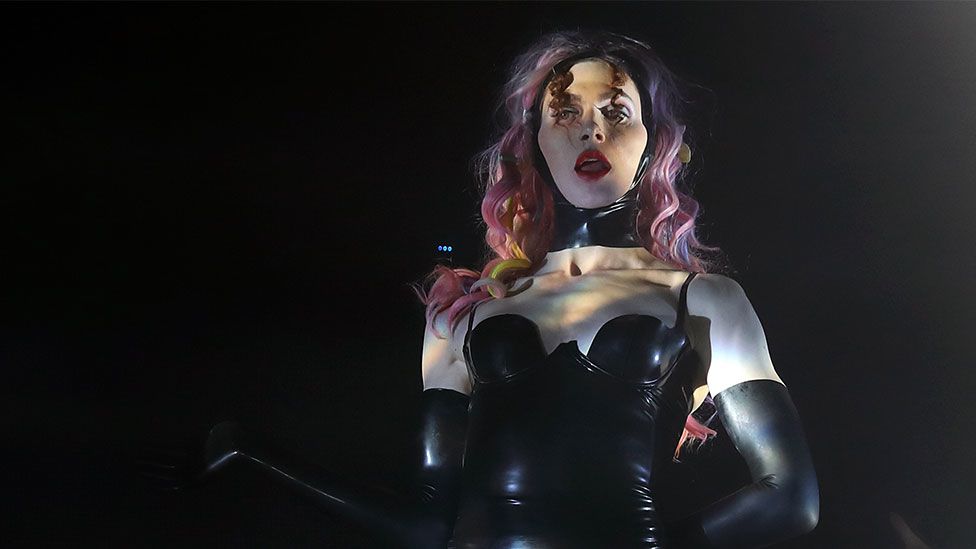
The Grammy-nominated experimental musician and producer Sophie worked with the likes of Madonna, Diplo, Camila Cabello and Charli XCX. Sophie’s productions drew on pop, trance and underground dance music - mixing them with warped, disorientating waveforms to create a sound that was both instantly recognisable and highly in-demand. The Glasgow-born artist, who preferred not to use gendered pronouns, was also known as a transgender icon. Sophie told Billboard that being trans meant “taking control to bring your body more in line with your soul and spirit so the two aren’t fighting against each other and struggling to survive”.
Sir Graham Vick
Pioneering opera director
Born in Birkenhead, Sir Graham Vick founded the Birmingham Opera Company in 1987 and worked with major venues, including Milan’s La Scala and London’s Royal Opera House. In Birmingham, with no fixed venue, he created innovative performances in unusual locations that aimed to reflect the city - including aircraft hangars, nightclubs and power stations.
Mick Rock
Photographer of rock stars
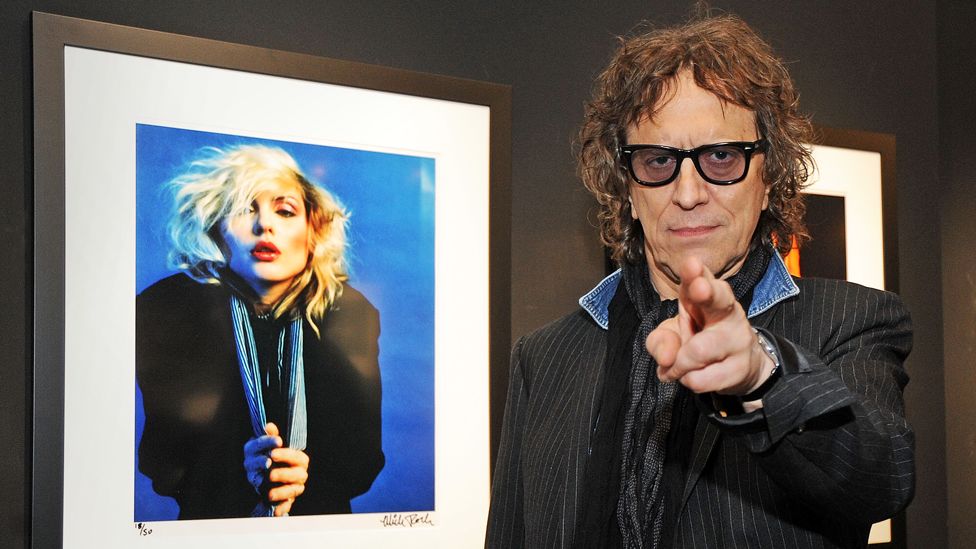
Mick Rock - once dubbed “the man who shot the 70s” - took images of stars like David Bowie, Marc Bolan, Iggy Pop, Blondie and Lou Reed. His famous album covers include a shot of Queen with their faces lit up against a black background for Queen II, and a shirtless Iggy Pop for The Stooges’ Raw Power. He went on to work with artists like Miley Cyrus, Lady Gaga, Snoop Dogg and the Yeah Yeah Yeahs. The tribute on his Twitter page described him as a “photographic poet” who had created “some of the most magnificent images rock music has ever seen”.
Phil Spector
US pop producer jailed for murder
Phil Spector died in a California prison - having been jailed in 2009 for the murder of Hollywood actress Lana Clarkson. In the 1960s, he transformed pop with his “wall of sound” recordings - characterised by bombastic, reverberating instruments which constantly threatened to drown out the vocals. He produced Ike and Tina Turner, the Righteous Brothers, the Ronettes and the Crystals. He influenced major artists, including the Beach Boys and Bruce Springsteen.
Broadcasting, journalism, writing
Our look back includes trailblazing feminist author and activist bell hooks; Interview with the Vampire author Anne Rice; fast-talking DJ Jono Coleman; giant of the talk shows Larry King; and Eric Carle, whose Very Hungry Caterpillar sold more than 50 million copies.
Wilbur Smith
Best-selling author
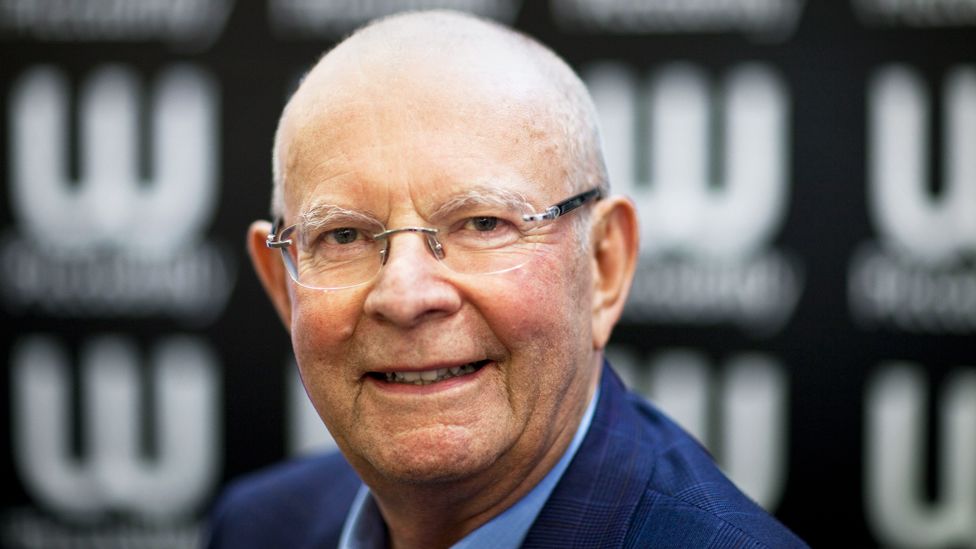
Born in 1933 in Northern Rhodesia, now Zambia, Wilbur Smith gained widespread recognition following the publication in 1964 of his debut novel, When the Lion Feeds. It tells the story of a young man growing up on a South African cattle ranch in the shadow of the Zulu wars and the gold rush. In total, his 49 books have sold more than 140 million copies worldwide.
Joan Didion
US literary icon
Revered by legions of young and aspiring writers for her cool, terse and distinctive voice, Joan Didion chronicled 1960s and 1970s American culture - writing about the fragmentation of US life. Her book, The Year of Magical Thinking, mined her own grief following the death of her husband and was 2006 Pulitzer Prize finalist - while her screenwriting credits included the 1976 film A Star Is Born.
Bell hooks
Acclaimed feminist author and activist
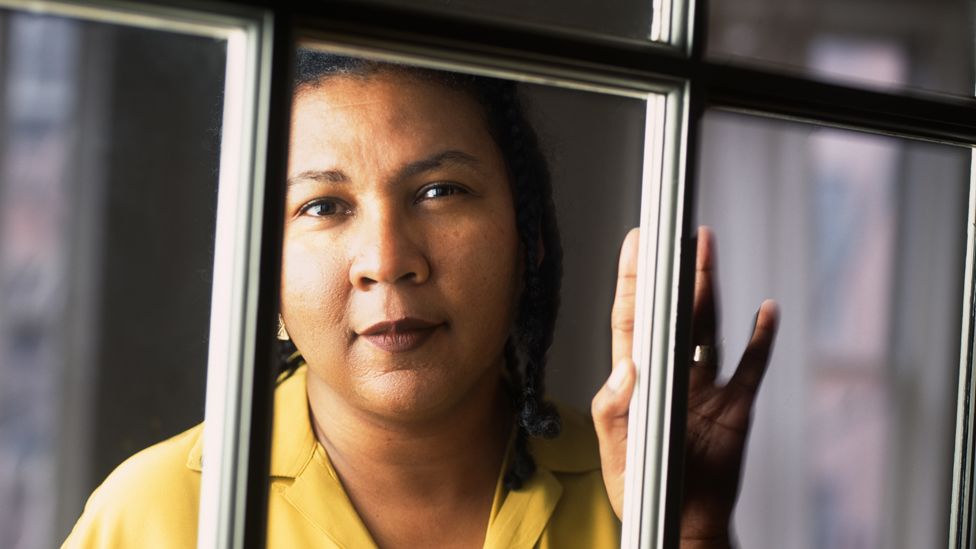
Hooks published some 40 books and was considered a trailblazer within the intersectional feminism movement - which focuses on how a woman’s race, gender and social class are interconnected. Her real name was Gloria Jean Watkins but she adopted her great-grandmother’s name Bell Blair Hooks for her writing. However, bell hooks deliberately styled her own name with lower case letters - so readers could focus on the “substance of books, not who I am”.
Anne Rice
Interview with the Vampire author
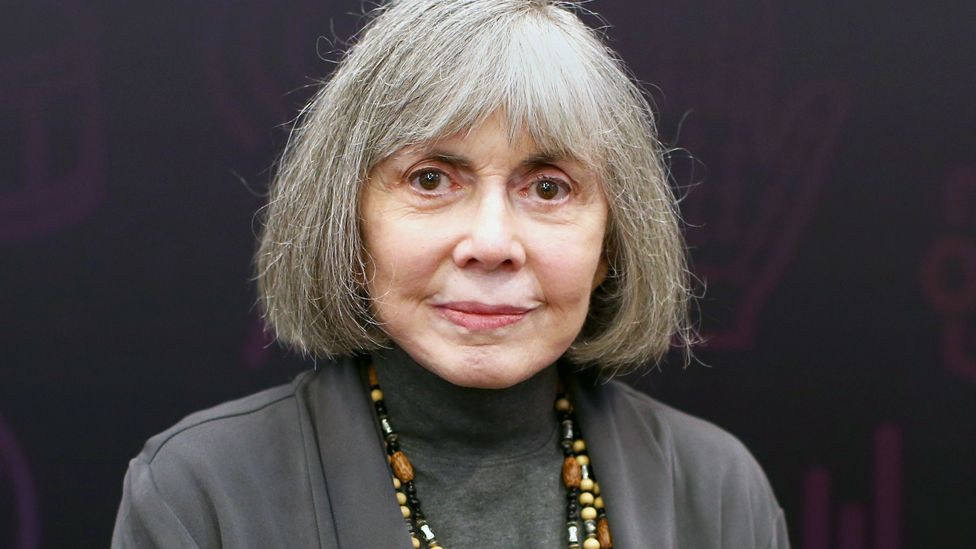
Anne Rice’s gothic novel was published in 1976 and went on to be a bestseller. It was later adapted into a movie starring Tom Cruise and Brad Pitt in 1994. The US writer sold more than 150 million books. She also wrote erotic fiction under the pseudonyms Anne Rampling and AN Roquelaure.
Larry McMurtry
Lonesome Dove and Terms of Endearment author
Renowned for his unromantic depictions of the American West, two of his novels - The Last Picture Show and Terms of Endearment - became Oscar-winning films. Larry McMurty won an Oscar himself for the adapted screenplay he co-wrote for the 2005 film Brokeback Mountain. Lonesome Dove, his 1985 novel about Texas Rangers turned cattle herders in the 1870s, won a Pulitzer Prize and became an acclaimed TV miniseries.
Eric Carle
Very Hungry Caterpillar author
Eric Carle’s best-selling children’s book - just 224 words long - was published in 1969, has sold more than 50 million copies and been translated into 62 languages. Carle - born in Syracuse, New York - began writing children’s books in his late 30s. He said his caterpillar tale had become a story of hope. “And it is this hopeful feeling that has made it a book readers of all ages enjoy and remember.”
Beverly Cleary
Creator of Ramona Quimby
At a time when children’s literature told the stories of genteel English schoolchildren, US author Beverly Cleary wrote about what she called ordinary, “grubby kids”. Her stories about feisty Ramona Quimby and Henry Huggins were set in Portland, Oregon, where Cleary grew up. She wrote six books about Henry and his dog Ribsy - but it was Ramona, a precocious young girl who was originally a supporting character in the books, who evolved into a stand-out protagonist.
Jill Murphy
The Worst Witch author and illustrator
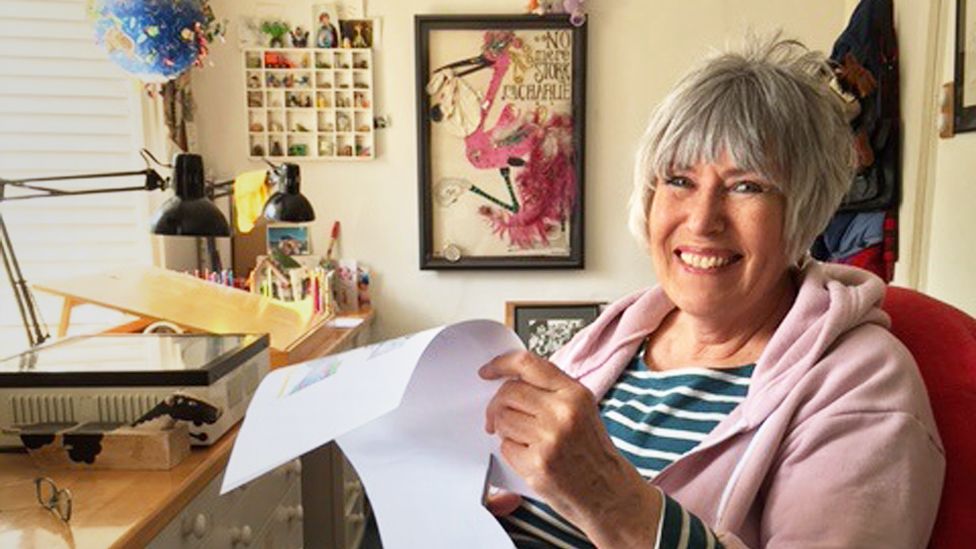
Jill Murphy came up with the idea for her first Worst Witch novel - which followed the exploits of Mildred Hubble at witch school - at the age of 14 and based it on her own experiences at a strict convent school. She had finished writing it by 18 and it was published when she was 24. The eighth and most recent installment came out in 2018. The books were later adapted for the stage, film and TV.
Janice Long
BBC DJ and broadcaster
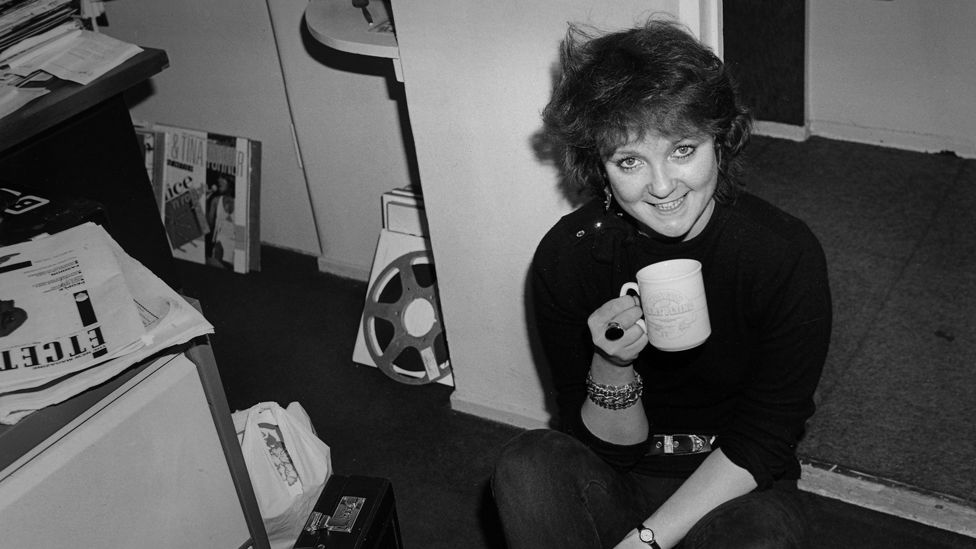
Janice Long worked as cabin crew and in telesales before starting her broadcasting career as a station assistant at BBC Radio Merseyside in 1979. She joined Radio 1 as a presenter in 1983 - becoming the first woman to have her own daily show on the network. She also presented Top of the Pops for five years - again, the first woman to do this - and later had a late-night slot on Radio 2. Since 2017, Long had been the host of BBC Radio Wales’ evening show.
Jonathan Coleman
Radio and TV presenter
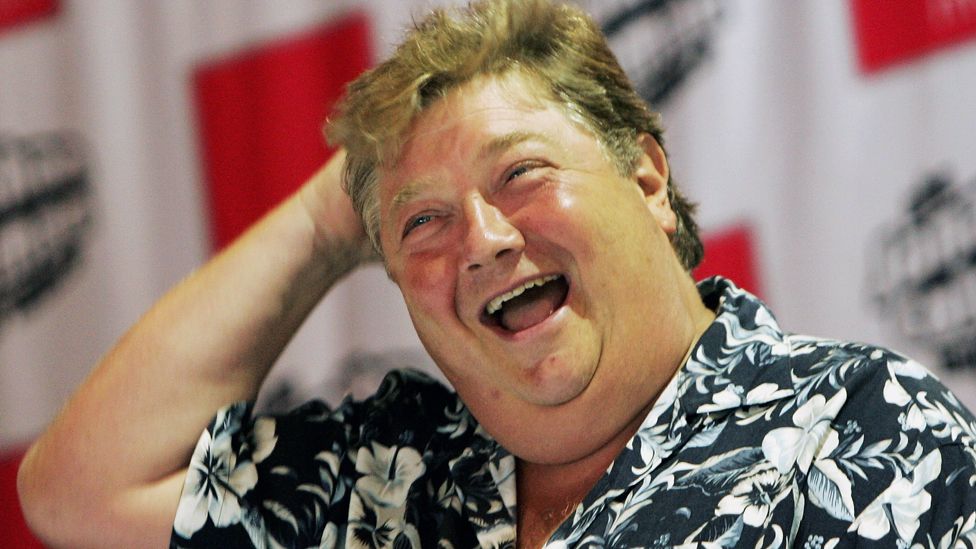
The fast-talking DJ - known best as Jono - enjoyed a long broadcasting career. Born in London, Jonathan Coleman moved with his family to Australia where he first appeared on TV screens and various radio stations. He later spent 16 years in the UK - where he presented the Russ and Jono Show with Russell Williams on Virgin Radio in the 1990s, as well as other shows on BBC Radio London and Heart 106.2.
Max Stahl
Blue Peter host and film-maker
He was known as Christopher Wenner when he co-hosted the BBC children’s programme Blue Peter from 1978-80. As Max Stahl - taking his other first name and his mother’s maiden name - he filmed the 1991 massacre of 271 protesters against Indonesian rule in East Timor. His footage brought global attention to the killings there, with the former East Timor President José Ramos-Horta calling him a “treasured son”. Stahl worked in front of and behind the camera for more than 20 years for television channels in Europe, North America and Australia.
Michael Apted
TV documentary pioneer and film-maker
Michael Apted was best known for the Up series of TV documentaries following the lives of 14 people every seven years. The original 7 Up in 1964 set out to document the life prospects of a range of children from all walks of life. The latest update on their lives - 63 Up - was in 2019. The show was inspired by the Aristotle quote “give me a child until he is seven and I will show you the man”. He also directed Coal Miner’s Daughter, Gorillas In The Mist and the 1999 Bond movie The World Is Not Enough.
Rush Limbaugh
Controversial radio personality and political commentator
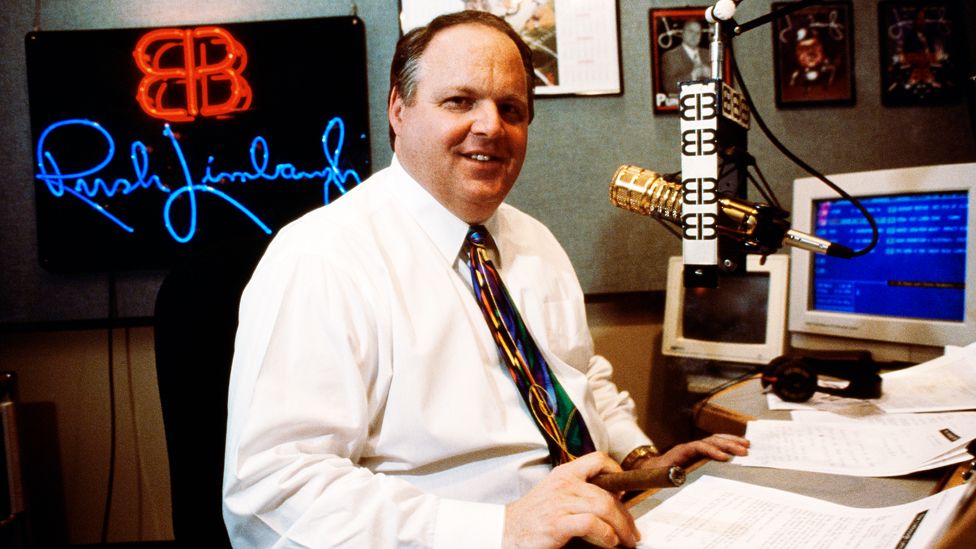
A towering figure in the US conservative movement for years, he was best known for hosting his long-running talk radio programme - The Rush Limbaugh Show. Three presidents appeared on his show, and he received the US Presidential Medal of Freedom in 2020. But he was as controversial as he was influential - accused of voicing racist, sexist and homophobic views throughout his career. The climate change denier peddled numerous conspiracy theories on the air, and staunchly opposed immigration.
Larry King
Veteran US talk show host
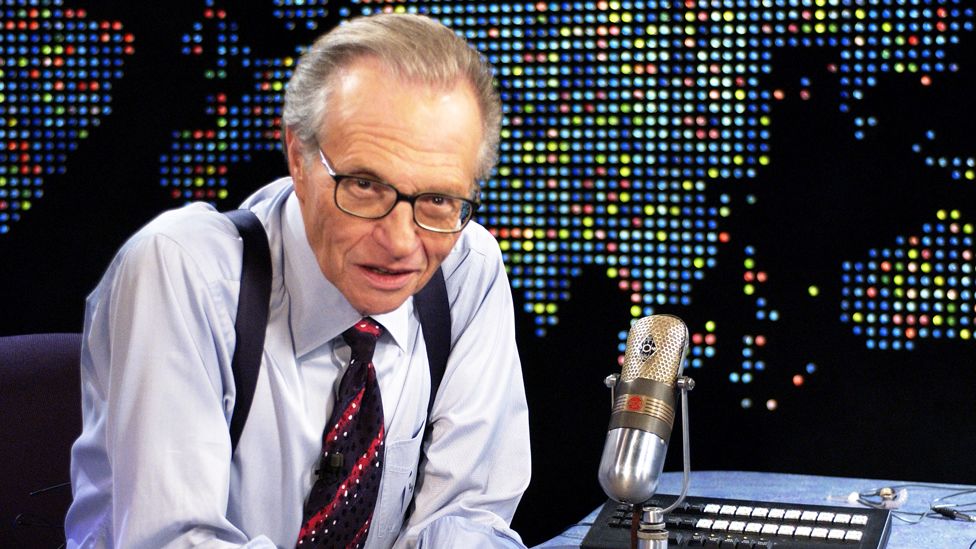
A giant of US broadcasting, he achieved worldwide fame for interviewing political leaders and celebrities. Larry King conducted an estimated 50,000 interviews in his six-decade career - and rose to fame in the 1970s with a radio programme on the commercial network, Mutual Broadcasting System. In 1985, he launched Larry King Live on the fledgling CNN, and became one of the network’s biggest stars. The programme, broadcast globally, was a big hit with audiences - with King answering thousands of phone calls from viewers.
UK politics
Our look back includes Baroness Shirley Williams, one of the “Gang of Four” who quit Labour to form the Social Democratic Party; Sir John Chilcot, whose inquiry into the 2003 invasion of Iraq produced a two-million word report; and the Grimsby-loving MP Austin Mitchell who changed his name to Austin Haddock.
Sir David Amess
Conservative MP
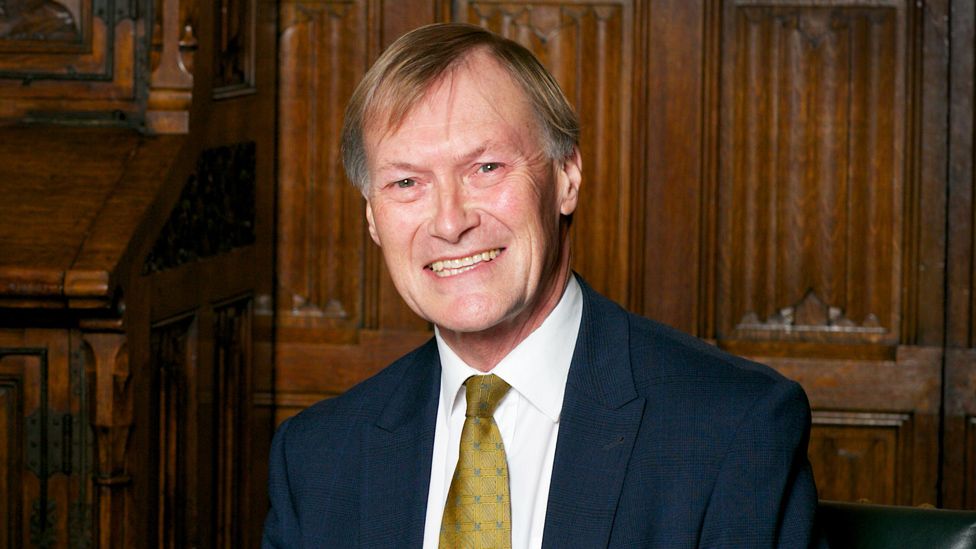
According to Hansard - the record of what is said in Parliamentary debates - Sir David Amess made more than 1,300 spoken contributions in the House of Commons. From becoming an MP in 1983, until his death at a constituency surgery in Leigh-on-Sea in October, he raised numerous issues and topics ranging from ending fuel poverty, the closure of Post Offices, to securing city status for his beloved Southend (which was granted posthumously). At a service of remembrance, his friend Mark Francois MP said whatever the weaknesses of Parliament, Sir David was “the living embodiment of all its strengths” and “really was a jolly good fellow”.
James Brokenshire
Conservative MP and ex-Northern Ireland Secretary
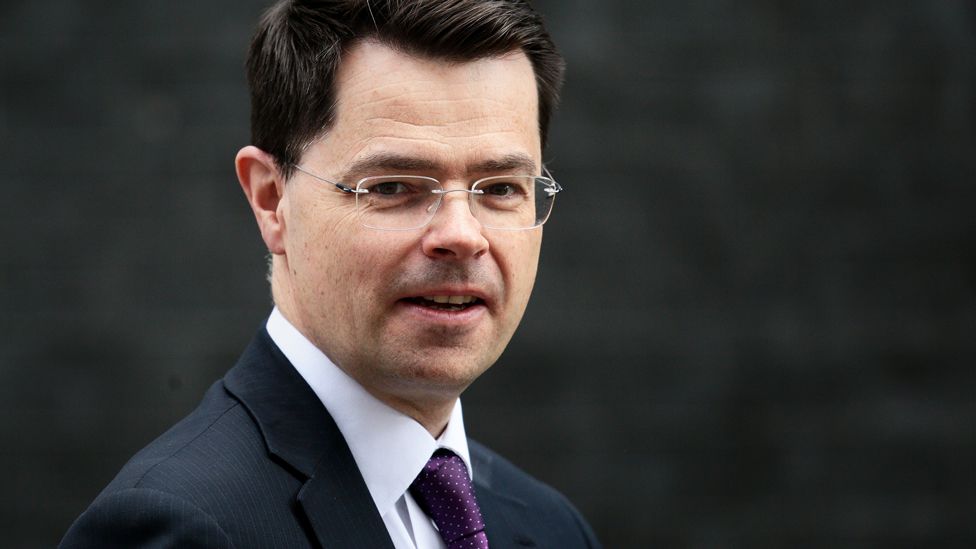
An MP since 2005, James Brokenshire served in government under three prime ministers - David Cameron, Theresa May and Boris Johnson. The former lawyer and MP for Old Bexley and Sidcup had lung cancer - and since his diagnosis had worked to promote greater awareness of the disease, urging people with symptoms to get tested. Paying tribute, Mr Johnson described Mr Brokenshire as the “nicest, kindest and most unassuming of politicians, but also extraordinarily effective”.
Dame Cheryl Gillan
Conservative MP and former Welsh Secretary
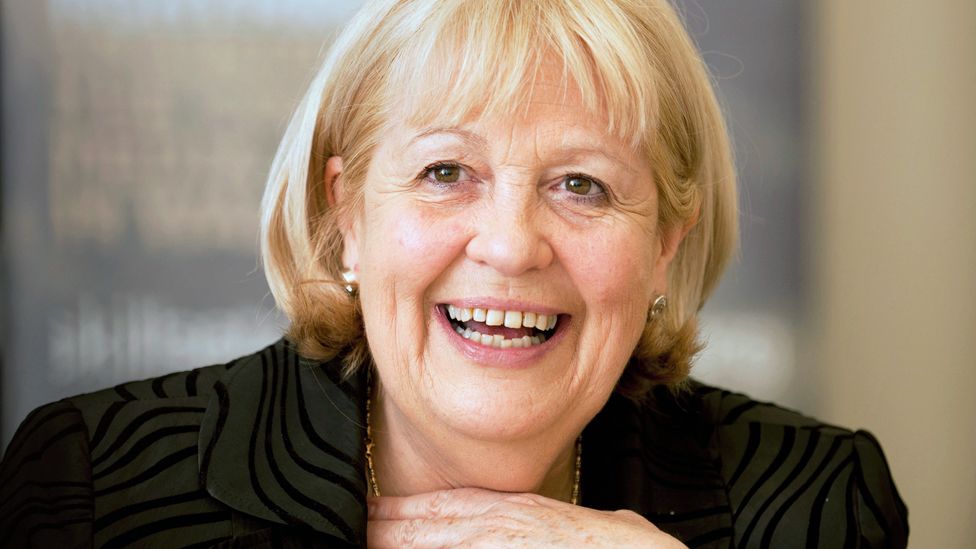
Born in Llandaff in Cardiff, Dame Cheryl Gillan - the MP for Chesham and Amersham - served as Welsh Secretary between 2010 and 2012. A former marketing executive, she was also the acting joint chair of the 1922 Committee of Tory backbench MPs in mid-2019 - and helped preside over the Conservative leadership contest which saw Boris Johnson become Theresa May’s successor. Commons’ Speaker, Sir Lindsay Hoyle, described Dame Cheryl as “one of the most popular, friendly and kindly people” in Parliament.
Baroness Shirley Williams
Former cabinet minister and veteran politician
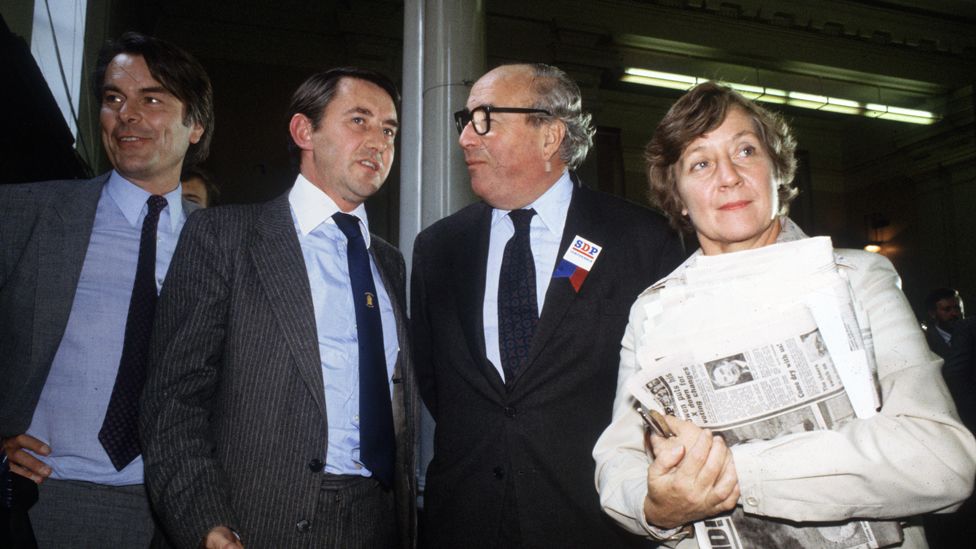
Shirley Williams first entered Parliament as Labour MP for Hitchin in 1964 - rising to become a leading member of the 1970s Labour government, and one of the first female cabinet ministers. But in 1981 - unhappy with the way Labour was moving to the Left - she was one of the “Gang of Four” who quit the party to found the Social Democratic Party (SDP). At the end of the decade, she supported the SDP’s merger with the Liberal Party, which led to the creation of the Liberal Democrats. Lib Dem leader Sir Ed Davey said political life would be “poorer without her intellect, her wisdom and her generosity”.
Austin Mitchell
Great Grimsby MP
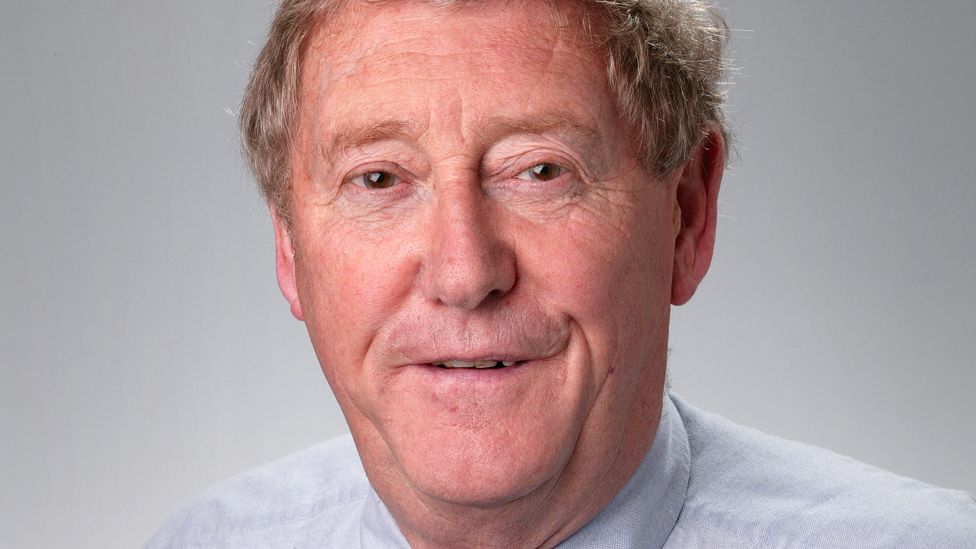
Austin Mitchell worked as a journalist for Yorkshire Television before being elected to the Great Grimsby constituency in 1977. He held the seat until 2015. He was a colourful figure in the North East Lincolnshire port, even temporarily changing his name by deed poll to Austin Haddock in 2002 in a bid to promote the fishing industry. Great Grimsby Labour Party said: “His passion for Grimsby knew no bounds. His good humour, kind nature and booming laugh will never be forgotten in our town or our party.”
Austin Currie
Northern Ireland civil rights leader
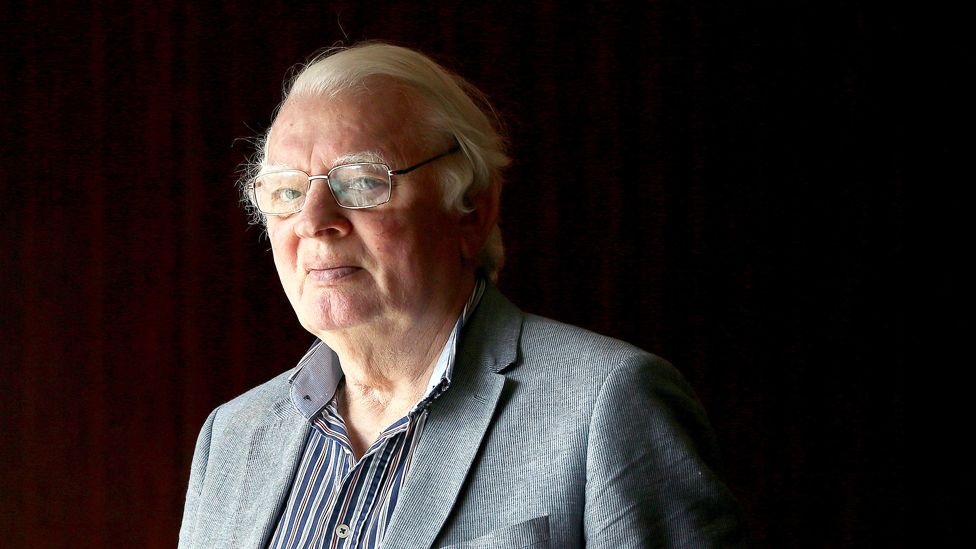
Austin Currie led a high-profile housing rights protest in County Tyrone in 1968 - when he squatted in a council property which had been allocated to a single, childless Protestant teenager, despite there being many Catholic families on the housing waiting list. Two years later he helped to found the Social Democratic and Labour Party (SDLP). He served as a member of parliament and as a government minister on both sides of the Irish border. President of Ireland Michael D Higgins said Currie had given “outstanding service to people of the island of Ireland”.
Sir John Chilcot
Chairman of the Iraq Inquiry
Sir John Chilcot - a former Whitehall permanent secretary who worked for decades at the highest level of government - headed the investigation into British involvement in the US-led invasion of Iraq in 2003. The inquiry took seven years to complete - with its two-million-word findings published in 2016. It concluded that former prime minister Tony Blair had overstated the threat posed by Iraq leader Saddam Hussein, and the invasion was not the “last resort” action presented to Parliament.
Sir William Macpherson
Led the Stephen Lawrence Inquiry
A retired high court judge from rural Scotland, Sir William Macpherson led the public inquiry into the 1993 murder of black teenager Stephen Lawrence - by a gang of white youths on a street in south-east London. He heard from more than 80 witnesses and considered 100,000 pages of documents. His findings - published in 1999 - labelled London’s Metropolitan Police as “institutionally racist”, calling on the force to “re-establish trust” with minority ethnic communities.
Achievers and those who left their mark
Our review includes bold and controversial architect Richard Rogers; Michelin-starred chef Albert Roux; Fisherman’s Friend tycoon Doreen Lofthouse, “the mother of Fleetwood”; Louis Vuitton’s creative director Virgil Abloh; and the Godfather of Sudoku, Maki Kaji.
Archbishop Desmond Tutu
South African anti-apartheid hero
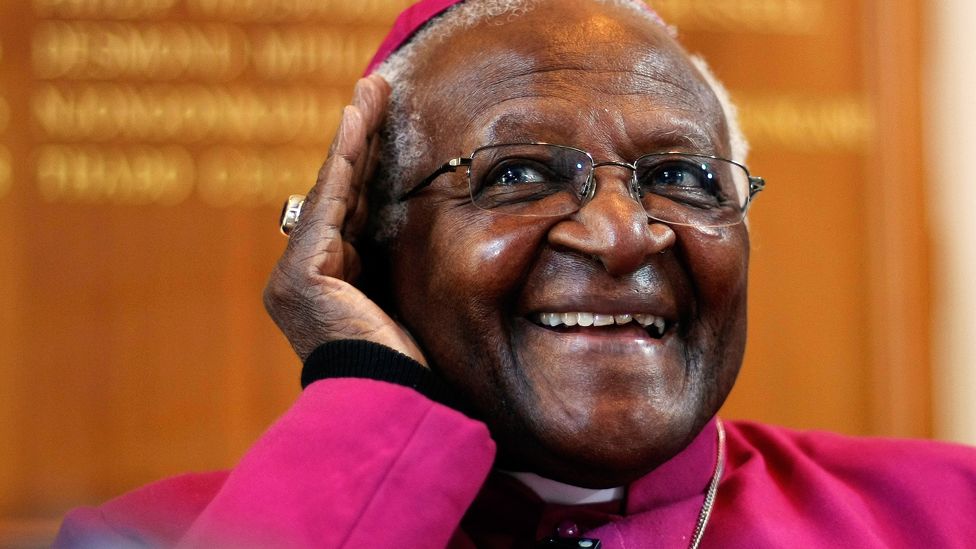
The smiling archbishop’s irrepressible personality won him friends and admirers around the world. A contemporary of anti-apartheid icon Nelson Mandela, he was one of the driving forces behind the movement to end South Africa’s policy of racial segregation and discrimination enforced by the white minority government against the black majority from 1948 until 1991. He was awarded the Nobel Peace prize in 1984 for his role in the struggle. Archbishop Tutu was also credited with coining the term Rainbow Nation to describe the ethnic mix of post-apartheid South Africa.
Captain Sir Tom Moore
Hero who inspired hope
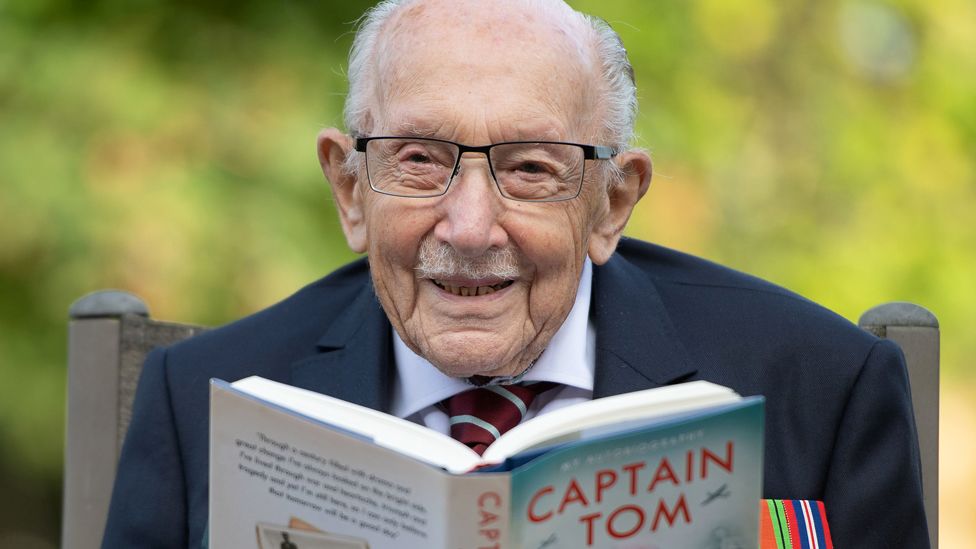
The 99-year-old Army veteran Captain Tom won the nation’s hearts by walking 100 laps of his garden in Bedfordshire for NHS charities during the first Covid-19 lockdown. He had aimed to raise £1,000, but by the time he closed his fundraising page at midnight on his 100th birthday, he had raised in excess of £32m from more than one-and-a-half-million global donors. The Queen - who knighted him for his efforts - led tributes, “recognising the inspiration he provided for the whole nation and others across the world”.
Michael Collins
Apollo 11 astronaut
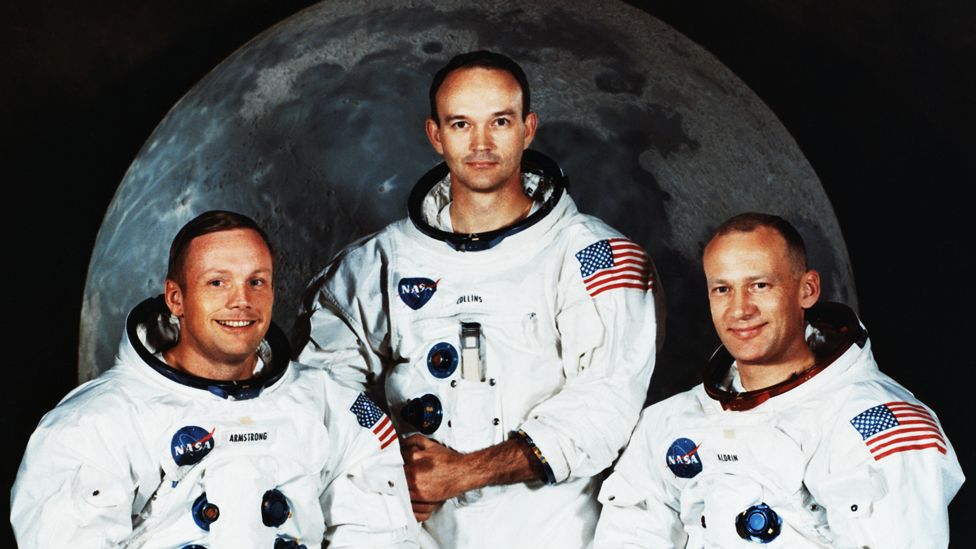
Michael Collins was one of the three crew members of the first manned mission to land on the Moon. As the command module pilot, Collins stayed in lunar orbit while Neil Armstrong and Buzz Aldrin bounded across the surface. But he performed crucial manoeuvres in space that were needed to facilitate the Moon landing. Aldrin - now the mission’s only surviving member - paid tribute: “Dear Mike, Wherever you have been or will be, you will always have the Fire to Carry us deftly to new heights and to the future. We will miss you. May you Rest In Peace.”
Richard Rogers
Millennium Dome and Pompidou Centre architect
Regarded as one of the world’s most successful and influential architects, Richard Rogers, Baron Rogers of Riverside, helped design some of the most remarkable buildings of the past 50 years. Born in 1933 to an Anglo-Italian family in Florence, he trained at the Architectural Association School of Architecture in London before graduating with a Master’s from Yale. His projects - technologically innovative and visually striking - included the Pompidou Centre in Paris, and the Lloyd’s building and Millennium Dome in London.
Sir Clive Sinclair
Computing pioneer
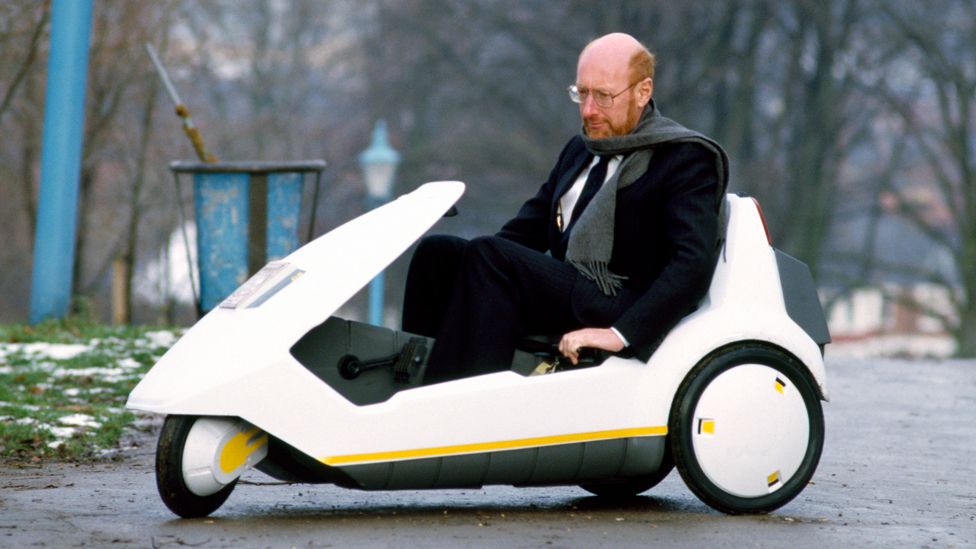
One of Britain’s most prolific innovators, Sir Clive Sinclair was a driving force behind the success of the now ubiquitous personal computer. Largely self-taught, he began inventing gadgets while still at school. His ZX Spectrum computers brought affordable personal computing to the masses, and sold in their millions across the world. But his attempt to launch an electric vehicle - the Sinclair C5 - was not successful, and caused him severe financial problems.
Albert Roux
Chef and restaurateur
Albert Roux - and his brother Michel - brought great French cooking to the UK. Originally from a family of butchers in eastern France, they had trained to be patissiers. The pair made gastronomic history in 1982 when their London restaurant, Le Gavroche, became the first in the UK to earn three Michelin stars. With uncompromising standards, elaborate presentation and first-rate service, it raised the standards of haute cuisine in a then-limited restaurant scene.
Virgil Abloh
Fashion designer and founder of Off-White label
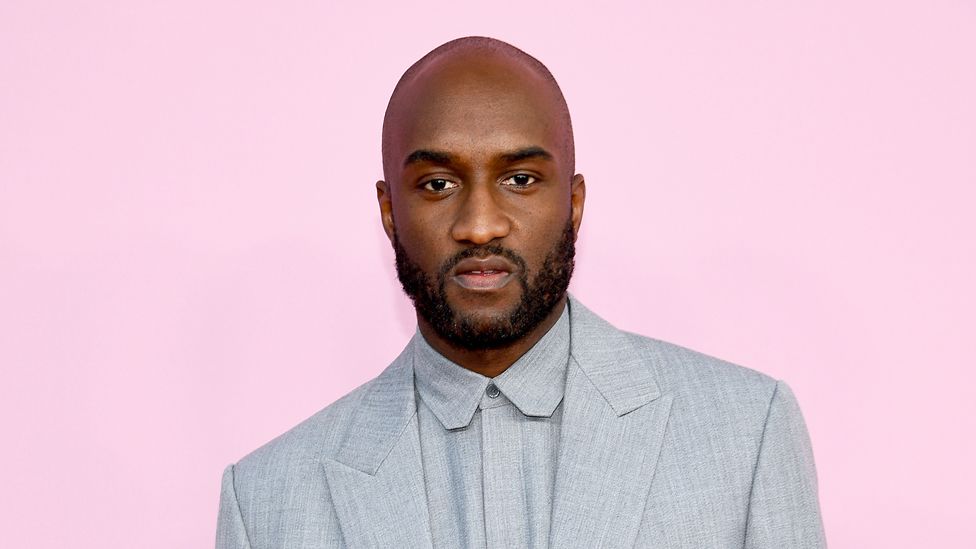
Louis Vuitton’s parent company LVMH described the artistic director Virgil Abloh as a “genius” and “visionary”. The US designer came to prominence as Kanye West’s creative director, but later made history as the first African-American to lead Louis Vuitton. Often hailed as one of the most influential fashion designers, Abloh was also a DJ and an artist, and had degrees in civil engineering and architecture.
April Ashley
Model, actress and ‘trans trailblazer’
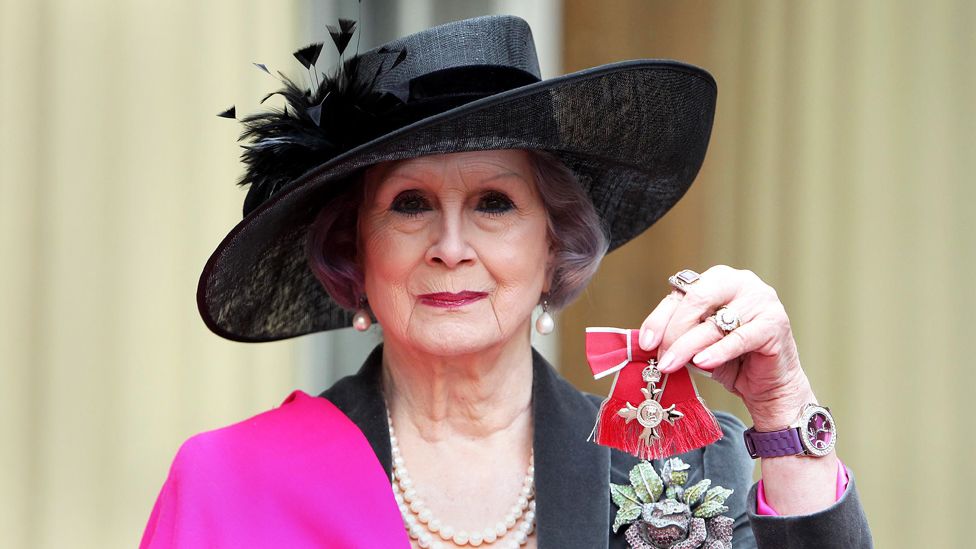
April Ashley was one of the earliest British people to undergo male-to-female gender reassignment surgery - she had the operation in Morocco in 1960. One of nine children born into a working-class family in Liverpool in 1935, Ashley joined the merchant navy as a teenager. After repeated suicide attempts, she spent time in a psychiatric unit. She then moved to Paris, where she saved money for her surgery. She later said becoming a woman made her the happiest she had ever been. In 2012, she was made an MBE for her campaigning work for the transgender community.
Sarah Weddington
US abortion rights lawyer
The Texas lawyer won the landmark 1973 court case to make abortions legal across the US. The Supreme Court case is widely known as Roe v Wade. By a vote of seven to two, the court justices ruled that governments lacked the power to prohibit abortions.
Dr Aaron Beck
Cognitive behavioural therapy pioneer
The US psychiatrist was considered the father of cognitive behavioural therapy - or CBT. After his initial training, Dr Aaron Beck began to question typical Freudian psychoanalysis which focused on uncovering conflicts buried within people’s pasts in their unconscious. Instead, he sought to counter his patients’ negative thoughts to change the way they thought, felt and behaved. CBT is now commonly used to manage depression, anxiety and post-traumatic stress disorders.
Prof John Mallard
Physicist behind first full-body MRI scanner
Prof John Mallard led a pioneering team at the University of Aberdeen, which developed the first whole-body Magnetic Resonance Imaging (MRI) scanner. Clinicians were able to use the university’s machine to carry out the world’s first body scan of a man from Fraserburgh with terminal cancer in 1980. The technology is now used globally in the diagnosis and treatment of cancer, dementia, and a wide range of other conditions and injuries.
Prof Clive Lee
Exeter hip co-creator
The University of Exeter engineer Prof Clive Lee created - with Prof Robin Ling - an implant which revolutionised hip replacements. The Exeter hip stem’s long-term success is largely due to its polished finish and tapered design - which makes it more secure and less likely to become loose. Since it was first implanted in November 1970, the Exeter hip has been implanted globally in more than two million patients.
Doreen Lofthouse
Fisherman’s Friend tycoon
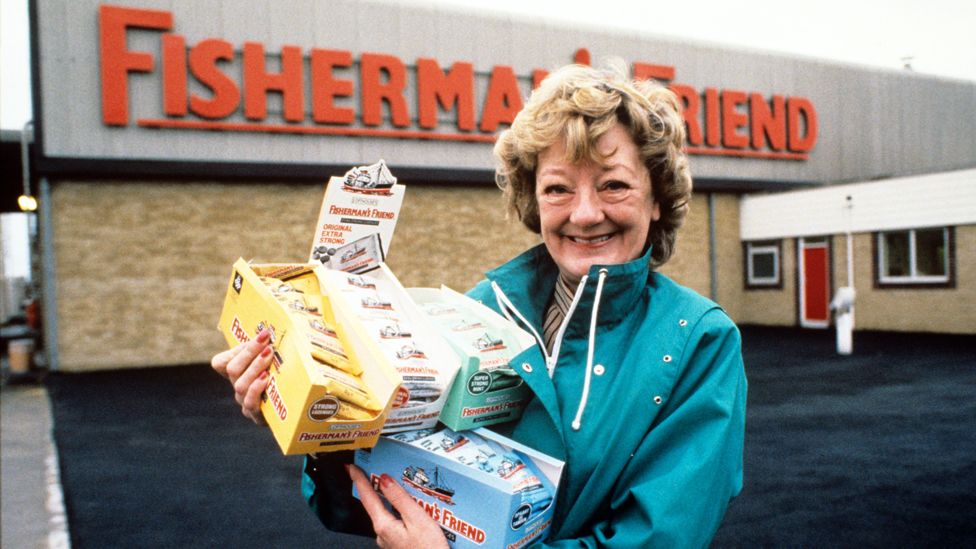
Doreen Lofthouse was a pioneering businesswoman who developed Fisherman’s Friend cough sweets from a small firm into a huge global brand. The lozenges were originally developed in 1865 by pharmacist James Lofthouse to relieve respiratory problems commonly suffered by fishermen. But in the 1960s, Doreen Lofthouse - who had married the pharmacist’s grandson - began to promote the menthol and eucalyptus sweets more widely. Lofthouse became known as “the mother of Fleetwood”. She and her family have given tens of millions of pounds to fund community projects in the Lancashire town.
Maki Kaji
‘Godfather of Sudoku’
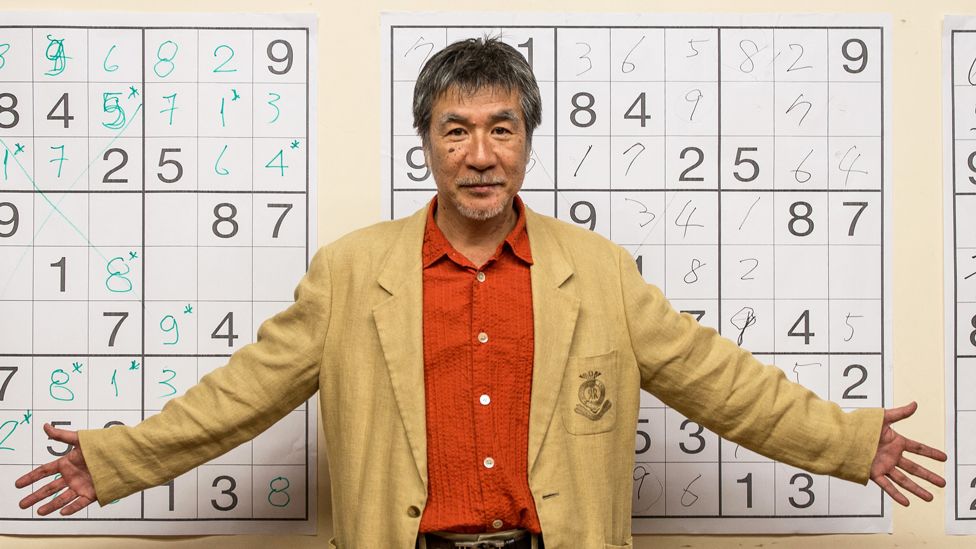
Maki Kaji first published a nine-by-nine grid - where the numbers 1 to 9 are placed in each row and column - in his magazine in Japan in 1984. Although the number puzzle’s origins date back centuries - and are disputed - Kaji had spotted a version called Number Place by US architect Howard Garns. He renamed it Sudoku and the game in Japan took off. It only turned into a global phenomenon in 2004, when The Times of London started publishing the puzzles.
Lou Ottens
Audio cassette tape inventor
Lou Ottens’ invention transformed the way people listened to music. The Dutch engineer led the Philips’ team which presented the audio cassette at the Berlin Radio electronics fair in 1963. Ottens struck a deal with Philips and Sony that saw his model confirmed as the patented version, after a number of Japanese companies reproduced similar tapes in a number of sizes. When asked about his career, he said his biggest regret was that Sony and not Philips had created the iconic cassette tape player, the Walkman.
Max Mosley
Privacy campaigner and ex-motorsport boss
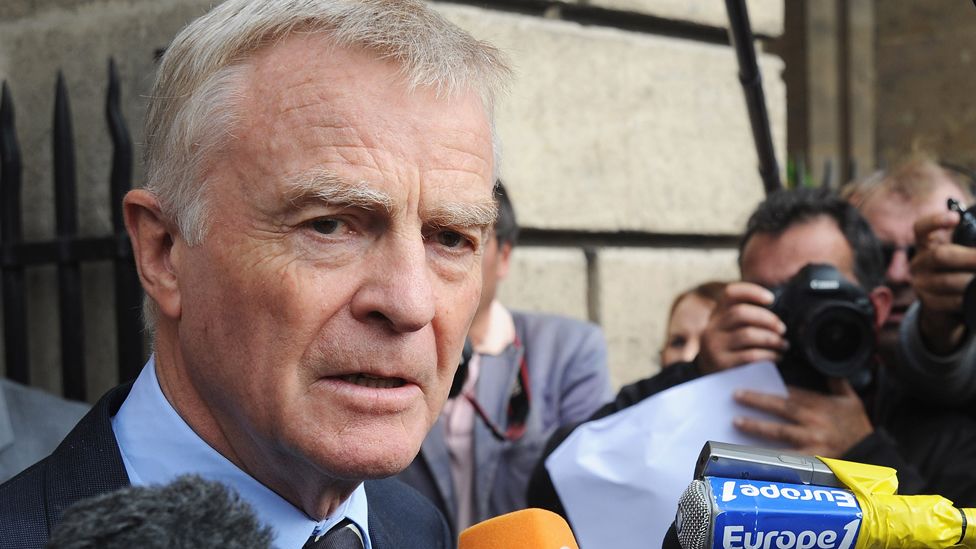
The son of 1930s British fascist leader Sir Oswald Mosley, Max Mosley led motorsport’s governing body the FIA from 1993 to 2009. He initiated widespread reforms of safety procedures in Formula 1 following the death of Ayrton Senna in 1994. He also campaigned for tighter press regulation after the News of the World wrongly published a story alleging he had attended a Nazi-themed orgy. Although Mosley was awarded damages, everyone had learned the details of his sexual preferences, and he argued money alone could not restore his reputation. In tribute, ex-Formula 1 boss Bernie Ecclestone said it was “like losing a brother”.
Larry Flynt
Hustler founder and free-speech activist
The founder of the US pornographic magazine - Hustler - frequently courted controversy during his career spanning five decades. Larry Flynt was shot in 1978 while standing outside a courthouse in Georgia during a trial for obscenity. The assassination attempt left Flynt a paraplegic. The self-proclaimed “smut peddler who cares” had his wheelchair gold-plated and lined with velvet.
Bernie Madoff
Disgraced Wall Street financier
He admitted to one of the biggest frauds in US financial history and had been serving a 150-year sentence after pleading guilty in 2009. Bernie Madoff ran a Ponzi scheme involving an estimated $65bn (£49bn), which paid investors with money from new clients rather than actual profits. It collapsed during the 2008 financial crisis. “Bernie, up until his death, lived with guilt and remorse for his crimes,” his lawyer Brandon Sample said in a statement.
Sport
Our look back includes popular TV duo Saint and Greavesie; the unmistakable voice of F1, Murray Walker; “Marvelous” Marvin Hagler, the masterful middleweight boxer; and the fearless Queen of the Nürburgring, Sabine Schmitz.
Ian St John
Liverpool and Scotland forward
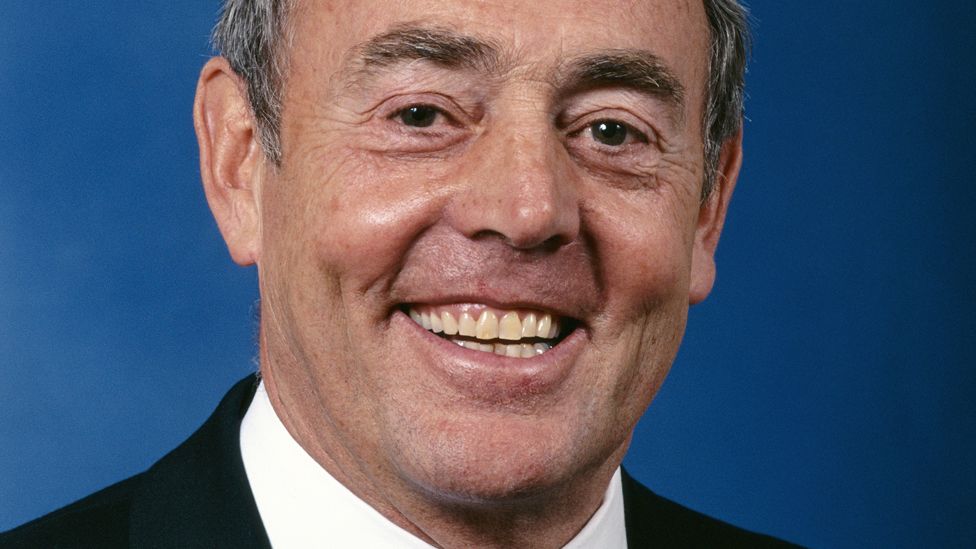
Ian St John joined Bill Shankly’s Liverpool side from Motherwell in 1961 for a club record £37,500. It has gone down in Liverpool mythology that when the board said they were reluctant to spend so much, Shankly’s reply was: “We can’t afford not to buy him.” St John played 425 games for the Anfield side, scoring 118 goals - including the decisive goal which earned Liverpool their first FA Cup in 1965. He also won 21 caps for Scotland and managed Motherwell and Portsmouth. He then enjoyed a successful career as a TV pundit, teaming up with former England striker Jimmy Greaves to front the hugely popular “Saint and Greavsie” show on ITV - which ran until 1992.
Jimmy Greaves
England striker and Tottenham’s record goalscorer
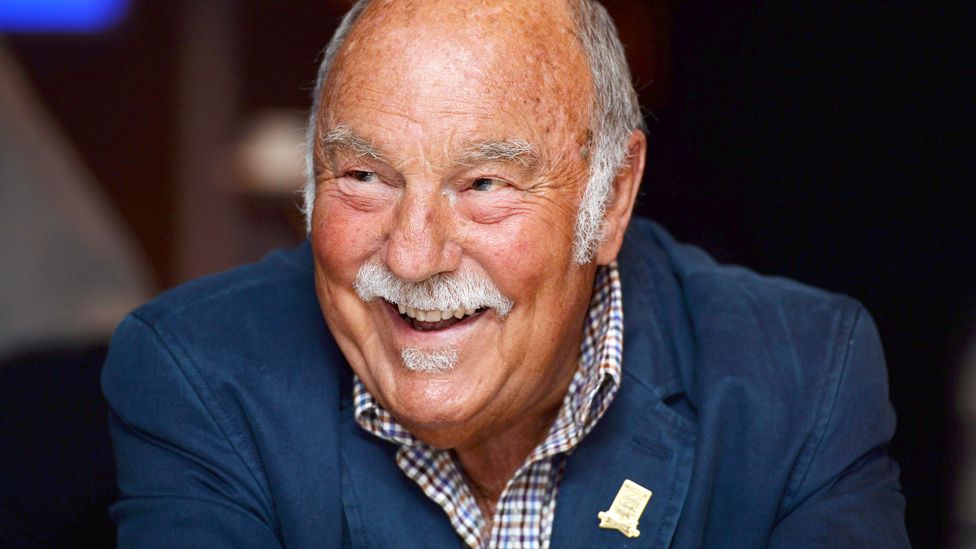
Jimmy Greaves began his career with Chelsea before spells at AC Milan, Spurs and West Ham. He scored 44 goals in 57 games for England and was a member of the 1966 World Cup-winning squad - although he didn’t play in the final. He holds the record - 357 - for most goals in the English top flight, 266 of them for Tottenham. “[He was] the finest marksman this country has ever seen,” said the club in a tribute. Greaves later presented “Saint and Greavsie”, a celebrated football show with former Liverpool striker Ian St John, between 1985 and 1992.
Roger Hunt
Liverpool and England striker
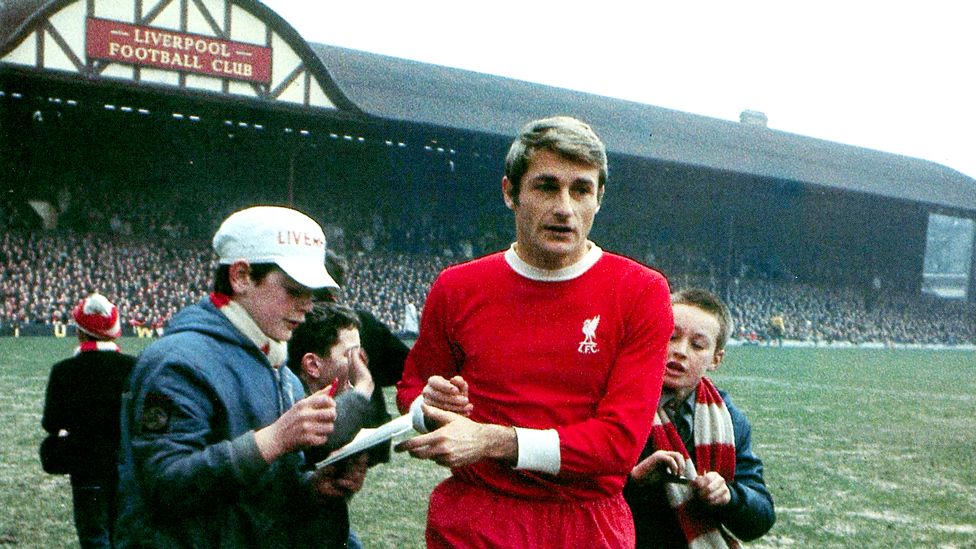
Known as “Sir Roger” to Liverpool fans because of his gentlemanly approach and modest demeanour, Hunt was part of England’s 1966 World Cup-winning side. He played in every game of the 1966 tournament and scored three times to help England out of their group. The forward won 34 England caps and scored 285 goals in 492 Liverpool appearances. He also had a successful three seasons with Bolton Wanderers after leaving Anfield in 1969.
Ron Flowers
England and Wolves midfielder
Ron Flowers was a legendary figure at Wolverhampton Wanderers, as well as a hugely respected and admired member of England’s 1966 World Cup squad. He earned 49 caps for England and made 515 appearances for Wolves between 1952 and 1967. Flowers helped the Midlands club to three First Division titles, as well as the 1960 FA Cup. He went on to be player-manager at Northampton Town and also had spells at Telford and Wellington Town.
Bertie Auld
One of Celtic’s ‘Lisbon Lions’
“A giant of a player, a giant of a man and quite simply Mr Celtic,” said Parkhead chairman Ian Bankier in tribute. Bertie Auld was best known for being one of Celtic’s “Lisbon Lions” who lifted the European Cup in 1967. He also won five league titles, three Scottish Cups and four League Cups while at Parkhead. The midfielder spent four years with Birmingham City between two spells with the Glasgow club before finishing his playing days with Hibernian. Capped three times for Scotland, he later managed Partick Thistle, Hibs, Hamilton Academical and Dumbarton.
Walter Smith
Rangers, Everton and Scotland manager
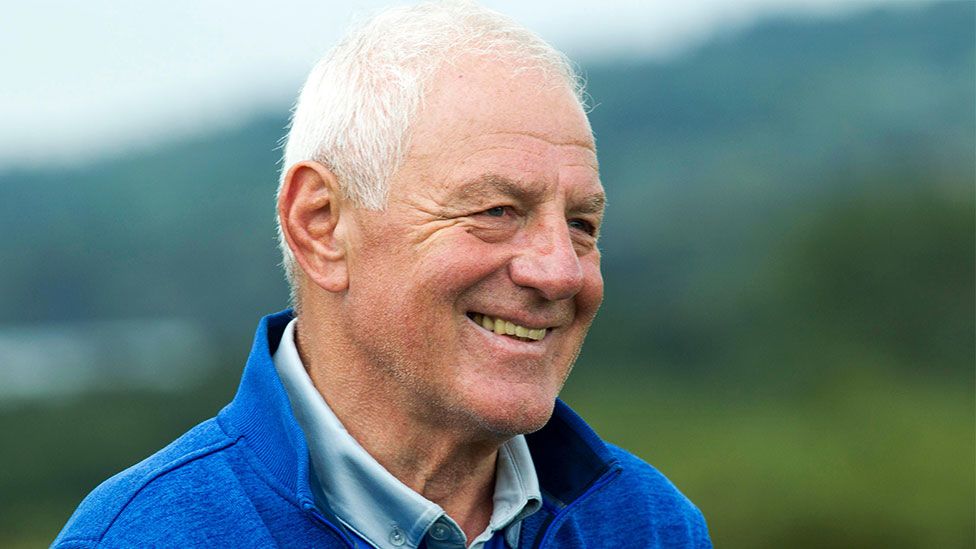
“Walter was a friend to many, a leader, an ambassador and - most of all - a legend,” said Rangers’ chairman Douglas Park. Walter Smith achieved legendary status at Rangers, with 21 trophies in two spells making him the second most successful Rangers boss ever, behind Bill Struth. He won the last seven titles of Rangers’ nine-in-a-row run in the 1990s - before returning to Ibrox in 2007, when he delivered three more titles and a Uefa Cup final appearance. Between those stints, he had four years at Everton and two with the Scotland national side.
Dai Davies
Wales goalkeeper
Born in Carmarthenshire, Dai Davies joined Swansea in 1969 at the start of a 17-year club career. He moved on to Everton, Tranmere Rovers, Bangor City and Wrexham. Davies made 52 appearances for his country over a seven-year period.
Frank Worthington
Leicester and England striker
Worthington, who won eight England caps and scored twice for the national team, began his career at Huddersfield Town. He went on to make more than 200 appearances for Leicester City and played for clubs including Bolton, Birmingham City, Southampton, Leeds United and Sunderland. “He was my boyhood hero… A beautiful footballer, a maverick and a wonderful character who was so kind to this young apprentice when he joined the club,” tweeted former Leicester striker and BBC Match of the Day presenter Gary Lineker.
Colin Bell
Manchester City midfielder
Colin Bell, the former England midfielder, made 501 appearances for Manchester City between 1966 and 1979, scoring 153 goals. He won 48 caps for his country. In 2004, Manchester City fans voted to name one of the stands at Etihad Stadium in Bell’s honour. “The passage of time does little to erase the memories of his genius,” said City chairman Khaldoon Al Mubara.
Ray Kennedy
Liverpool and Arsenal midfielder
Ray Kennedy scored 71 goals in 212 games for Arsenal, winning the First Division and FA Cup Double in 1971. At Liverpool, he scored 72 goals in 393 appearances - and also won five league titles and three European Cups. Kennedy also scored three times in 17 appearances for England.
Peter Lorimer
Leeds United’s record goalscorer
One of the most explosive and influential members of the greatest side in Leeds United’s history, Peter Lorimer scored 238 goals in more than 700 appearances, over two spells spanning more than two decades. With Leeds, he won two league titles, the FA Cup and the League Cup - under legendary manager Don Revie. Lorimer also won 21 caps for Scotland.
Terry Cooper
Leeds United defender
Terry Cooper made 351 appearances for Leeds between 1962 and 1975, during one of the most successful periods in the club’s history. He scored the only goal in the 1968 League Cup final against Arsenal at Wembley and was part of the side that won the First Division title the following season. He also won 20 England caps - including at the 1970 World Cup in Mexico. He later played for Middlesbrough, Bristol City, Bristol Rovers and Doncaster Rovers.
Jimmy Gabriel
Everton midfielder
“He always gave his all and is truly one of the club’s greats,” said Everton chairman Bill Kenwright in tribute. Jimmy Gabriel played 303 times for the Toffees, winning a league title and the FA Cup with the club in the 1960s. He started his career with hometown club Dundee and - after leaving Everton - played for Southampton, Bournemouth, Swindon Town and Brentford.
Jimmy Robson
Burnley striker
Jimmy Robson scored 100 goals in 242 league and cup games for Burnley - and was a key member of the club’s 1960 side which won the Division One title. In 1965, he was sold for £10,000 to Blackpool. He later worked on Burnley’s coaching staff.
Paul Mariner
Ipswich and England striker
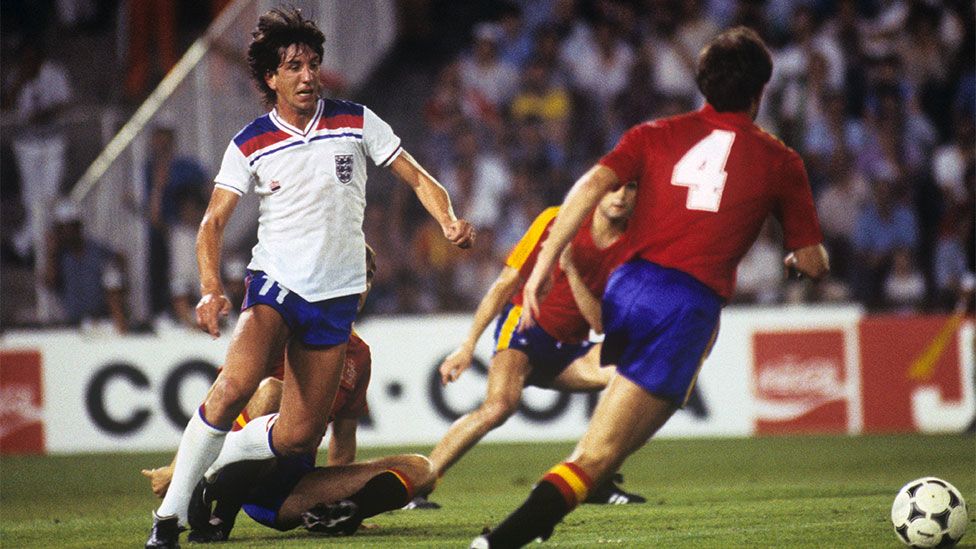
Paul Mariner moved from Plymouth Argyle to Ipswich in 1976 and was part of the side - under manager Sir Bobby Robson - which won the 1978 FA Cup and 1981 Uefa Cup. The Lancashire-born striker also played for Arsenal and Portsmouth. He made 35 appearances for England, scoring 13 goals - including in the 3-1 win over France at the 1982 World Cup.
George Curtis
Coventry City captain and joint-manager
As a centre-half, George Curtis was known as the “Ironman” by fans. He helped Coventry City win promotion from the Fourth to the First Division between 1955 and 1960 - before joining Aston Villa. Curtis later returned to Coventry, and for a season was co-manager with John Sillett - the pair guiding the Sky Blues to their 1987 FA Cup triumph against Tottenham.
Glenn Roeder
Football player and manager
Glenn Roeder was the boss at Watford, West Ham, Newcastle and Norwich - but he began his managerial career with a spell in charge at Gillingham. He was also a coach in the England set-up when Glenn Hoddle was manager. Roeder began his playing career at Leyton Orient before going on to represent Queens Park Rangers, Newcastle, Watford and Gillingham.
Gerd Muller
Bayern Munich and Germany football striker
One of the best strikers in history, Gerd Muller scored 68 goals in 62 appearances for West Germany - including the winning goal in the 1974 World Cup final against the Netherlands. He also scored 547 goals in 594 competitive games during 15 years at Bundesliga giants Bayern Munich. His prowess made him one of the most feared forwards at club and international level, with another Bayern great - Karl-Heinz Rummenigge - describing Muller in 2015 as “the best of all time, the Muhammad Ali of the penalty box”.
Jean-Pierre Adams
France footballer - in a coma for 39 years
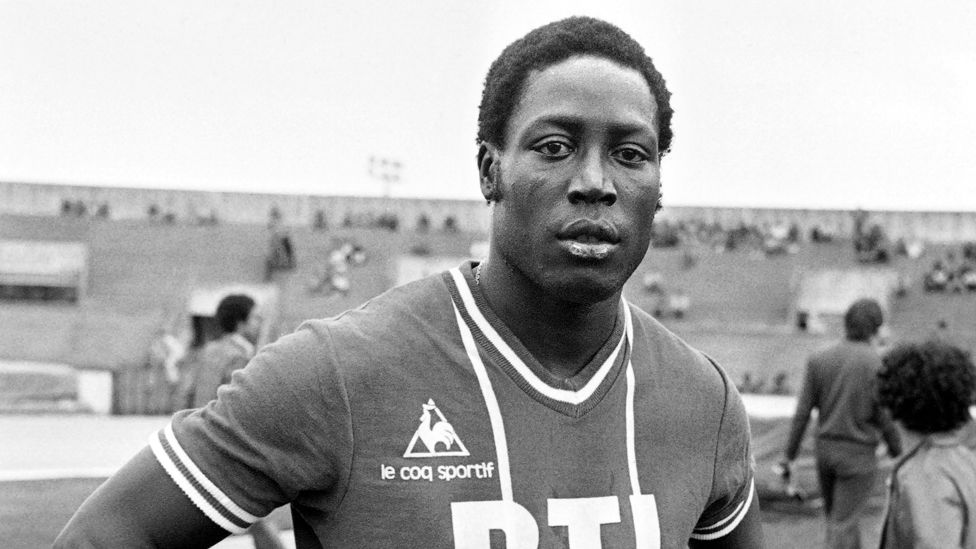
Born in Senegal, the defender won 22 caps for France between 1972-1976. He also played for Nice and Paris St-Germain. Jean-Pierre Adams was admitted to hospital for knee surgery in March 1982 but never regained consciousness, after an error with his supply of anaesthetic. He was discharged from the hospital after 15 months and for the rest of his life was cared for at home by his wife, Bernadette.
Gerald Sinstadt
Television commentator
Gerald Sinstadt’s work for the BBC and ITV made him one of football broadcasting’s most recognisable voices. From 1970 to 1982, he covered four World Cups for ITV - and then rejoined the BBC. Sinstadt was a pitchside reporter on the day of the Hillsborough disaster in 1989, and a regular on Football Focus, Match of the Day and Final Score - as well as the BBC’s Olympic coverage.
Alastair Alexander
BBC commentator
Alastair Alexander enjoyed a career spanning 40 years of Scottish football commentary with the BBC. He was well-known for his phrase “a peach of a goal”. He covered more than 1,000 football games - but also lent his rich voice to other sports, including athletics, hockey and shinty.
Murray Walker
Formula 1 commentator
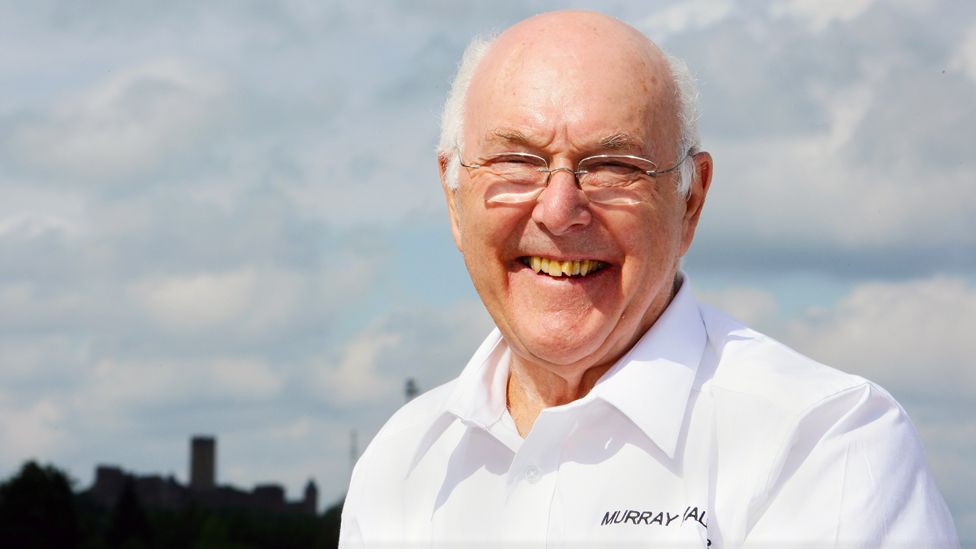
Murray Walker commentated on his first Grand Prix for the BBC at Silverstone in 1949, and became a full-time F1 commentator in 1978. He became synonymous with the sport. Walker - with his natural warmth and enthusiasm - was a respected practitioner of his craft. “He allowed himself not to be the know-it-all commentator, but the fan who, at times, got over-excited,” said F1 champion Damon Hill.
Sir Frank Williams
Formula 1 team founder
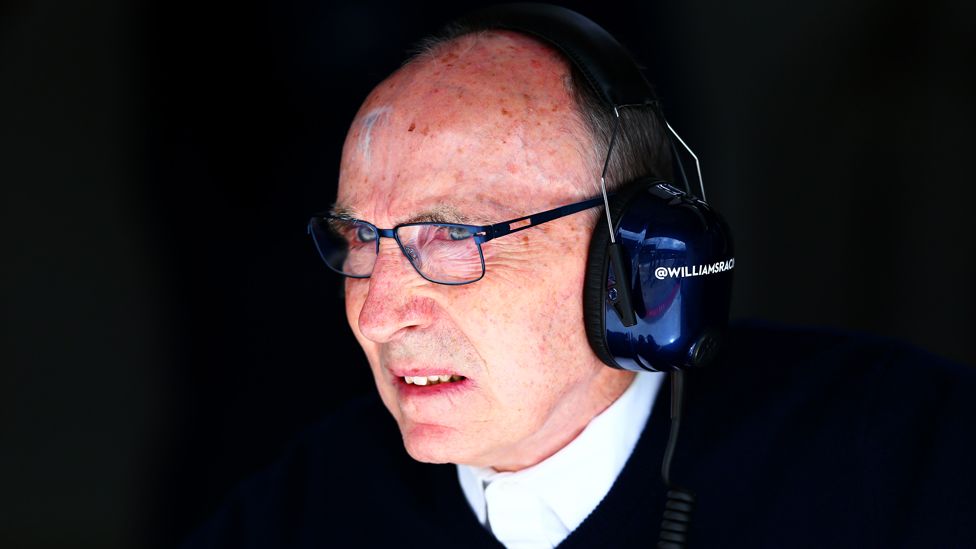
The founder of the Williams Racing Formula 1 team, Sir Frank Williams, built the team into one of the most successful in the sport. During his time with Williams, the team won nine constructors’ championships and seven drivers’ titles, and dominated much of the 1980s and 1990s. Williams was a wheelchair user after suffering a spinal cord injury in a car crash in France in 1986. “His incredible achievements and personality will be etched on our sport forever,” said F1 president Stefano Domenicali.
Carlos Reutemann
Formula 1 driver
Carlos Reutemann was known for his huge talent, film-star looks, and enigmatic character. He entered Formula 1 in 1972 and drove 146 races for the Brabham, Lotus, Ferrari and Williams teams - winning 12 Grands Prix. Upon retiring in 1982, he returned to his farm in Argentina. He eventually went into politics, serving two terms as governor of his native Santa Fe province.
Sabine Schmitz
Only woman to win the Nürburgring 24 Hours
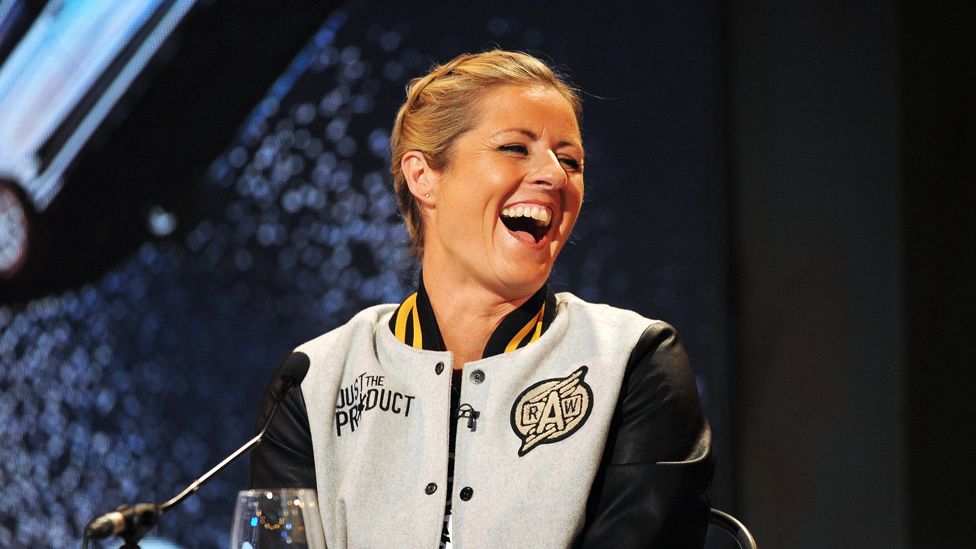
Sabine Schmitz became synonymous with the Nürburgring Nordschleife, the 14-mile circuit in Germany renowned as the toughest in the world. She won the 24-hour touring car race at the track twice in the mid-1990s. The “Queen of the Nürburgring” first appeared on the BBC’s Top Gear in 2004, breaking the 10-minute barrier around the Nordschleife in a diesel Jaguar S-Type. She became a presenter on the show in 2016.
Ted Dexter
England and Sussex cricket captain
Nicknamed “Lord Ted” from his schooldays, Dexter was an aggressive batsman and useful seam bowler who played 62 Tests for England, and was captain between 1961 and 1964. He led Sussex to victory in the first two editions of the Gillette Cup, and went on to make a Test comeback in 1968. He later became chairman of selectors for England, and was also a regular on the BBC’s coverage of England Test matches.
Ray Illingworth
Former England cricket captain, coach and administrator
Ray Illingworth’s forthright Yorkshire tones and confrontational style never left anyone in any doubt as to how he felt. Born in Pudsey in 1932, he began playing at his local club in Farsley, where he would reside for nearly all of his life. He made his Yorkshire debut in 1951 - and seven years later for England. After his retirement in 1983 - aged 51 - he became a sought-after television commentator and took on the role of England's chairman of selectors.
Eileen Ash
World’s oldest former Test cricketer
Born in London in 1911, the bowler made her England debut in 1937 under her maiden name Eileen Whelan. She played seven Tests either side of World War Two and retired in 1949. Eighty years after making her international debut, Eileen Ash rang the bell at Lord’s before England’s victory in the 2017 Women’s World Cup final.
John Dawes
Wales and Lions rugby union captain and coach
John Dawes held the unique distinction of having been captain and coach of both Wales and the British and Irish Lions. In 1971, the skilful and astute centre led Wales to the Five Nations Grand Slam, and the Lions to their only series win over New Zealand. As coach of Wales, he won four Five Nations titles, including two Grand Slams and four triple crowns, and was coach of the 1977 Lions in New Zealand.
John Pullin
England rugby union captain
John Pullin led England to historic victories over New Zealand, South Africa and Australia over an 18-month period in 1972-73. He also played seven games for the British and Irish Lions in South Africa in 1968 and New Zealand in 1971 - helping them beat the All Blacks in Dunedin. Pullin, who balanced work as a farmer with rugby union, played 298 times for Bristol.
Lee Elder
First black golfer to play in the US Masters
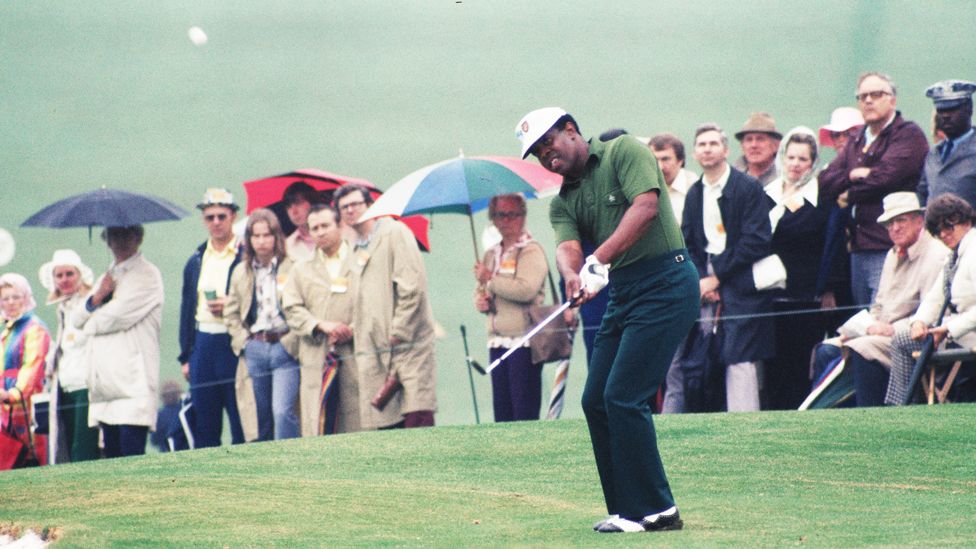
Black American golfer Lee Elder made his historic debut at the Masters in 1975 - despite having received death threats before the tournament. But once on the course, he said he received strong support. “Every green I walked up on, the applause was just tremendous,” he told the BBC in 2015. He went on to qualify for the tournament in five consecutive years from 1977 to 1981. Alongside former winners Jack Nicklaus and Gary Player, Elder was asked to be part of the 2021 opening ceremony in Augusta.
Andy Fordham
World darts champion
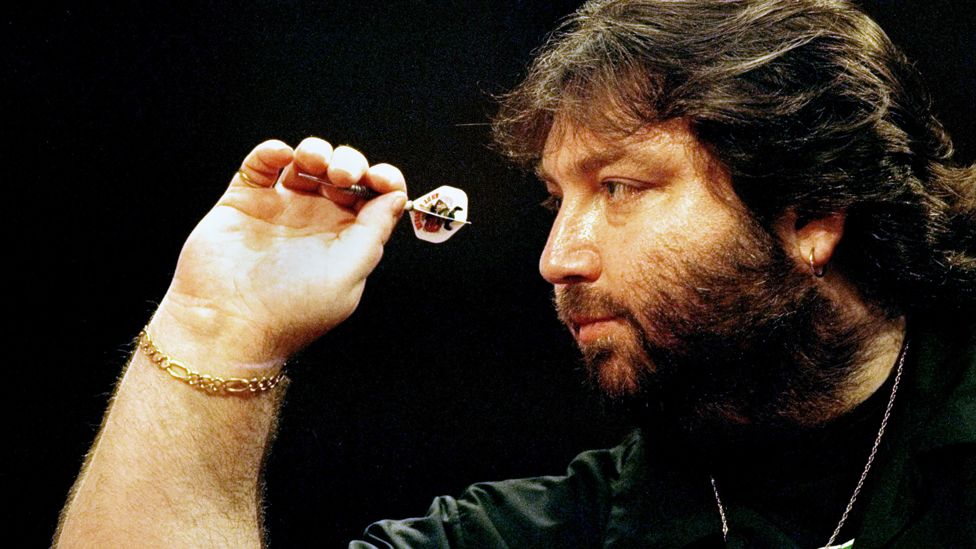
Andy Fordham, nicknamed “The Viking”, finally took the BDO title in 2004 after four semi-final defeats. The one-time Kent publican was described as “a true gentleman of the game” by the British Darts Organisation - while fellow-player Bobby George said he was “a gentle giant and loved by all”.
Doug Mountjoy
Welsh snooker champion
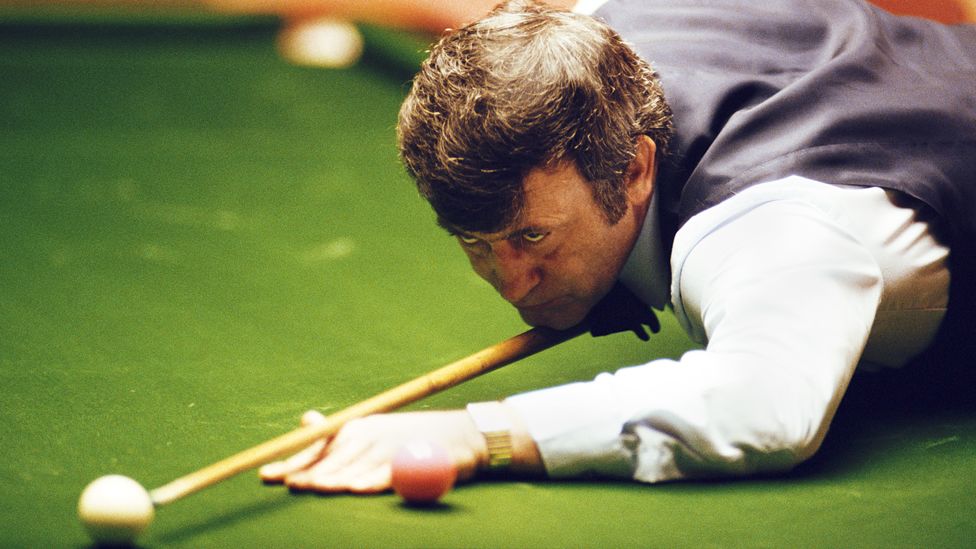
Doug Mountjoy only turned professional at the age of 34. In 1977, he won the Masters tournament - a year later he became UK champion, a feat he repeated in 1988. The Welshman made it to the World Championship final in 1981, but lost to a young Steve Davis.
Marvin Hagler
World middleweight champion
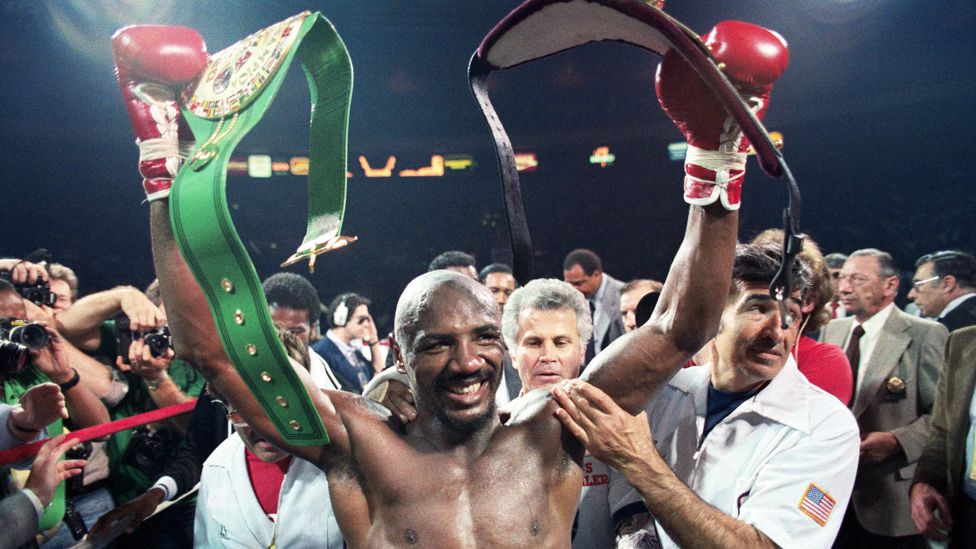
“Marvelous” Marvin Hagler dominated the middleweight division from 1979 until his controversial split-decision defeat by Sugar Ray Leonard in April 1987. The American fought 67 times during his 14-year professional career, winning 62. In September 1980, he fought Britain’s Alan Minter at Wembley Stadium to claim his first world title. Hagler’s most famous fight came in April 1985 when he fought Thomas “Hit Man” Hearns over three brutal rounds - a classic known as “The War”.
Leon Spinks
World heavyweight champion
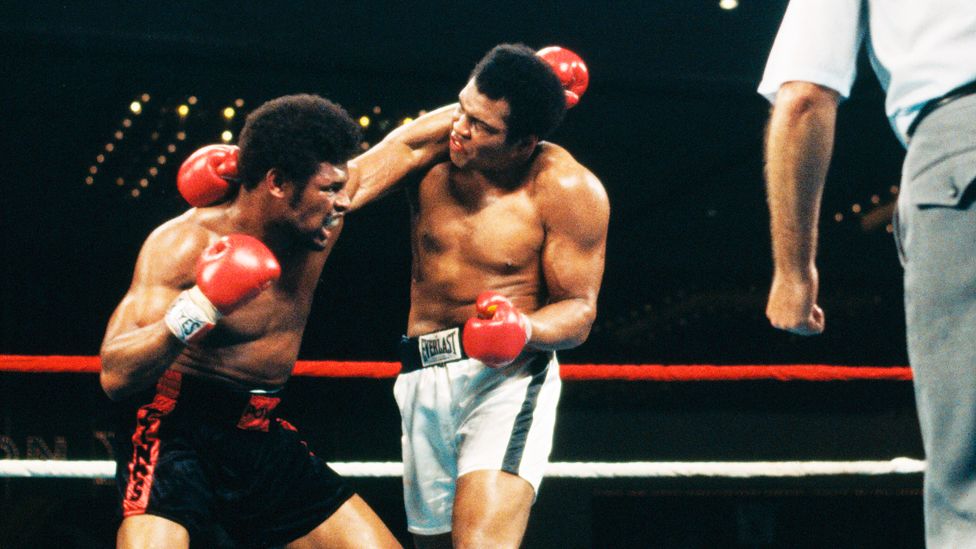
Born in St Louis, Leon Spinks won gold at the 1976 Olympics in Montreal, then rose to greater prominence a little more than 18 months later - when he took the world heavyweight title via a split decision against Muhammad Ali. It was one of the biggest upsets in the history of the sport, but his reign as world champion lasted only seven months, as a sharper and fitter Ali gained revenge in a rematch.
Lee Evans
400m world record holder and civil rights campaigner
American Lee Evans was the first man to break the 44-second mark in the 400m when he claimed gold in 43.86secs at the 1968 Mexico Olympics. He won men’s 4x400m relay gold at the same Games. On the podium, he wore a black beret in solidarity with his team-mates Tommie Smith and John Carlos, who - each wearing one black glove - had made a “Black Power salute” which resulted in them being sent home. Evans was a founding member of the Olympic Project for Human Rights, which highlighted racial injustice in America before the 1968 Games.
Jacques Rogge
International Olympic Committee President
Rogge served as the eighth IOC president between 2001 and 2013 - after which he became honorary president. An accomplished athlete, Rogge represented Belgium at rugby. He was also a world champion sailor, and 16-time Belgian champion, who competed at three Olympic Games. He was an orthopaedic surgeon with a degree in sports medicine.
International politics
Our look back includes FW de Klerk, winner of the Nobel Peace Prize for his role in the dismantling of apartheid in South Africa; Colin Powell, the first African-American US secretary of state; and Kenneth Kaunda, noted opponent of colonialism who became Zambia’s first president.
FW de Klerk
South Africa’s last white president
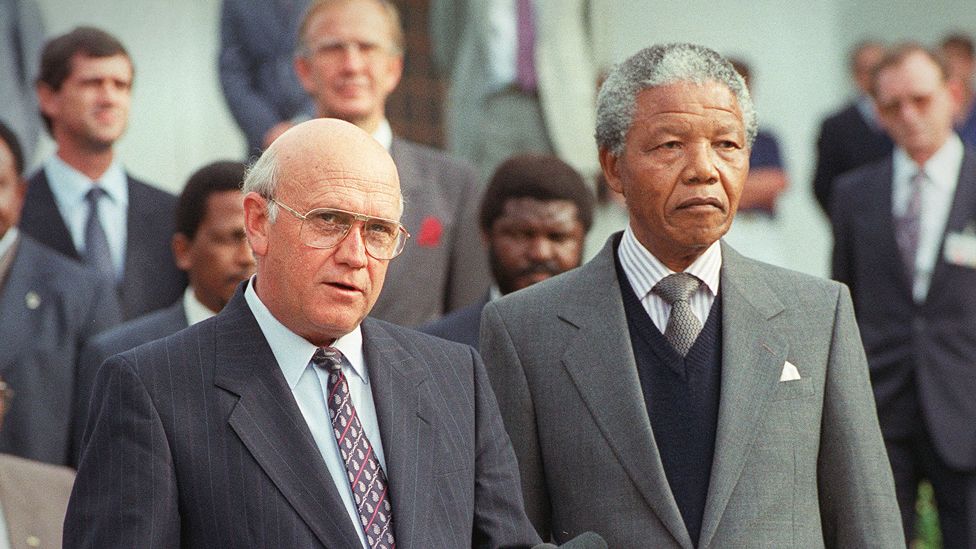
For some, he was a great statesman - the Nobel Peace Prize winner who had helped end the system of legalised racism which he’d inherited. For others, he benefited enormously from that same system of apartheid, which had segregated South Africa’s people by skin colour, and deserved to be prosecuted for its many crimes. Although essentially a conservative by nature, FW de Klerk came to believe that white-minority rule was not sustainable. It was his ending of the ban on the African National Congress - and the freeing of Nelson Mandela in 1990 - that triggered the move to majority rule.
Goodwill Zwelithini
South Africa’s straight-talking Zulu king
King Goodwill Zwelithini reigned over the Zulu nation in South Africa for half a century, and his position as a traditional ruler was recognised in the country’s post-apartheid constitution - which meant he got state support. The father of 28 children from six wives, he may not have had formal political power - with his role in broader society largely ceremonial - but he was revered as a traditional leader, even by those outside his culture.
Walter Mondale
Former US vice-president
He was Jimmy Carter’s Democratic running mate for his winning 1976 presidential bid - and again for his defeat four years later. In 1984, Walter Mondale stood for president but lost heavily to Ronald Reagan - securing only his home state of Minnesota and Washington DC. That gave him just 13 electoral votes, compared with President Reagan’s record-high tally of 525. Paying tribute, Jimmy Carter said Walter Mondale had been “an invaluable partner and an able servant of the people of Minnesota, the United States and the world”.
Bob Dole
Veteran Republican and US presidential hopeful
Bob Dole was a long-time senator for Kansas who ran as the Republican party’s presidential nominee in 1996, losing to the Democrat Bill Clinton. He was also a World War Two veteran who nearly perished on the battlefield. US President Joe Biden led tributes from both sides of America’s political divide, describing him as a “dear friend” and “an American statesman like few in our history”.
Colin Powell
The first African-American US secretary of state
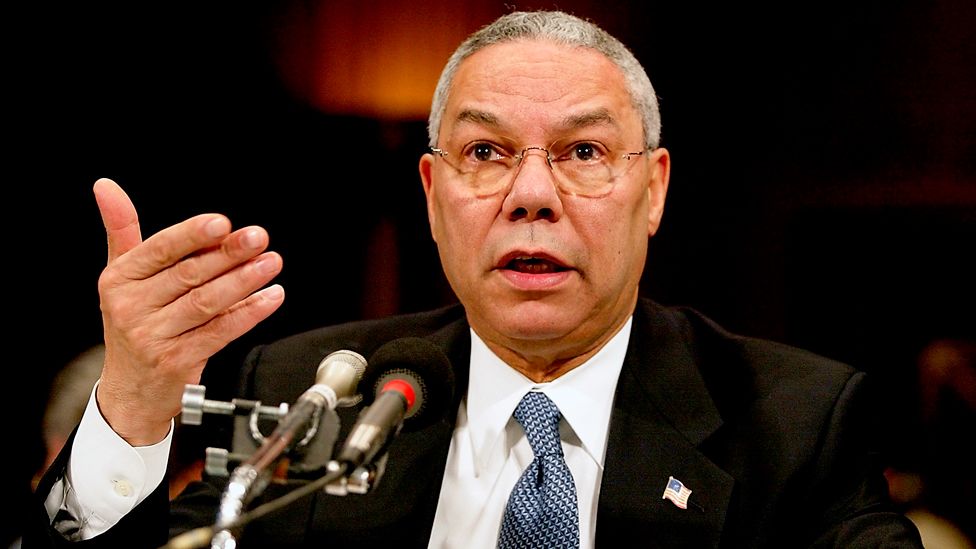
The child of Jamaican immigrants, Colin Powell became the first black man to rise to the highest positions in US military and diplomacy. A highly decorated army officer, he saw service in Vietnam, an experience which later helped define his own military and political strategies. Despite his own misgivings, he helped swing international opinion behind the 2003 invasion of Iraq. But he later broke from the Republican Party to endorse Barack Obama’s presidential bid in 2008, as well as Hillary Clinton in 2016 and Joe Biden in 2020.
George Shultz
US secretary of state who helped end Cold War
George Shultz significantly shaped US foreign policy during Ronald Reagan’s presidency - having served under two previous Republican presidents, Dwight Eisenhower and Richard Nixon. In the second half of the 1980s, Shultz courted then-Soviet leader Mikhail Gorbachev to try to ease Cold War tensions - resulting in the signing of a landmark arms control agreement. A few years later, the Soviet Union collapsed.
Donald Rumsfeld
Ex-US defence secretary
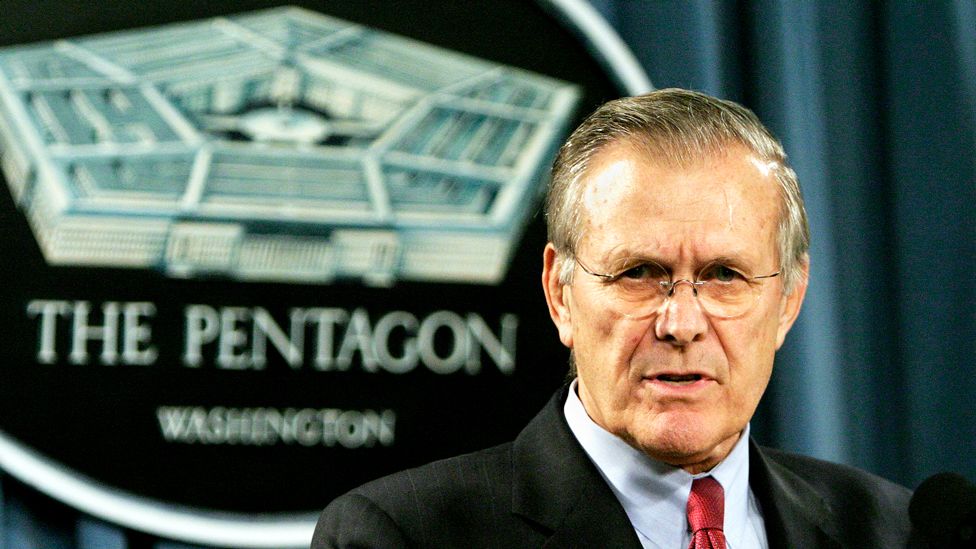
Best known for overseeing the US response to the 9/11 terror attacks - starting with attacks on al-Qaeda and the Taliban in Afghanistan - his political career eventually came undone by the spiralling conflict in Iraq. Donald Rumsfeld served as secretary of defence for presidents Gerald Ford and George W Bush, and forged a reputation as the ultimate Washington insider and political survivor. But to his critics he was hawkish and ruthless - a Machiavellian figure and architect of war.
Jovenel Moïse
President of Haiti
In power since February 2017, his time in office was rocky - in a country whose recent history has been plagued by coups, political instability and widespread gang violence. Jovenel Moïse faced accusations of corruption and there were widespread demonstrations in the months before his death. He was killed - and his wife injured - in an attack on their home in the capital, Port-au-Prince.
Carlos Menem
Former Argentine president
A politician known for his dashing good looks and extravagant lifestyle, Carlos Menem was a far cry from the military dictators who had ruled Argentina before its return to democracy in 1983. As Argentina’s leader between 1989 and 1999, Menem inherited a country traumatised by years of brutal repression, the murder of thousands of dissidents, defeat in the Falklands and the destruction of a robust economy. He opened up Argentina to foreign investment and re-established relations with the UK - but his administration was battered by financial scandal, corruption and spiralling unemployment.
Abolhassan Banisadr
Iran’s first president after 1979 revolution
Elected in 1980, Abolhassan Banisadr faced huge difficulties from the start - including the US Embassy hostage crisis and the Iran-Iraq war. But he was impeached 16 months after taking office for challenging the growing power of fundamentalist clerics. A month later, he was given political asylum in France.
Kenneth Kaunda
Zambia’s first president
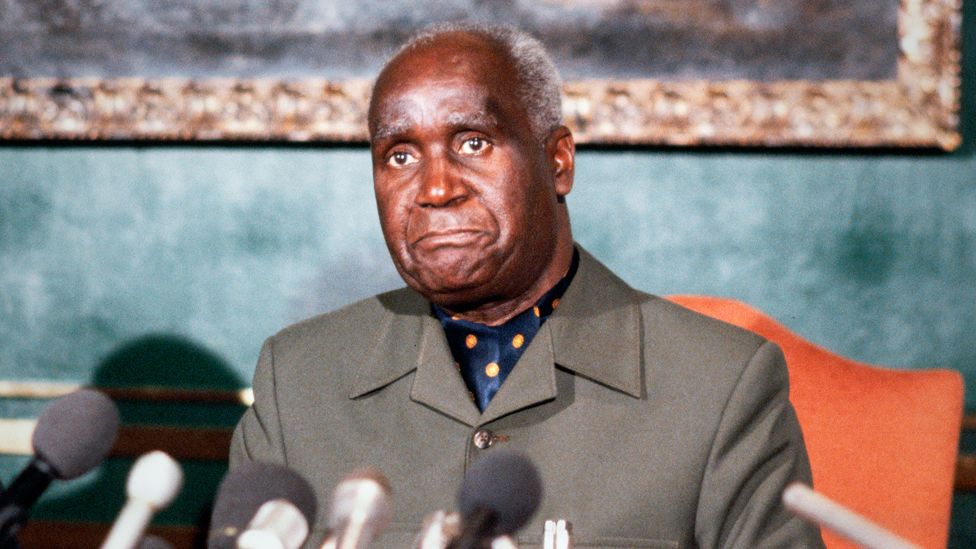
One of the last of the generation of African leaders who fought colonialism, Kenneth Kaunda was a key figure in the movement for Northern Rhodesia to become independent from the UK. A man of great personal charm - and popularly known as KK - he became president following independence in 1964. As head of the left-leaning United National Independence, Kaunda then led the country through decades of one-party rule. He stepped down after losing multi-party elections in 1991.
Abdelaziz Bouteflika
Algeria’s longest-serving president
A dominant figure in Algerian politics for more than six decades, Abdelaziz Bouteflika served as the country’s longest-serving president from 1999 until he was forced to resign in 2019. In 1963, he became the world’s youngest minister of foreign affairs, a record that still stands. He served as the nation’s chief diplomat for 16 years - playing a pivotal role in earning Algeria its nickname “the Mecca of revolutionaries”, when it housed and welcomed freedom fighters and separatists from around the world.
John Magufuli
President of Tanzania
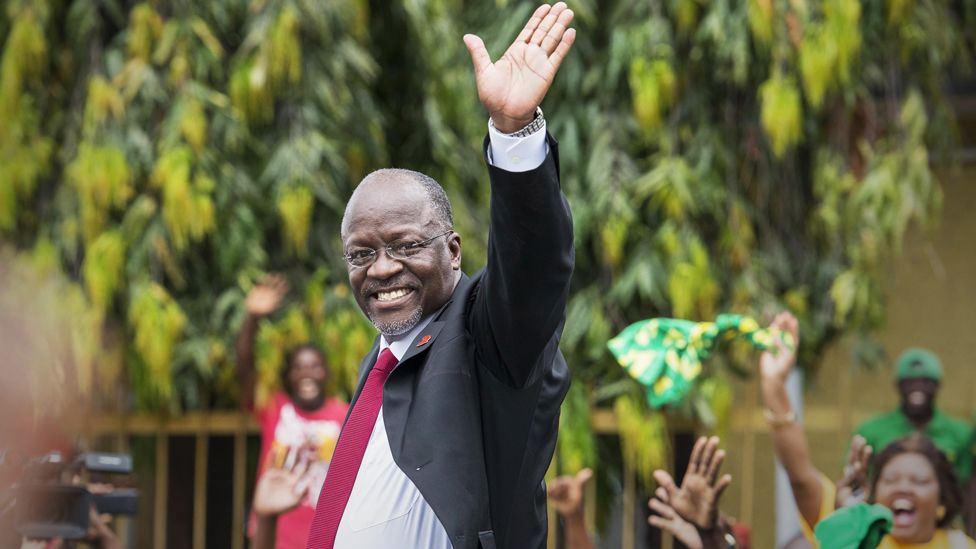
The son of a peasant farmer, John Magufuli became Tanzania’s president in 2015. He was elected for a second term in 2020, amid opposition accusations of fraud and intimidation. Previously, while minister for works, he’d acquired the nickname “the bulldozer” for driving a programme to build roads. He was also hailed for his anti-corruption stance. But, as one of Africa’s most prominent coronavirus sceptics, reflections on his time in power will be dominated by his idiosyncratic handling of Covid-19. He called for prayers and herbal-infused steam therapy to counter the virus.
Idriss Déby
Chad’s president for 30 years
Known as “The Great Survivor”, his luck finally ran out. Idriss Déby had just been re-elected for a sixth term and spent more than three decades in power as one of Africa’s longest-serving leaders. He was a long-time ally of France and other Western powers in the battle against jihadist groups. He died of injuries sustained on the front line in a battle against rebels belonging to a group calling itself Fact (the Front for Change and Concord in Chad).
Credits
Photographs courtesy Getty Images, PA Images, Reuters, Alamy, Shutterstock, BBC, Nic Knight (Jill Murphy)
Production by Paul Kerley, James Percy and Geoff Byrne
Latest Stories
-
Ripoti App launched to empower journalists, others to tackle digital rights violations in Africa
14 mins -
Ground-breaking health investment charter to tackle worker shortages in Africa
19 mins -
From Mortuary to Matrimony: Feature on how couple’s love journey brewed at the morgue airs on Joy Prime
34 mins -
Ghana’s LPG prices rank among the highest globally – LPG Marketers Association
41 mins -
Filth Exhibition: Residents near Korle Gonno bear the brunt of nationwide filth
54 mins -
We’ve not selected NPP members as returning officers – EC replies Mahama
1 hour -
We’ll not honour any invitation – ECG tells Ashanti Regional Minister
2 hours -
Dumsor vigil to hit Accra
2 hours -
Supreme Court rule for dual citizens to hold other key positions laudable – Kwaku Asare
2 hours -
‘No one is above the law’ – CAF president on match-fixing allegations against Samuel Eto’o
2 hours -
Manchester City thrash Brighton to go second in table
2 hours -
NDC’s running-mate speech proves readiness to lead – Asah-Asante
3 hours -
Further win for nibima as another KNUST study supports medicinal prowess
3 hours -
World Bank’s food price index eases; maize, wheat prices hit 3-year low
4 hours -
2020 polls all about pulling Ghana back from precipice of destruction, corruption – Naana Jane
4 hours

